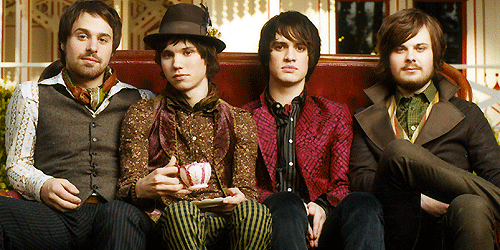
Panic! at the Disco are one of the most infamous emo bands of all time, and reigned as part of the “Holy Trinity” alongside Fall Out Boy and My Chemical Romance. Their ascension to stardom came practically overnight with their 2005 debut A Fever You Can’t Sweat Out, and was largely due to the machinations of Decaydance kingpin Pete Wentz. However, while the Panic! name went on to survive for nearly two decades, most of their original members did not. Shortly after the release of their sophomore Pretty. Odd., Panic! at the Disco split in 2009. Of course, some clarification is necessary, as Panic! has–like a brain-eating amoeba– divided many times. In fact, about one year ago, Brendon Urie (the only member of the group) somehow managed to “split” the band one final time, ending Panic! at the Disco forever.
However, I am referring to the melodramatic peak of their “tumultuous” history: the series of events surrounding “songwriter” Ryan Ross and bassist Jon Walker forming The Young Veins, while vocalist Brendon Urie and drummer Spencer Smith continued Panic! at the Disco. Subsequently, following a few flimsy stabs at a post-Panic! career, Ryan Ross–Panic!’s original “mastermind”– essentially dropped off the face of the planet.
Much has been speculated about what caused Panic! at the Disco’s 2009 split already. Though Brendon Urie has asserted that it was nothing personal, and “the only reason [Ross and Walker] left was because they wanted to do something different musically,” bandom has speculated differently. Were Ryan Ross and Brendon Urie secret lovers? Did their torrid affair go south during Panic!’s stint in Cape Town, and take the entire band with it?
Perhaps. But jokes aside, it’s obvious that there was much more than just a creative breakdown happening within Panic! at the Disco. This was a theory later confirmed by Spencer Smith, who told James Montgomery of MTV, “the stuff that was kind of happening with the relationships off the stage was starting to kind of affect” the band. And while much of the split was undoubtedly triggered by the creative and interpersonal breakdown between Ryan Ross and Brendon Urie, I argue there were other major factors at play–ones that often go unnoticed.
As a prerequisite to this piece, I suggest you read “The True* Origins of Panic! At the Disco.” When I wrote that, I never thought there would be a part two–so I didn’t exactly set myself up for a sequel. Nevertheless, this second volume–totaling 50 pages– will be split into two parts. In Part One, I’ll set the scene after Panic!’s origins, introduce some of our main characters (including bandom’s most infamous unreliable narrator), and then provide an in-depth history of everything that occurred before, during, and after the 2009 split. In Part Two, we’ll ask the million-dollar question: what sent Panic! off the rails? Was it really just “musical differences”? Here, I’ll make the argument that looking beyond Pretty. Odd.’s rosy sound and analyzing it through a literary lens paints a clear picture of core conflicts that factored into the split.
A BRIEF RECAP: THE STATE OF THE SCENE

So anyway, after Pete Wentz signed Panic! at the Disco to Decaydance Records—or, in his own words, “bought Ryan Ross”—things took a nanosecond or two to truly explode. While Ross’ former comrades in The Secret Order were rallying around Panic! in droves online, this took a few minutes to translate offscreen. However, things rapidly snowballed to an insane velocity, and the band smashed through the ceiling via “I Write Sins, Not Tragedies,” with Wentz later referring to the band as a “freak of nature.” Perhaps James Montgomery’s very first words about Panic! explained it best; he said that they “went from being a bunch of random kids with truly amazing haircuts to chart-climbing heirs-apparent to the Killers’ throne all within the span of roughly five months. Not surprisingly, this is generally not the way things happen in the record industry.”
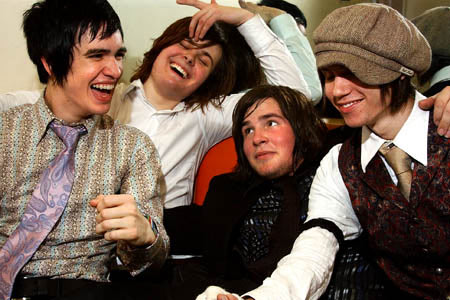
And because Panic! had never “paid their dues,” parts of the establishment were not happy. Pitchfork called A Fever You Can’t Sweat Out a “steaming pile of garbage;” PopMatters said it was “fester[ing] corpse” that had been “defecate[d] upon” by “a group of bears;” and PunkNews added it was “annoying” and had been “raped with AutoTune.” Rolling Stone, meanwhile, rolled their eyes at how Panic! seemed to mimic “FOB’s songwriting formula: scathing lyrics about slutty ex-girlfriends and the lameness of the music industry.” In short, Panic!’s meteoric rise was often viewed as a “clear cut” case of “coattail-riding,” one that sent them into power wholly unworked for.
Even those on the bands side agreed they never worked for fame; Dream Rockwell (who choreographed the circus dancers in Panic!’s Fever-era tours) stated that, “Everything happens effortlessly for them. It’s effortless. It really is. They’re not working. They’re not. They’re just desiring, and saying yes when it arrives.” And even now, Ross seems in denial of how lucky he was, stating on a 2019 podcast that the band–who had never played a live show, and did not even know how to perform their own songs–were “talking” with multiple labels when they struck up a deal with Wentz. At the time, Ross and Urie bragged that getting signed was “too easy” and “[Wentz] let us know he wanted to sign us after only three acoustic songs. Which didn’t seem like the smartest way to go about it.” As Brendon Urie claimed over a decade later, he felt they were predestined to be “that one in a million.”
And–to give you a refresher–when Panic! were taking their first steps, Ryan Ross was nothing more than a “dirty little kid” that adored bands like Blink-182, Fall Out Boy, and My Chemical Romance. Though he later claimed he didn’t “understand” teenage fangirls, Ryan’s digital footprint demonstrates just how much his teenage self was exactly like each and every one of them. He didn’t fit in at school; he obsessively idolized Pete Wentz; he ranted about getting busted for speeding in Brent’s “stupid rich neighborhood;” and he commiserated with other kids online about his father’s alcoholism and insults and how his mother “suck[ed].”
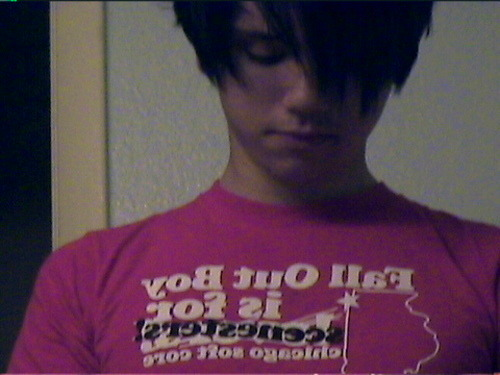
And it was, perhaps, the difficulties a pre-Panic! Ross had at home that drove him to live part of his life online and retreat into the confines of Fall Out Boy’s Secret Order, a decision that ultimately led to him getting signed. Ross told Rolling Stone his father was “abus[ive],” and Rocksound reported that he was “an alcoholic who Ross hated at times.” Things with Ryan’s mother were not better; she was essentially absent from his life. He later stated that his childhood was “fucking hellish.”
And since he didn’t belong at home or at school, a teenage Ryan preferred being alone and listening to music. Music “kept him company”– and he loved it so much he was willing to risk everything for it, without a single thought of “plan B.” And due to this attitude, Ross skipped his college exams and subsequently failed his classes. As a result, his father threw him out of the house, and he began living in Panic!’s practice space, which lacked both a shower and air conditioning. Ross said, “My dad was definitely not supportive of me dropping out of college. I had a scholarship…and then to throw that away and try to make it in the music business…He couldn’t really understand…He didn’t want me to take that chance.”
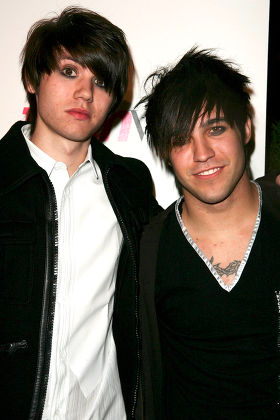
And so, it was sometime right around then that Wentz–seemingly on a whim–descended from the heavens upon a silver cloud, pulled Ryan Ross out of his broken home, and launched him into orbit, AKA gave Panic! a record deal. Or, to invoke Fall Out Boy’s “27,” Ross was “a bottled star, [and] the planets align[ed].” It was like magic, and holding this power certainly seemed to be something Wentz was cocky about. When Mark Hoppus advised young bands to work hard and not expect “some magic hand” to “make it happen for them,” Wentz just laughed and said “I mean, we have the magic hand.”
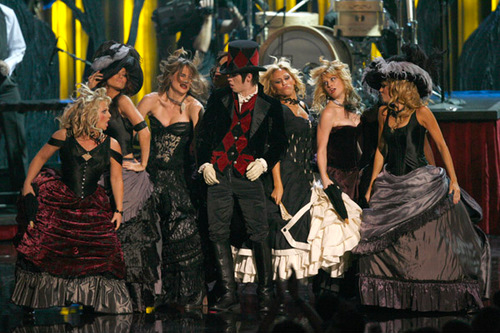
And it was true; Panic!’s second-ever single shot to #7 on the Billboard Top 100, their first-ever record would ultimately go quadruple platinum, and their second-ever video won a VMA. This rise was staggering, and Dream Rockwell ominously wondered how the boys would “handle the pressure of this massive amount of fame that has literally come in one year. It is one year.” In short, Panic! had become stars overnight. Interestingly, when stars stop burning hot enough, changes in pressure can cause them to become unstable and implode. This is known as supernovae, a phenomena “essential to life.” But supernovae are not only formed by stars flaming out. When a specific type of star begins to orbit another–especially a bigger, older star– it absorbs too much, is pushed past its limit, and violently collapses.
“LONG LIVE THE KING”
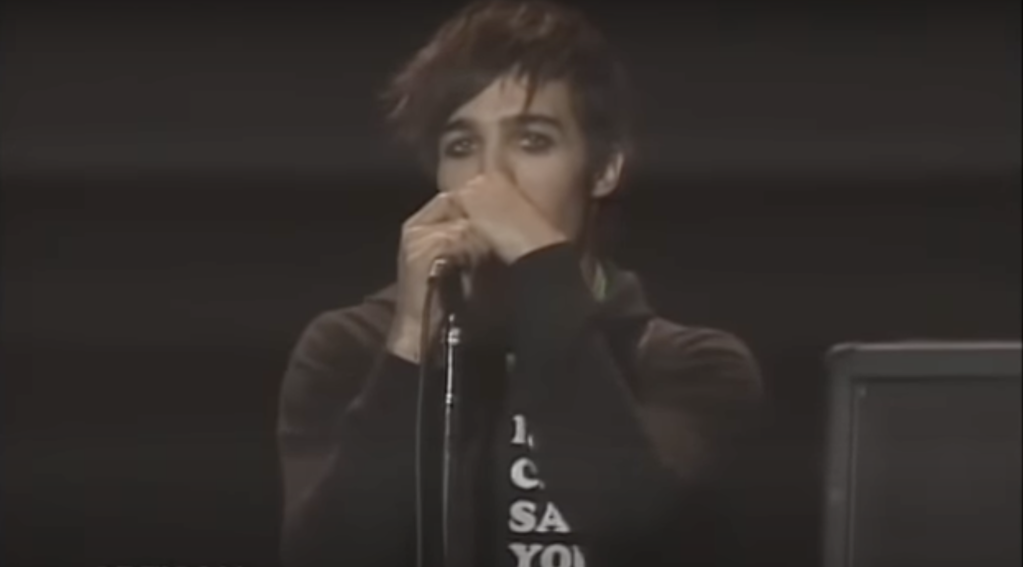
And of course, “the world’s biggest rock star” is Pete Wentz. Prior to his ascension, Wentz was just like Ross–a self-professed “dirty, shitty boy” that seemed destined for something higher. But even pre-FOB, he was a force to be reckoned with. Bandmate Joe Trohman described young Wentz as “Chicago hardcore royalty,” though he clarified this title was “heavily ridiculous.” By day, a young Wentz was a lawyer’s son and soccer jock who pursued politics. But by night, he was the frontman of hardcore outfit Arma Angelus and the terror of Glenview, Illinois–piss soaked, precious, and pestilent, with a gaggle of besotted teens trailing after him.
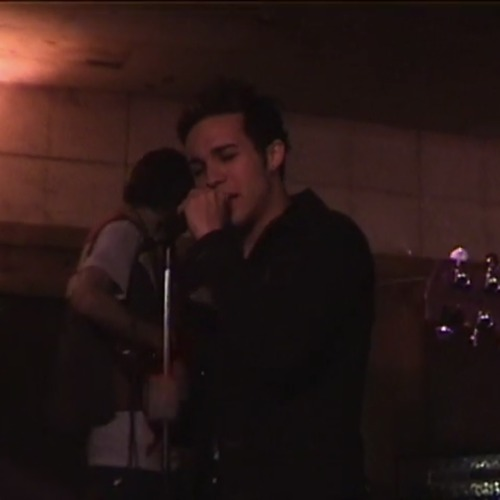
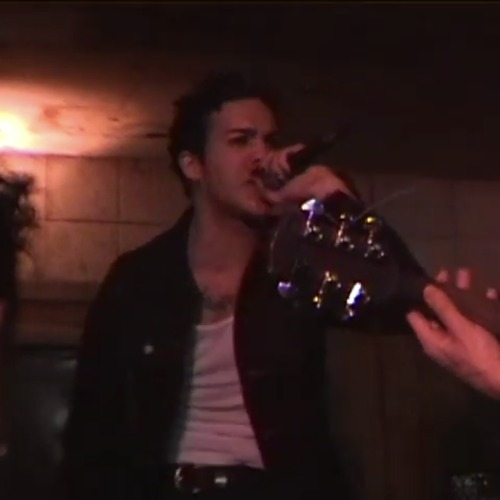
However, Wentz’s gravitational field only hit critical mass in 2005, following the release of Fall Out Boy’s “Sugar, We’re Goin’ Down”—which has been called one of the “most influential pop-punk songs of all time.” Their subsequent sophomore album, From Under the Cork Tree, debuted at #9 on the Billboard Top 100, and has since gone double platinum; the band would only go on to achieve bigger and bigger heights. Journalist Stevie Chick once compared Wentz to Hotblack Desiato, a Hitchhiker’s Guide to the Galaxy character who is the frontman of the “biggest, loudest, richest rock band in the history of history itself.”
Though Chick’s comparison pertained to Wentz’s “comatose” appearance (as Desiato feigned his own death), there’s another parallel. Desiato is once reminded by a “misty-eyed” old friend: “You didn’t want to be a star, because you despised the star system…And what do you do now? You buy star systems!”. And this is exactly what Wentz did; through his label, Decaydance Records, Wentz formed a conglomerate so powerful it began to dominate 2000s counterculture.
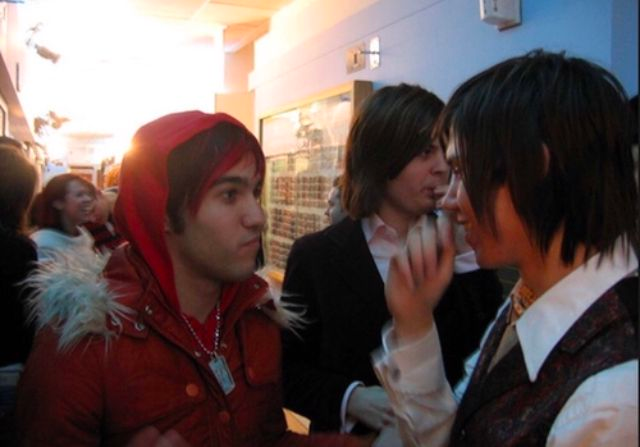
Perhaps the biggest star system he secured was Panic!; he once said that Ryan Ross was “the most ridiculous thing” he ever purchased. And Ross was certainly worth it; Wentz told Alt Press that Panic! transformed Decaydance from “a boutique label into what everybody was talking about.” And with Panic! and FOB’s synchronized rise, the Wentzian hegemony became so overwhelming that it changed the meaning of the word “emo” forever. Its prior connotations of dweeby glasses and stripes were permanently eclipsed; in a post-Wentz world, this now means hackneyed references to cosmetics and suicide. Nothing else.
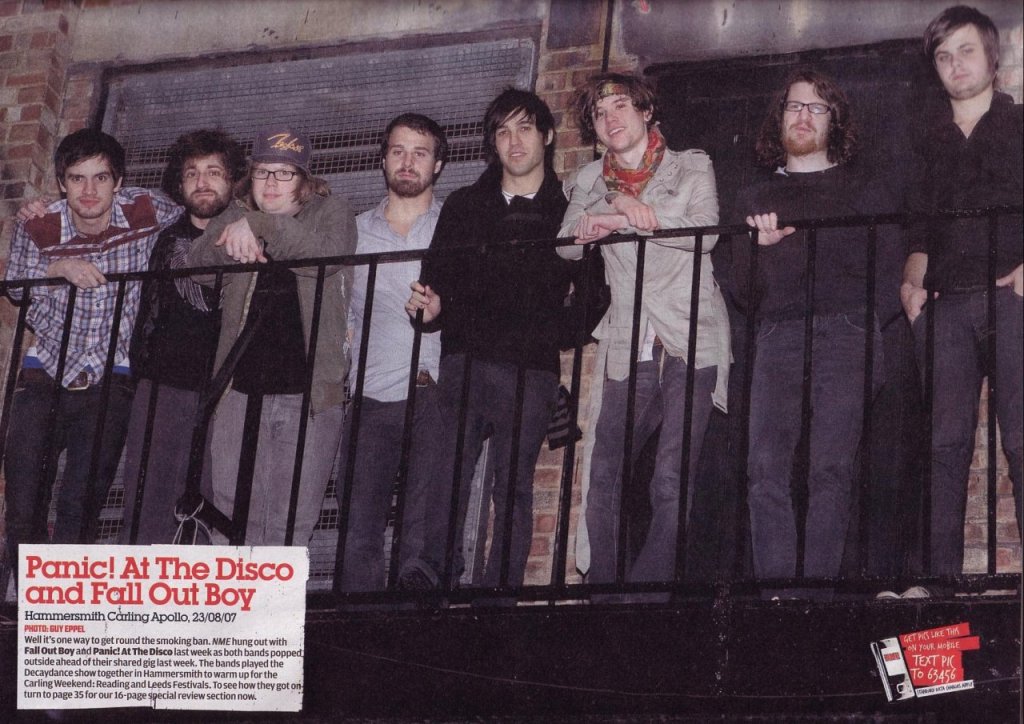
And as FOB and Decaydance’s power grew, so did Wentz’s command. During the short years between Panic!’s initial conception and their split, Wentz progressed from the king of suburban miscreants to “a spokesperson for a generation, half of a paparazzi-hounded power couple [and] a multimillionaire label boss.” And he didn’t just stop at music–he’s also often been portrayed as a ruthless businessman with his fingers “in a clothing line, an MTV show, a chain of bars and his own record label.” And, indeed, many have a perception of Wentz as a “cold-hearted mogul” and emo’s all-powerful mafioso mercenary– one high up on a throne surrounded by cronies and drinking blood out of a goblet.

And–as “heavily ridiculous” as all of this is–maybe there is some truth to it. Like yes, he did own a bar full of gold plated AK-47s. And yes, maybe incredibly beautiful and incredibly famous women would get in screaming matches over him. And yes, maybe one of them gave him a public lap dance. Or several. It’s outrageous. It’s like he’s a minor character in a Tarantino movie–wine-drunk, vainglorious, and destined to die a bloody death while having sex with his favorite million-dollar prostitute.
However, Patrick Stump, FOB’s golden boy and Wentz’s “best friend in the world,” is largely unimpressed with this vision. He stated that Pete Wentz is “really just some guy.” Stump says the portrayal of Wentz as a demon–or even as a deity–is inaccurate. Instead, he says the real Wentz is “A really good guy, he’s a really quiet guy, he’s a really polite guy. He’s a really mellow, honest, loyal guy…Whatever, I don’t want to gush about him.” Similarly, Wentz once told an interviewer, “We’re more of a gang than a label, but [I’m] not the godfather… [I’m] everybody’s big brother.”
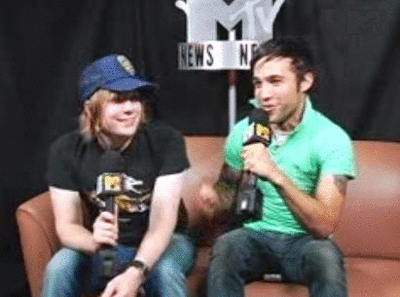
And while all the mythos surrounding Wentz may be just a steamy fantasy, his status as the “impresario of emo” is–for better or for worse– his legacy. In the end, even if he really is merely just a guy, he is still “the hero of the MTV generation.” And with this patrimony came the ability to brainwash the masses to do his bidding. As said in the Theatre of Imagination unofficial Panic! documentary: “If Pete gets up onstage and says ‘Buy Panic! at the Disco’s CD’… Millions of kids will follow suit.” Willingly or not, Pete Wentz is still pretty much the Machiavellian overlord of emo teens everywhere. You know, “Like the fucking pied piper, only [he’s] leading [kids] down a vermin hole.” Or, as Wentz once jeered through Bebe Rexha of the Black Cards, “I call them my puppets, ‘cause I pull the strings.”
“PANIC!…MEET THE PRESS”
But who can say how effective Wentz’s reign would’ve been without the dealings of his co-conspirator, “BFF,” and shadow-puppetmaster of emo band lore: James Montgomery of MTV News. It is unclear where Fall Out Boy would be, either; Guardian reporter Stevie Chick stated that FOB’s alliance with MTV aided their rise to power, as MTV “helped them find an audience that is largely teenaged and largely female.” This also happened to Panic! at the Disco, which Wentz referred to as “Fall Out Boy version 2.0;” like their predecessors, the group “quickly became MTV darlings…back when MTV actually still drew an audience to watch music videos.” And it was Montgomery who served as the primary ambassador for all of this, in addition to being “the guy” when it came to basically any news regarding “the Fueled by Ramen/ Decaydance/ Pete Wentz universe that dominated the rock scene.”
A sizable percentage of emo band intel–or at least, the kind terminally online die-hards considered “crucial”–was delivered through him. He was often the sole mouthpiece of everything FOB and P!ATD; And, as one longtime Panic! fan illustrates, whatever bands told Montgomery would often be recycled by “a bunch” of other publications, including NME, Kerrang, and Rolling Stone. This “game of telephone” included not just facts, but also Montgomery’s uh, “explanations.” The control he holds over bandom primers is impressive. One could go so far as to call him a propagandist–or, to go even farther–Pete Wentz’s personal spin doctor.
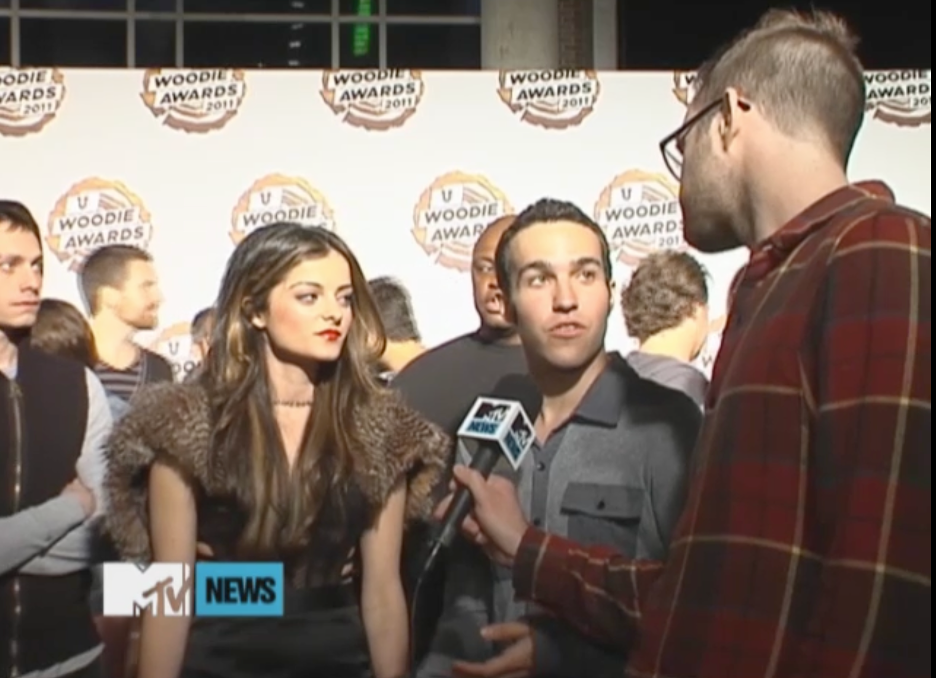
But you don’t have to take my word for it. Take Pete Wentz’s–who, despite not being “allowed” to discuss the matter, may have revealed a bit too much about his and Montgomery’s syndicate in a 2010 interview with Alternative Press. In this portion of the interview, Wentz began by explaining some problems that had arisen at this label. These issues stemmed from Panic!, who caused everything to go “really wrong, and really right” at Decaydance. Specifically, Wentz’s babies had stopped being allies, and started competing. And when it came to battles over things like airtime for music videos, or the Woodie Awards (which, curiously enough, both fall under MTV’s jurisdiction), Wentz could always “put in that extra phone call” and fix the fight. This put him in the difficult position of choosing ”which girlfriend [he] liked the most.” And it’s pretty easy to guess that Wentz might have rigged the scene with James Montgomery, who seemed to be in an influential position.
And with his power came not responsibility, but quite the polarizing reputation. (Though, he reportedly swore to one of his groupies that he was “a good guy,” in spite of his rumored villainy.) As I have stated previously, “[Montgomery] was not popular within the Panic! fanbase.” Fractured as Panic! fans became, each faction had one opinion in common: Montgomery was “so biased it’s disgusting,” and they could not stand him. Or, as one Young Veins fan put it: “I really hate James Montgomery.” Another replied, “All his articles piss me off.” The opposing Urie-Smith camp felt similarly; posters said he was a “douchebag,” “tool,” and “whore.” This frustration was shared by Paramore fans, who found him “irritating” and a “hipster”; they seethed “SHUT UP!”, “I’ve never liked Mr. Montgomery anyway,” and “Fuck you, James.” This vitriol may be due to how–in the graphic words of one commenter–“J-Mont only sucks Pete’s cock. No one else’s.”
Thus, Montgomery was adored by FOB fans–so much so, in fact, that he achieved heartthrob status. Girls in fan community icecreamhdaches doted on James, AKA their beloved “hero,” “bbgirl,” and just straight up “baby.” They referred to him almost exclusively by an affectionate nickname. They batted little digital heart-eyes at him. They thought he was “cute.” They giggled over his um, Casanova-themed glamour shots. They included him in their “NC-17” fantasies. They even exchanged gossip on whether or not he was sexually available. “James Montgomery, how I love you so,” sighed one poster. “I am in love with [him],” professed one particularly dedicated admirer. “Oh, god, J-Mont,” gushed another, “I love you.” But while the masses crowned him “King of the Fangirls,” one had questions: “Does [he] actually get paid, or is [he] just a stalker?”.
But regardless of Montgomery’s alleged dreaminess–or whether or not Pete Wentz ultimately bid him to “r[u]n a smear campaign” against half of Panic!–during Fever’s album cycle, he was one of the few critics who “t[ook Panic!] seriously.” At least a little bit. Though he sneered that Panic! were “long on ambition yet short on, you know, actual rock,” called them “pretentious,” and referred to their live show as a series of “poorly conceived gimmicks,” he reluctantly admitted that Panic! were, “not the worst band in the world.”
THE END OF FEVER
And so, sometime in 2006, Montgomery entered into a “a love/hate relationship” with the band, becoming–as he already was with FOB–the main source of any Panic! news. Montgomery’s first article covering Panic! came–strictly speaking–that winter, and concerned Wentz dragging them into a snit with The Killers. However, things between Montgomery and Panic! didn’t really take off until that summer, with Brent Wilson’s departure from the band. This was about two years into Panic!’s career, and just past their initial origins and explosive success. And, coincidentally, it’s also about as close as I’ll ever get to where I ””left off”” last time.
By this point, Panic! had already put out their record on Wentz’s label, embarked on a couple tours (like opening for Fall Out Boy and their first headliner), filmed a couple of music videos, gone to Japan, and gone platinum. And even though they hadn’t yet had a chance to win that MTV award everyone cares about so much, things were already shaping up to be pretty grim.
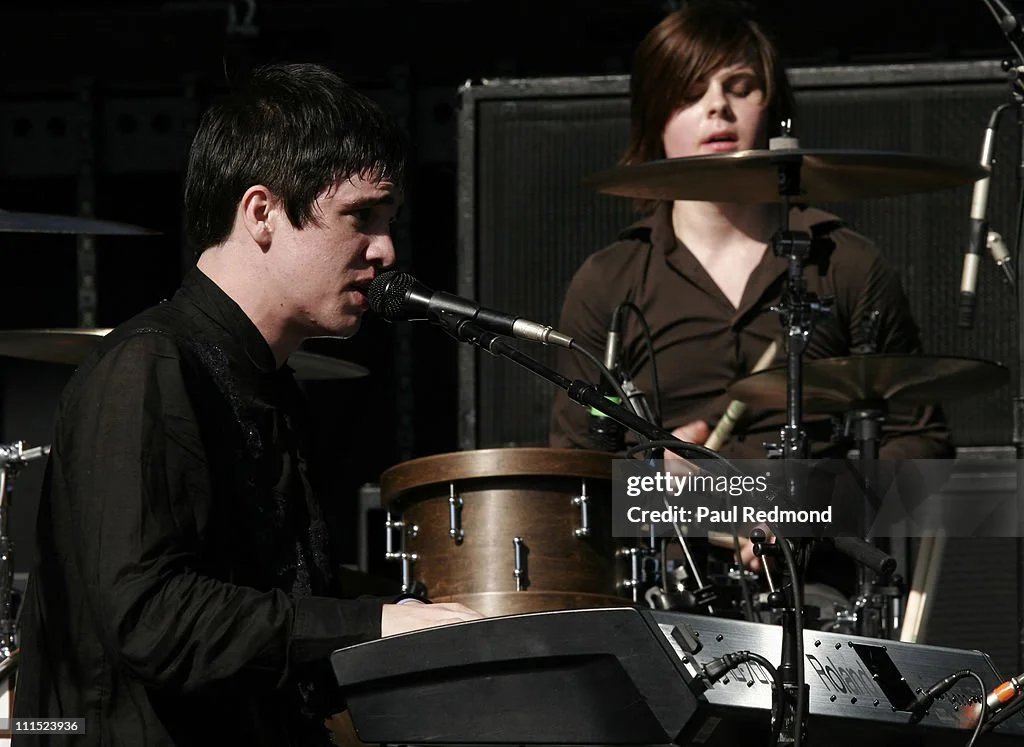
So, Volume Two of our story begins here–on May 13th, 2006. The day of KROQ’s Weenie Roast. Today, Brent Wilson failed to appear in time for the band to depart for the show, and his bandmates were unable to even contact him. So, Jon Walker, guitar technician for The Academy Is…, stepped up to fill his place. As I have previously discussed, the ensuing fallout of Wilson’s departure would be covered in great detail by James Montgomery; there, I proposed the hypothesis that he was aware of deeper issues within the band early on, ones that could not be written off as merely an “irresponsible” bassist. In a 2022 interview with The Ringer, Jon Walker would confirm at least half of this. He stated that by the time he joined Panic! At the Disco, “there [were] already pretty high tensions” and that the band was “kind of on the verge of breaking up.”
These “tensions” may have been due to the fact that–according to Wilson–from the very beginning, the band was under a “huge” amount of pressure. In the Theatre of Imagination unofficial Panic! documentary, Wilson–looking visibly strung out– said that “taking on your career at seventeen being far from home” was “the most pressure [you could] ever ha[ve] in your life.” In the words of longtime Panic! fan @prettyoddfever, “The band never really had the ‘childhood’ period that most new bands have, so they had to figure out who they were… while under some really intense scrutiny & criticism.” Similarly, Ross himself said, “[Fame] was overwhelming. I felt like we were growing up in front of everyone, and there’s growing pains when you’re that age…” Panic! did not even have a second to breathe prior to being launched into the limelight; before they even knew how to play their first three songs, they had to buck up and figure out how to woo Ryan’s idol. And the stakes only climbed higher from there.
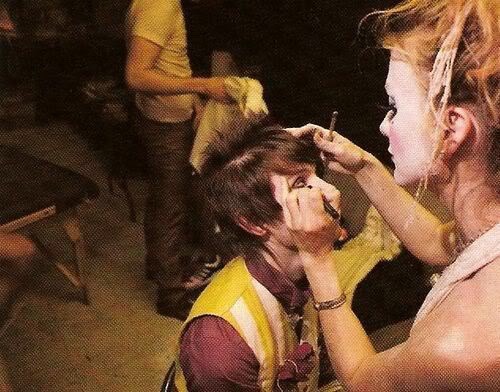
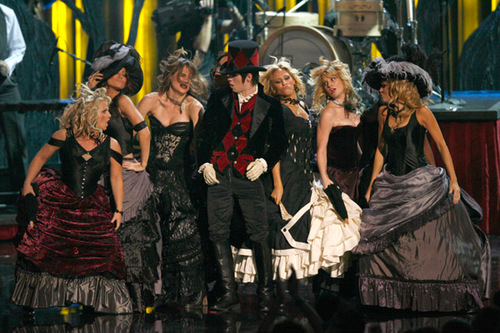
But, regardless of any turmoil brewing beneath the surface, the band soon embarked on their summer tour, with Walker in tow. On this tour, Dream Rockwell said they had to continually switch to larger and larger venues, because Panic! were “just exploding.” Ross himself later said that fame was an “insane life choice for a kid to make” and that “It was a lot. And it was happening really fast. And we were just kind of always on tour, and so things were getting bigger and bigger.”
Ross went on to explain that the band’s “little tour bubble” prevented him from comprehending how massive their record had truly become. These comments were echoed by Wilson, who said, “I didn’t realize how big [Fever] was until I was out.” And even though some were reporting that Panic! were living a “charmed life” and “had w[on] the lottery,” fame wasn’t really shaping up to be everything Ross had hoped for. In fact, a very important part of being famous was starting to seem like something of a letdown. Ross’ apparent disillusionment was not merely caused by the vitriolic critics of his record. Or even journalists in general, whom Panic! cited as “the worst of anything” (specifically ONE journalist, whom Ross was prevented from naming by his bandmates.) Nor was his distaste primarily directed towards his contemporaries, of which Urie said there were “very few” the band could tolerate. Rather, it seemed that Ross detested the bulk of his own adoring fans–mostly young women, whom Ross said he didn’t “underst[and].”
So, that summer, shortly after the Brent Wilson drama had cooled down, Montgomery (who once trawled AbsolutePunk.net comments to report if guys would “still hit it” after Hayley Williams dyed her hair) ran one of his early stories about Panic!. Specifically, this concerned how Ross felt it was “disappointing and disgusting” that girls were “taint[ing] the music” by focusing on Panic!’s “boyish good looks.” Ross even went so far as to tell Montgomery he could “hear” the difference between a real fan and “a [FOB] fan who’s just there because they heard we were hot.” This was, presumably, the difference between girls shrieking and dudes grunting.
When a separate interviewer followed up on this, Ross elaborated that it was “disheartening” to see kids wearing Brendon Urie shirts, because “they’re twelve or whatever and don’t really understand the words.” And while Ross felt these girls could not even relate to his music, he once snapped that Panic! getting fast-tracked to fame was “a nice story for people to print, but I’ve been playing in bands since I was thirteen years old.” In Ross’ mind, boys in cover bands were true believers, grinding hard to break into the industry. But girls the same age were too braindead to even “understand” music.
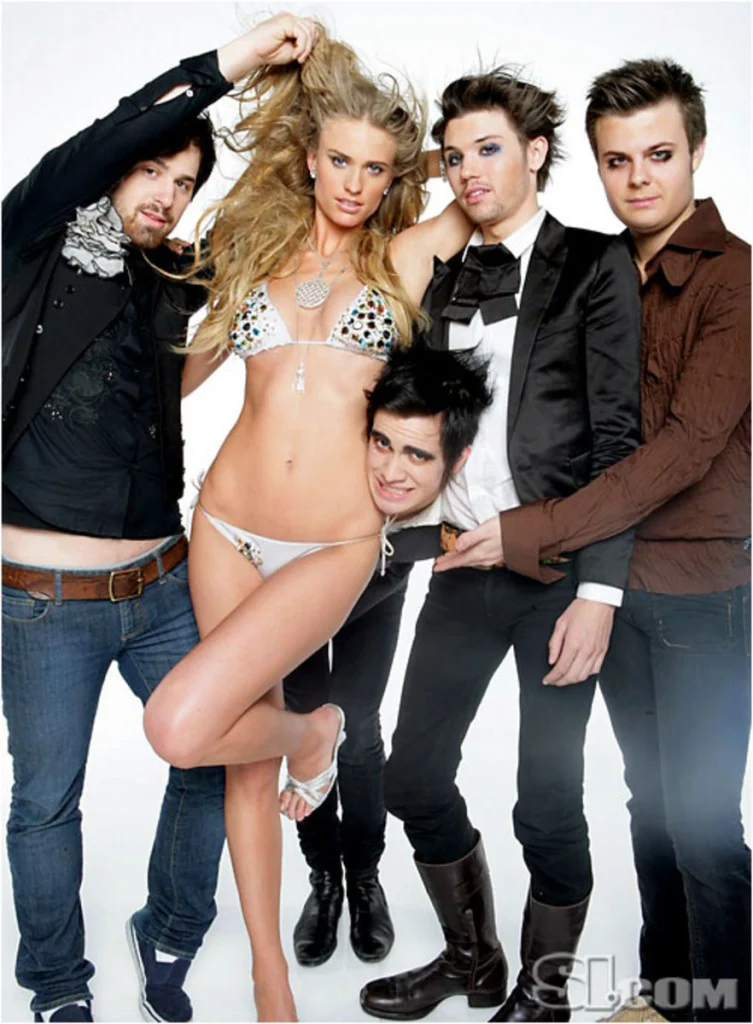
However, this visceral reaction was not merely the (understandable) shock of a teenager first experiencing the bad side of fame and sexual objectification by tweens across America. Rather, this was Ross’ long-held personal crusade; during his pre-Panic! stint as a Secret Order keyboard warrior, he often seethed that the “effing ridiculous” girls that treated FOB like a boyband made him “fucking sick.” And now, to Ross’ chagrin, he was a Backstreet Boy, too. It seemed that while Ross had been willing to jumpstart Panic!’s career by advertising (clothed) booty pics to other teens online, he had failed to forecast that–if he succeeded–this reputation would be hard to shake.
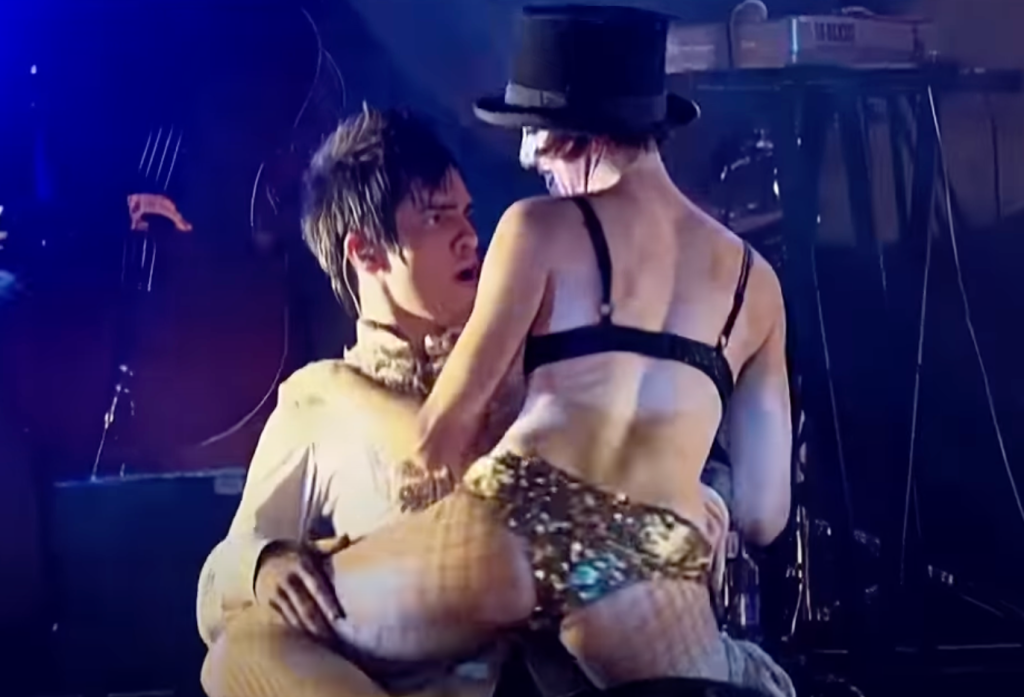
Bizarrely and paradoxically, while all of this was going on, Panic!’s “hypersexual” live show–which Montgomery likened to a “S&M club”–encouraged their sex-bomb image. The intermission of their taped 2006 performance featured the “harlots” tittering and hyperventilating as they listed qualities that rendered the members of Panic! desirable sexual partners. These included–but were not limited to–allegations that Urie was a virgin, implications regarding Smith’s ability to hit the G-spot, discussion of the musculature of Ross’ glutes, and claims that keyboardist Eric Ronick appeared in an underwear catalog. This, too, was something that stretched back to Panic!’s beginnings, with Ross posting photos of his ass in LJ community tightpants to advertise Panic!’s PureVolume page. It seemed that–despite Ross’ outward protests–the band was doing whatever it took to sell, and sell fast. But while copies of Fever were flying off the shelves, it looked like Ross was most definitely starting to have second thoughts about this whole being famous thing.
However, Ross’ apparent hostility was not merely caused by increasing barometric pressure as Panic! hurtled towards the moon. He was also going through something very serious offstage. As I established earlier, Ross’ father was an abusive alcoholic. During Panic!’s early years, his addiction was so severe that he was frequently in and out of the hospital, something that Ross explored on Fever tracks like “Camisado” and “Nails for Breakfast, Tacks for Snacks.” Their relationship grew more and more strained, until Ryan’s dad threw him out of the house shortly before Panic! took off. As stated by Ross, “I wasn’t on all that great of terms with my dad when I left…”
Ryan spent much less time with his father after this, as the band was touring extensively. According to Concert Archives, they often played six shows a week, including during the month of July 2006. Meanwhile, Ross’ father’s health continually grew worse. On July 28th– just two weeks after Ross’ rant to Montgomery–his father’s life ended. Ryan was not with his father at the time of his passing; as reported by Rolling Stone, the band was en route to their July 28th show in Seattle when Ryan heard the news. He told reporter Jenny Eliscu: “I got a phone call, and I knew right away what the police officer was going to tell me. I just knew.”
Ross later told Rocksound that his father’s death was “not an accident,” a statement with implications that he did not elaborate on. He merely stated his father’s death occurred because he was “unhappy and lonely,” and added, “It was not a tragedy and it was very peaceful.” Later still, his then-girlfriend Keltie Colleen wrote that Ross’ father “drank himself to death. …[Ryan] doubted his father ended up in heaven.”

Shortly after the funeral, Ross told Rolling Stone that during the ceremony, “It was raining and… it was strange to be raining that time of year. After the service, I went back and put my hand on the casket and kind of said goodbye. Right then, it stopped raining. The clouds blew away, and the sun came out, and it got warm…I miss him, but I feel like everything’s all right now.” Ross added that he only missed three shows, and returned to the road in time for Lollapalooza. He later told Rocksound that while it was his decision to return to touring so soon, “It was really hard for me to even play for the rest of the record cycle.”
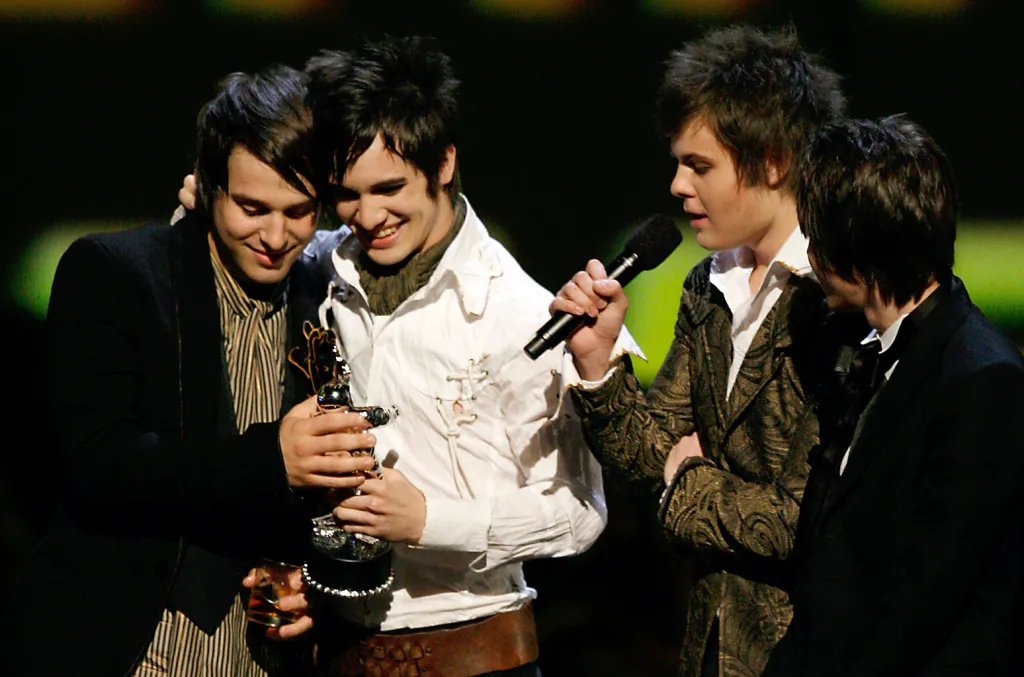
During the rest of August, the band performed festivals throughout the UK, and on August 31st, they won their VMA. This was followed by an international tour, and then in the winter, they took some time off.
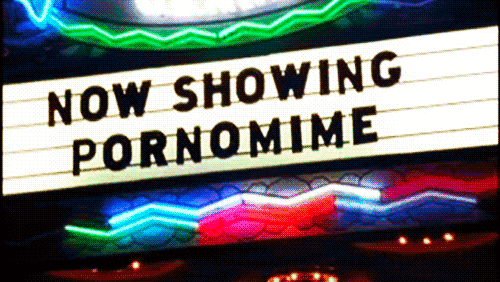
During their “time off,” NME named them the worst band of the year. Additionally, Panic! released the video for their third single, “Build God, Then We’ll Talk.” The video starred the “Pornomime,” and consisted of about what you’d expect, plus cocaine for good measure, and also did not feature any members of the band. It was rather poorly received; in response, Rolling Stone wrote a scathing review that called Panic! “insidious” and “unironic, self-obsessed, hormonal adolescents.” Beneath this review, one surprisingly clairvoyant commenter named Aly observed that the stunt was an attempt by the band to “get rid of all the 13 year old MTV fans, duh.” As I will continue to demonstrate, this is exactly what Panic! wanted. Aly went on to say that if Panic! continued in this direction, “The fanbase will go downhill.” And she was right.
CRICKET AND CLOVER
So, sometime in the spring of 2007, Panic! at the Disco and their new bassist disappeared into a cabin in Mount Charleston, Nevada to record their sophomore. And they had some pretty big plans. Panic! planned to leave all of the “teen angst” and “synth crap” in Fever behind, instead intending to use “accordions and organs and all the bodily instruments.” Now that their rugged life on the road had “turned [them] into men,” they dismissed their debut tracks as mere “rock derivatives.” Instead, they’d matured into music that “wasn’t rock at all,” and was composed of “organic instruments and organic types of songwriting.”

Panic!’s new tracks were “psychedelic” “unconventional” and “free-flowing”—apparently, so free-flowing that “there was hardly any guitar, or drums even,” Nor did there seem to be actual instruments. Instead, Panic! wanted to build ones out of “glass, egg crates and wood cartons.” According to Mathes, at one point, Ross reportedly yelled, “To hell with our guitars,” and in a documentary filmed by Urie’s ex-roommate Shane Valdez, Ross smashed his guitar and lit it on fire, proudly adding, “I burned it alive.” In addition to no instruments, there were also no choruses–instead, there were “just parts that didn’t repeat.”
And for such an experimental endeavor, the band certainly had high expectations. Ross said it was going to be “very cinematic” and “big, but not in conventional ways.” Apparently, Cricket and Clover was so unconventional that “you wouldn’t be able to play [it live] in a certain time period.” (Uh oh.) Seemingly, it could not be performed on planet Earth either. Ross said the album was set “in a strange world,” and he told Montgomery that it was “taking place in a mixed reality, in a place that’s not real. It doesn’t take place in the future or the past or the present.”
Specifically, Ross was daydreaming up “a modern fairy tale.” And living in a castle in the sky wasn’t exactly new to him. Brendon Urie has described Ross’ imagination as “pretty out there,” and similarly, Ross’ ex-girlfriend Keltie Colleen wrote, “He existed in the present but didn’t actually live here with the rest of us. He was a starry-eyed dreamer…Instead of dealing with the not-so-magical situations in his life, his mind transformed to a place where he was happy.” And, given the relatively recent death of Ross’ father in combination with the “overwhelming” pressure of Panic!’s growing fame, it was no wonder that Ross retreated deeper into “romantic, poetic fantasies” than ever.
And his latest fantasy was apparently a “doomed love affair,” between two characters, Cricket and Clover. A fan who translated an interview regarding the plot of the album shared the following. She said that Cricket—a boy—was the main protagonist, and he fell in love with a girl named Clover at first sight. Though there is controversy surrounding the next bit, Cricket may have been a “star” that “fell from the heavens.” Fitting with this interpretation, Ross told Rocksound that his characters were “creatures of some sort,” rather than humans or animals. Finally, the band told Alt Press that each song was supposed to correspond with one of the seven deadly sins (Sound familiar?).
All of this vague grandiosity was apparently because Panic! wanted to be different than “basically every [other] band that blows up.” However, in spite of the plans for Cricket to be unlike anything else ever created, Ross paradoxically wanted the album to be “universal, something that pretty much anyone can relate to.” In short, Panic!’s plans for their second record were certainly, uh… in the words of Spencer Smith, “pretty ambitious, I guess.” Or, according to Montgomery, a “train wreck,” “terrifically terrible,” “career crippling,” “completely crazy,” and “utterly insane.”
And despite all this talk, Ross eventually admitted that, “Everything we say is kind of bullshit at this point, because we don’t have any songs written.” However, it appears they did eventually get something done. Wentz–one of the few alive who claims to have listened to the demos in full– told Billboard it was, “a bizarre musical about wolves. It felt a bit forced.” Fueled by Ramen president John Janick, who also heard the demos, asserted Cricket would, “stay on the shelf.”
The lack of viable results may be due to the fact that Panic! aspired to try “different kinds of experimentation” during Cricket’s creative process. And it was not just their sound that the band got experimental with. During Fever, Ross stressed that Panic! “didn’t drink” and “didn’t consider [themselves] a party band.” His bandmates shared a similar philosophy. When asked about touring bands getting drunk and needing to go to rehab, Urie stressed, “We don’t party like those guys do. We’re very responsible.” Walker agreed, saying, “We don’t like girls or drugs.” Urie elaborated, “Other bands will go out and party, and they like girls and drugs, and we like talking about ideas and new concepts.”
However, as they began to actually explore these new ideas, the band quickly changed their tune. During their Rolling Stone cover shoot, Urie and Walker asserted they’d begun smoking hash and peyote. To this, Ross inexplicably added, “We’re Native American.” Smith would later tell Montgomery that during this time period, he began “mixing alcohol and [pills] partially in an attempt to channel his creativity … but also to cope with the pressures of following up [Fever].” Urie, too, later told Coup de Main that the band was “doing a lot of drugs,” specifically mushrooms. And besides doing a 180° on the whole D.A.R.E. thing, they’d also changed their stance on fraternizing with women. Walker told MTV News that “The best thing about being in Panic! at the Disco” was that “the chicks are great.”
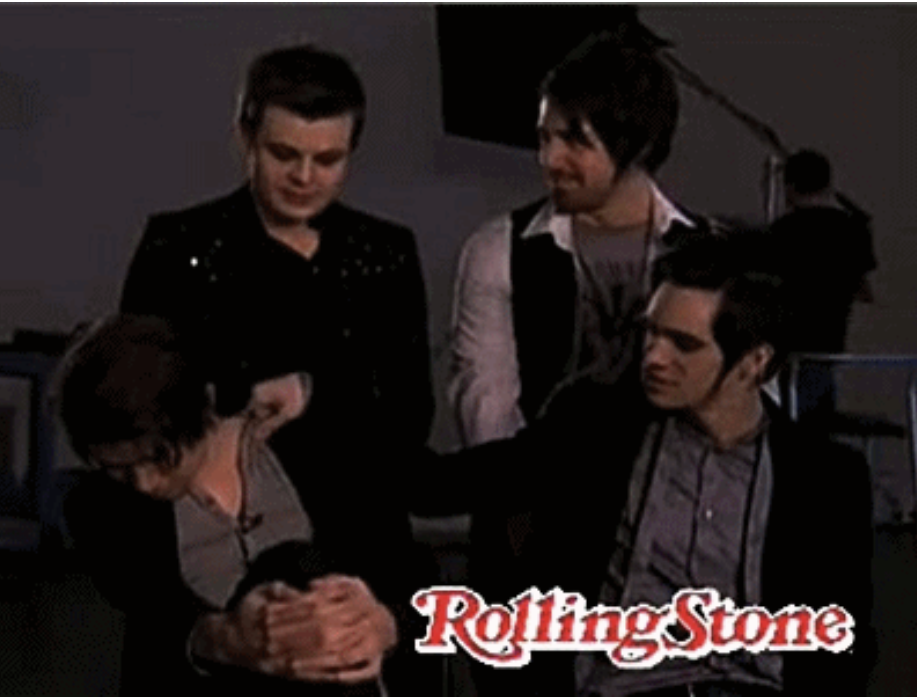
But drugs were not the only thing stalling Panic!’s second album. Ross later explained that the challenge of creating the, erm, thing that was Cricket and Clover became insurmountable, and the band’s creative process subsequently grew “strained.” Urie also said the band “felt a little bit of pressure” when attempting to write Cricket, and told Rocksound that, the band began “fighting a lot” and things were “getting heated;” this was due to the fact that “egos and pretension can really get in the way.” Meanwhile, producer Rob Mathes felt that Cricket and Clover also contained “experimentation… to a fault.” Finally, Montgomery said the bands “inexperience and ego and idealism and isolation” were all factors that contributed to the colossal mess.
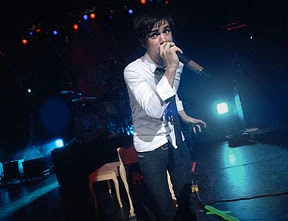
And it was when Panic! finally stepped out of isolation that Cricket and Clover met its death. On July 7th, 2007, at Summerfest, Panic! at the Disco performed a song from the cabin album entitled “True Love.” A post regarding this performance garnered a staggering 1,392 comments, the majority of which were absolutely trashing the song. And though Ross has stated the cabin album was scrapped because it was too difficult to play live, it wasn’t the sound that their fans had a problem with. It was the lyrics.
Fans said the lyrics to “True Love” were “horrible” and made them want to “vomit” or “punch a baby.” One even dubbed the song, “The Sappy Love Ballad of Ickyness.” And, since Ross was the lyricist, the general consensus among commenters was “You suck, Ryan Ross.” One fan said, “Ross is almost not worth my time anymore,” and another wholeheartedly agreed, adding “He’s been fucking up a lot the past couple months.” Some commenters even blamed his relationship with dancer Keltie Colleen for the perceived decline in quality, referring to the band as “Pussywhipped! at the Disco,” and calling Ross himself a “big pussy.” One fan rather eloquently summed up the vibes of this comment section with: “Sry RyHo, but you rely screwed dis one up.”
Curiously, the date of this performance was 7-7-7. According to the India Times, this angel number is a sign from the heavens to “contemplate your direction in life.” And, whether you believe in shit like that or not, it was apparent that Panic! at the Disco needed to do some serious thinking. So, following this abysmally-received performance, Panic!–or, as Montgomery hinted, perhaps the “powers that be”– decided to scrap the record. The band subsequently “burned and tried to destroy” the demos, and then headed back to the drawing board.
WRITING PRETTY. ODD.
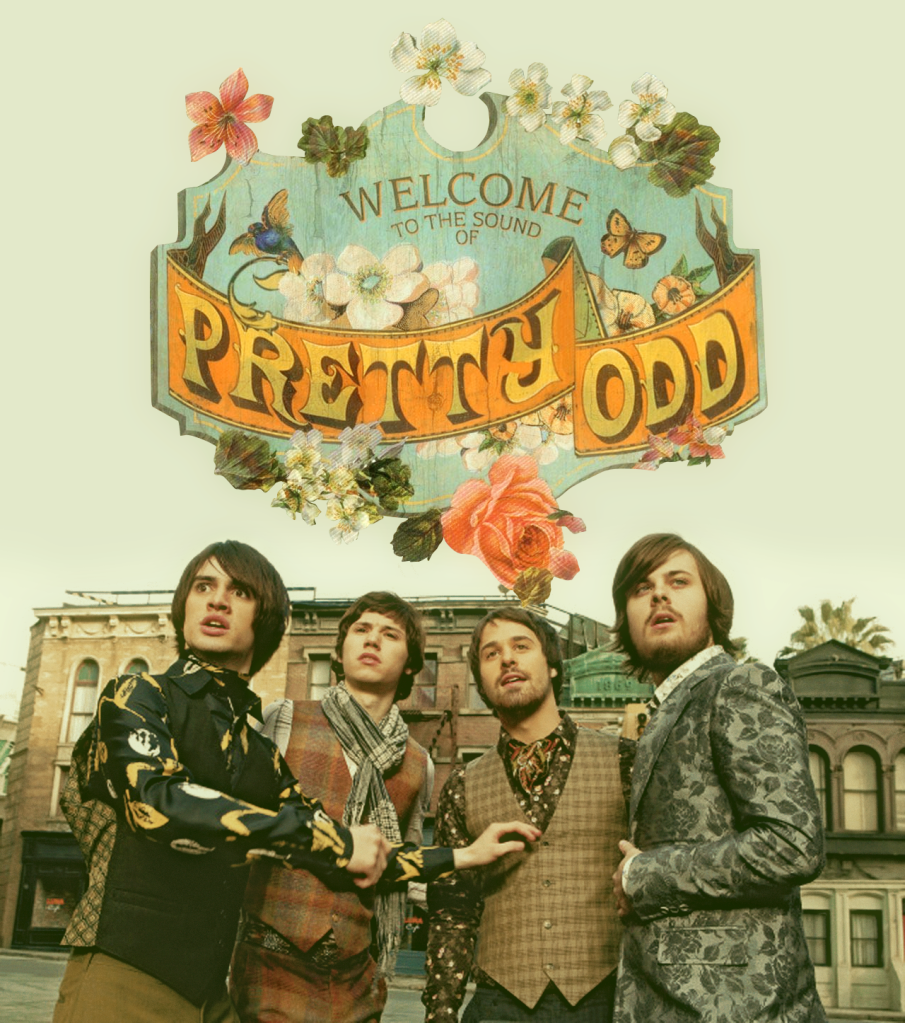
So, after spending some time writing at their old rehearsal studio in Las Vegas, the band started recording at the Palms Casino Resort. And–apparently–they were happier than they’d ever been. Ross told Montgomery that their new-new songs had a “positive outlook to them, [because] it’s kind of hard to write a bunch of sad songs if you’re not sad anymore.” Similarly, Urie said that during the recording of Pretty. Odd., “We were happy being a band. We were happy being friends together.” Walker agreed; he said that, “We felt happy…I think all that stuff kind of comes out in the music.” Montgomery, too, painted an idyllic picture of the band as “sun-dappled” and “stony, California-dreamin’ canyon children.”
However, in reality, things were not so picturesque. A few years later, Urie said Pretty. Odd. was, “perhaps the point where we should have realized that we ought not to be writing with each other.” And though at the time they put on a brave face to the press, interviews from the Pretty. Odd. era illuminate fractures that would only continue to deepen. The band’s writing process had evolved–and it seemed they could not handle these growing pains.
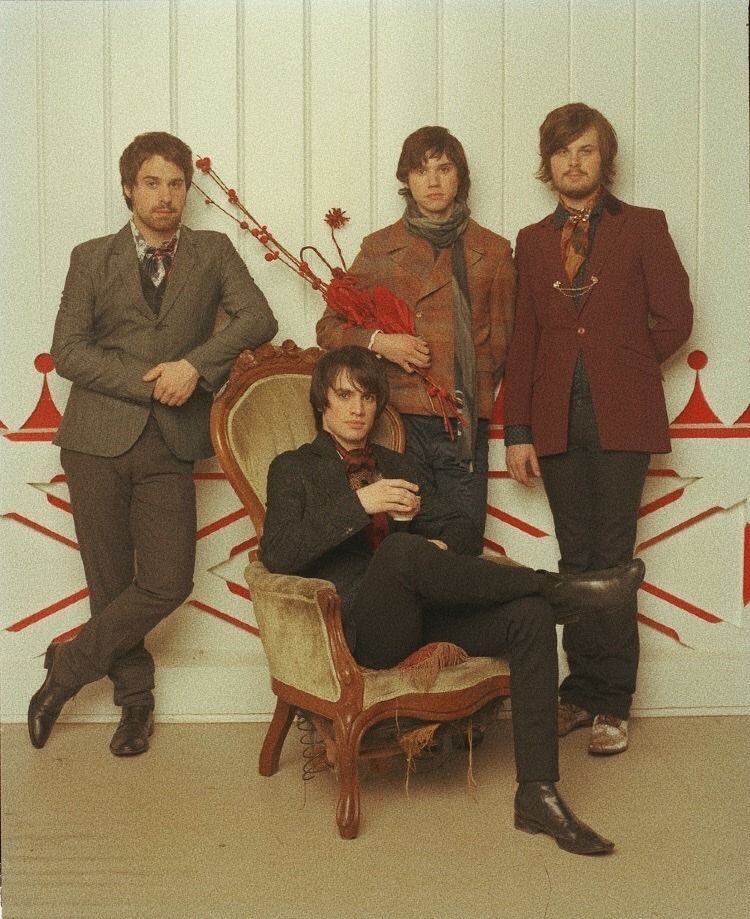
Before, on the band’s debut, Wilson said they found they wrote “better songs” when Ross began with lyrics and the first part of the music before the rest of the band stepped in. Urie himself even professed that he was “not a great poet at all,” and it made sense for Ross to take command over the lyrics. However, this system came with challenges. Urie stated that being the “voice for [Ross’] opinion” was an “obstacle” that the band was seeking to overcome. In a separate interview, he again mentioned how they found this system to be “kind of frustrating,” though he claimed they had “gotten past that.” Ross felt the same way; he said, “Between me and Brendon I write the lyrics and he sings them so there’s definitely a lot of going back and forth and frustration on trying to be able to communicate with each other.”
A documentary by Urie’s ex-roommate/former Panic! videographer Shane Valdez, entitled Calendar Business, paints a stark picture of the discord that was beginning to brew during the composition of Panic!’s second record. Much of the documentary focused around the tensions between Urie and Ross over who got to sing. In Panic!’s previous iterations, Ross had been the singer. Then, Urie–who has a much stronger voice–joined Panic! as the sole vocalist, and sang all of Fever. However, during their Live in Denver performance, Ross’ backing harmonies complemented Urie well, enriched the band’s sound, and have gained a cult following online. So now, Ryan Ross wanted to sing, too.
And sing he did. Ross’s voice appears on about a third of the songs on Pretty. Odd., and he sang “Behind the Sea” in its entirety. At one point in the documentary, Urie—his laissez-faire attitude barely concealing his spite–said that now, he couldn’t “really say anyone has a specific job.” And sharing wasn’t necessarily the worst idea. There’s something about how fragile Ross sounds–just like a robin’s eggshell, or perhaps “a May butterfly”– that enhances the childlike whimsy of the record. However, on some of the earlier demo versions, it becomes apparent that Ross’ vocal abilities were lacking, especially next to the operatic powerhouse that is Brendon Urie.
And to be completely fair, it wasn’t just Ross that was encroaching on Urie’s vocal territory. While Montgomery has made quite the show of Ross being the “songwriter” and “mastermind” behind pre-split Panic!, on this record, Urie wanted to write more. Or, as Ross grudgingly admitted, he “let Brendon have a few shots.” Specifically, these were “Folkin’ Around,” and “I Have Friends in Holy Spaces.” Urie—endearingly, excitedly mim, especially compared to his later reputation–said his bandmates allowed him to “throw” his own songs on the album, even if they were just “simple, little number[s].”
In short–in the words of Urie–“It’s always a challenge when… everyone wants their idea to be the one that gets chosen.” And though Rob Mathes says on camera, “Most bands have these ferocious arguments…But Brendon’s the coolest guy ever. He’s like, ‘Yeah sure, whatever!’,” the documentary actually tells a different story. Filmed by Urie’s close friend and then-roommate, it features many lingering shots on Urie, who looks deeply upset with the band’s decisions–and specifically, what Ryan Ross wants to do.

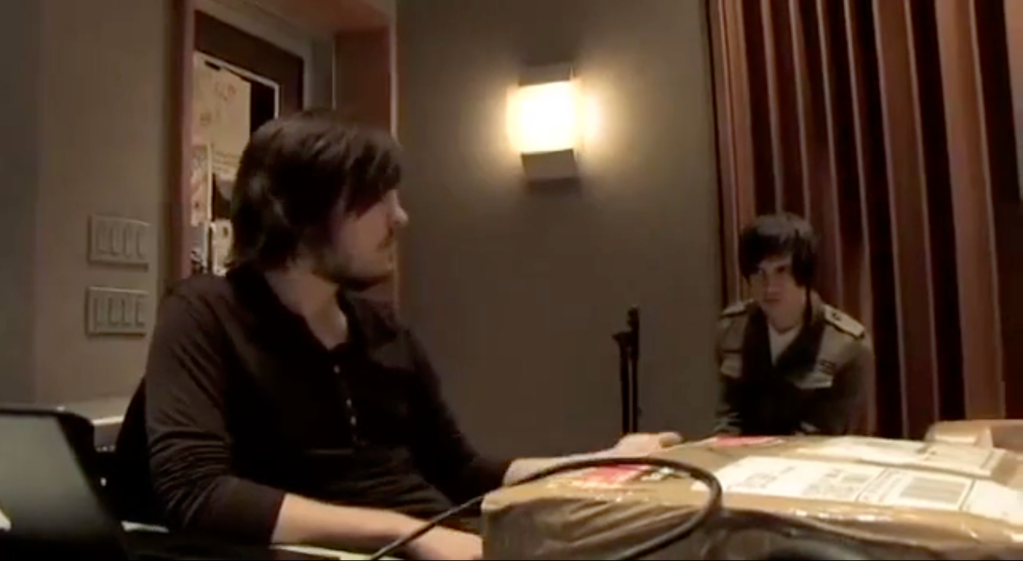
As Spencer Smith astutely said, “It sounds great to just go, ‘Let’s compromise, and everybody gets what they want.’ But usually a compromise means each person’s just kind of happy, because they kind of got what they wanted. And then nobody’s really happy.” And it certainly seemed that the band was compromising quite a bit on this record. Which would imply that–despite their claimed chipperness–the Panic! boys were not so happy after all.
THE ANTARCTIC-WEDDINGNANCY SOAP OPERA
But before I get into the actual debut of Pretty. Odd., we need to check in on Pete Wentz. It’s been awhile since we’ve done that. During the years between 2006 and 2008, Fall Out Boy were basically “at the top of their game.” In February of 2007, they followed their “breakthrough success” From Under the Cork Tree with Infinity on High, which was their first number one debut. Infinity went platinum just two months later, and has been called the band’s “most successful” album. But none of that is very important right now. For the purposes of this essay, we only need to focus on one thing: his whereabouts when Panic!’s sophomore came out. Because they are kind of, um, dramatic–and might’ve had an (albeit tiny) hand in why the release was so anticlimactic.
On March 16th–less than a week before the release of Pretty. Odd.–it was announced that FOB (plus Wentz’s favorite reporter, who seemed to be swooning even harder than usual) were going on an impromptu trip to Antarctica for a “super-expensive attempt to get into the Guinness Book of World Records.” The performance would be on the 25th, after a show in Chile on the 23rd. Fans could attend–for the low price of $2500. The abrupt and–truthfully, strange–nature of this decision may be due to the fact that the plan originated from one of Wentz’s “bizarre, super-tripped-out emails.”
Pretty. Odd. came out on the 21st; at the time, everyone was presumably undergoing the “48 hours of traveling” necessary to get to Chile. However, soon after FOB and their entourage arrived, the Antarctica show had to be postponed due to the weather. This left everyone held “hostage” at a hotel, which was “under siege” by teenagers. And then–just two days after the band was scheduled to play–the show was canceled, and Wentz and Stump promptly disappeared. Their need to leave was apparently so dire that they’d left Hurley and Trohman behind. (Yikes.) At the time, Montgomery’s official cover story was simply “scheduling conflicts.”
But this was not the whole picture. Later, he would write that Wentz was “acting weird” and was “stressed” during the trip. (Though at the time, Montgomery–who, as we have established, was considered highly desirable by young women who frequented FOB message boards– was too busy being swarmed by girls to notice much of anything at all.) The band cryptically posted on falloutboyrock that “there [wa]s more to say” about their sudden flight out, but they would let fans know later.
At this point, Wentz—who supposedly was just having a very long, very boring sleepover with his “BFF” for the last several days—suddenly remembered that Panic! had put out Pretty. Odd. about eight days prior. So, he made a half-assed post on his personal blog incorrectly stating the album was “out this week.” This delay may be due to the fact that Wentz’s slumber party was–in reality– much more eventful than just the guys “fulfilling slash-fiction fantasies.” And because of all the drama, I imagine it was pretty easy to forget all about Panic! at the Disco.
And as for exactly what happened at the sleepover, here we go. Just 13 days after Wentz fled Antarctica, Ashlee Simpson made a blog post stating that ongoing speculation was true. She and Wentz had gotten engaged and it was “a very private matter.” Five days after Simpson’s blog post, Wentz began valiantly fighting rumors that she was pregnant, telling Montgomery he was the victim of a “witch hunt” and inexplicably going on a tangent about this being a cover for him being secretly gay. According to MTV, in spite of all this, Simpson appeared to be “totally-not-obvious[ly] pregnan[t].”
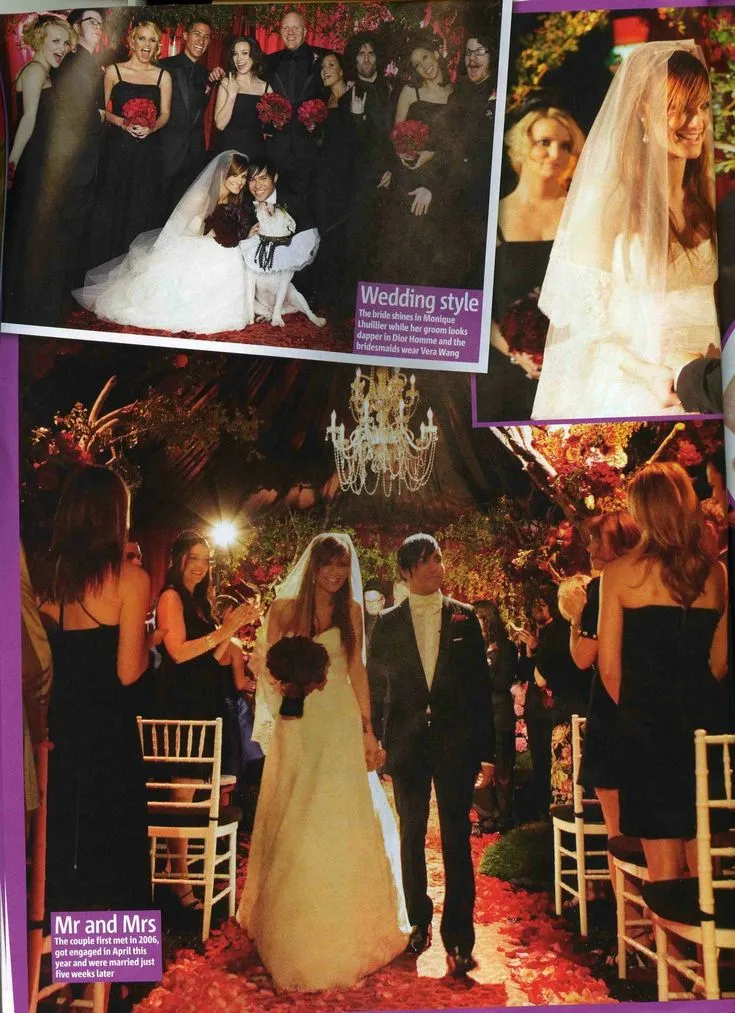
At this point, it is necessary to note that Simpson’s father was a Baptist minister, and her older sister Jessica famously remained a virgin until marriage. Ashlee herself had forged her career through the television show 7th Heaven, which has been referred to as “Christian propaganda.” Critics have explicitly noted its “heavy-handed moralizing,” especially in regards to its “obsession with premarital sex.” It may also be worth noting that about five months prior to this incident, Montgomery and Wentz were battling allegations that Simpson’s father had banned him from their home for being “possibly bisexual.”
So, if you haven’t connected the dots yourself, here you go. In the words of Panic! at the Disco’s “Time to Dance:” “I say shotgun, you say wedding. Shotgun! Wedding!”. Simpson and Wentz got married just five weeks later. The wedding was a fairly private affair and held at the Simpsons’ home. Simpson’s father officiated the marriage; Stump was best man; Jessica was maid of honor; Wentz’s dog was the ringbearer; and Montgomery was not invited. Suffice to say, no one was paying much attention to Panic! at the Disco.
PANIC!’S SOPHOMORE SLUMP
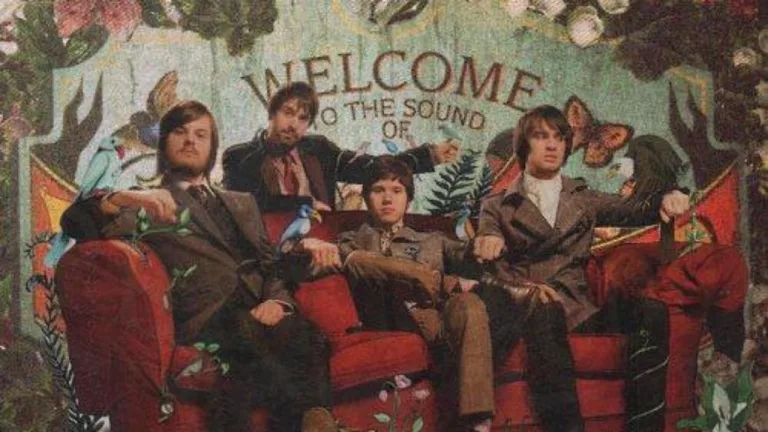
So, now that I’ve established the drama occurring in tandem with the release of Panic!’s sophomore, I have to rewind a little. Panic! put out Pretty. Odd.’s first single, “Nine in the Afternoon,” in late January of 2008, amidst a lot of–in the words of Montgomery–“hysteria.” Much of this hysteria was due to how–shockingly–the band had dropped the exclamation point a few weeks prior. Montgomery urged fangirls, “You don’t need to freak out (!). Seriously (!). Calm down (!).” Meanwhile, Urie swore up and down he had never actually used it, anyway, and this really wasn’t a big deal at all, like, really. And though the boardies were told they were overreacting, the loss of the ! was a harbinger that change was on the horizon. Rather ominously, it was a move that a punctuation expert interviewed by Montgomery described as “odd,” “especially for a rock band.”
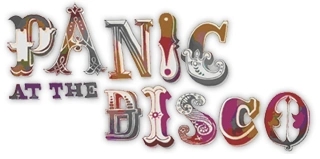
And with the removal of the beloved exclamation mark came other extreme stylistic changes. Though Smith had ironically said of Panic!’s Fever aesthetic, “A lot of bands now, they’ll go to vintage stores and buy blazers and try to look like they’re from the 70s and everything… [We] try to wear stuff that’s a little unique,” this is exactly what they ended up doing, anyway. The band ditched the whole Moulin Rouge! thing and instead began–according to Montgomery– “dress[ing] like…attendee[s] at the Memphis Insurance Adjusters’ 1973 Winter Conference.” They’d also begun performing on vintage instruments; Ross favored a “Gibson Les Paul Jr. from 1960,” while Urie played on a 1972 Fender Classic, and Walker with a 1962 Fender Sunburst. This was pretty fitting, considering that they’d recorded the second half of Pretty. Odd. at the same place The Beatles recorded Abbey Road.
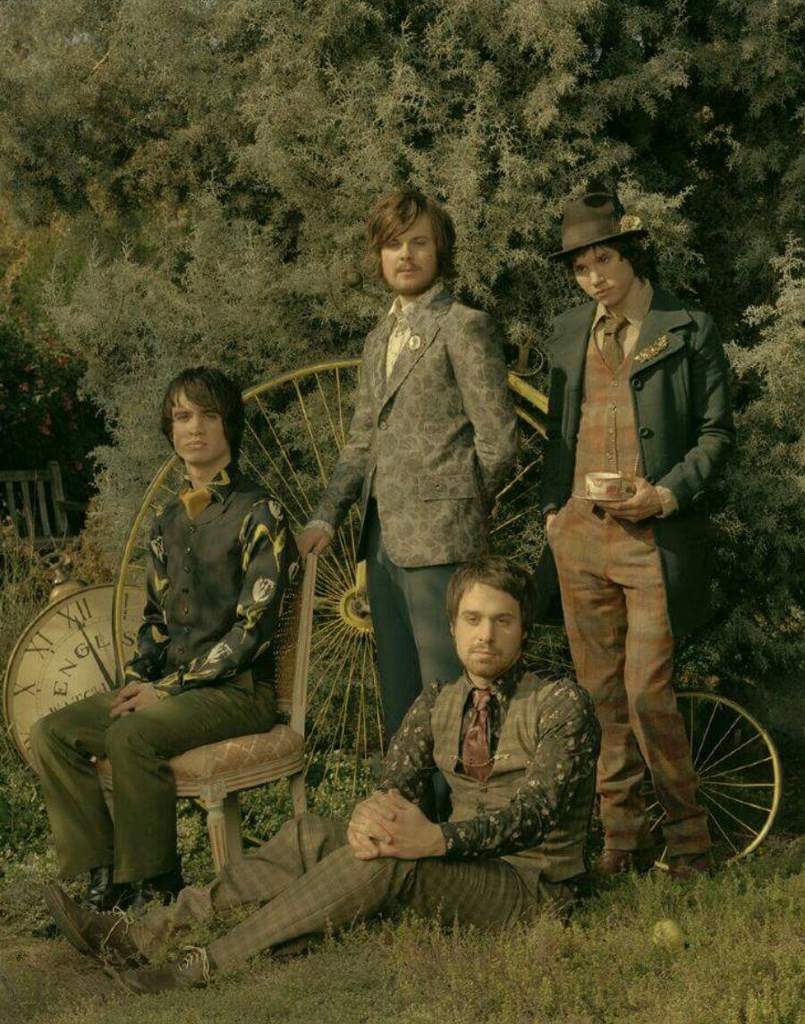
And oh, did they mention? They loved The Beatles now. Smith told Modern Drummer Magazine that The Beatles “sounded more interesting, creative, and fresh to [them] than anything [they] were hearing on the radio.” Urie agreed; he gushed to The Morning Call that The Beatles were now “one of [their] favorite bands.” And Ross–who had the most Beatlemania of all– told NPR that their love of The Beatles was so devout it was “like Christians who want to be like Jesus.”
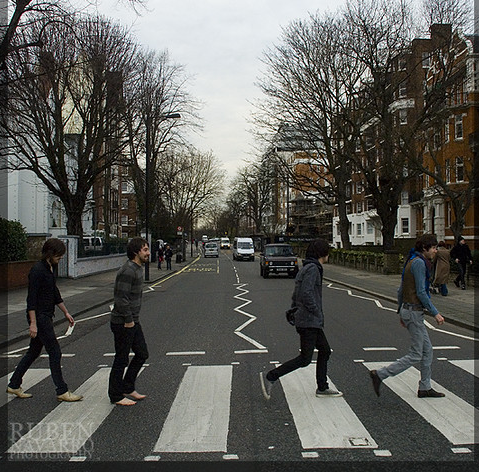
And The Beatles weren’t the only band they were suddenly into. According to Walker, they’d “grown to appreciate a lot of older music…You know, the classics.” In a separate interview, he added, “There isn’t really anything connecting us with a lot of [new] music that’s out there.” Specifically, they felt modern music was “fabricated,” but music from the 60s was “real.” Urie agreed; he stated that the band hardly listened to contemporary music at all, as there were “very few [newer] bands” that they enjoyed. Older music, however, was “timeless.” Finally, of the 60s, Ross said wistfully, “I think a lot of things were better back then. All the way around.”
This sudden obsession definitely came out of left field. Due to the abrupt nature of this shift, Panic! chose to open Pretty. Odd. with “We’re So Starving,” which reassures their fans that “You don’t have to worry, ‘cause we’re still the same band.” (Never mind that–strictly speaking–their lineup had changed. And would continue to change with almost every subsequent release.) But despite their plea, Pretty. Odd. was a move that–according to Urie– “alienated” their fanbase. The New Zealand Herald reported that the reaction to Pretty. Odd. was “adverse” and that the band was failing to fill more than a third of the arenas they were touring in; this prompted Wentz to smirk that unlike Panic!, Fall Out Boy liked to “hit home runs.”

It also might have alienated Montgomery, too. Shockingly, I was unable to locate a single article from that spring covering Pretty. Odd.’s release, or even just Panic! in general. So maybe Montgomery didn’t like the record, and figured if you can’t say anything nice, it’s better to say nothing at all. After all, months later, he noted the album’s “colossal tanking”, and cited Panic! as “the prime example of what happens to up-and-coming bands who get a little too big for their britches.” However–despite his tell-tale silence upon the debut– he did later claim that Pretty. Odd. was “underappreciated” and one of his “favorite albums of 2008.” So maybe he (like Wentz) was simply too preoccupied with the entire Antarctic-Weddingnancy thing to pay much attention to Panic!. Or he’s just a good sycophant. Who knows.
Either way, he wasn’t the only reporter that met the release of Pretty. Odd. with crickets. In the words of Ross’ then-girlfriend Keltie Colleen, “magazines weren’t calling Ryan anymore” and Pretty. Odd. was a “semi-flop.” Likewise, longtime Panic! fan @prettyoddfever noted, “Media coverage of the band had noticeably decreased” and while “the Fever era frenzy felt like it rose exponentially… the hype [for Pretty. Odd.] steadily declined.” And just as Montgomery wrote that Panic! were “crashing back to Earth,” Colleen also said that “[Ryan]’s star was falling.” Later, in 2009, Ross himself would Tweet: “My star got cold…”
“PANIC WORLD IS A FUNNY PLACE THESE DAYS”
And it was shortly after the release of Pretty. Odd. that warning signs emerged that Panic! stood on shaky ground. And don’t get me wrong–as we’ve discussed, there had already been signs of discord within the band for a while, ever since the cabin album. However, while The Beatles powered through the tensions that emerged on The White Album and released three subsequent records, it seemed that whatever shifted in Panic! became unresolvable after just one. This was—possibly—because whatever changed was not just within the band. It also involved their “boss,” AKA Pete Wentz.
Beginning in the summer of 2008, a few signs of Unrest! at the Disco emerged, each involving their status with Wentz. Curiously, these responses would come around the same time as a summer 2008 interview in which Smith insinuated that Ross and Wentz had come “close” to hooking up, and Ross had cryptically elaborated that “maybe, in another sense of it” he and Wentz had done so. But regardless of whether or not this was a joke, it seemed that, at the very least, the nature of their relationship had shifted.
In the early spring of 2008–just barely prior to Pretty. Odd.’s release–things still seemed okay. But they were starting to slide downhill. First, Smith said that being asked how they met Wentz was “the only thing that ever bugs anybody about doing press.” Shortly afterwards, Ross called Wentz their “biggest fan,” but rather despondently added, “[Pete] I guess, makes [Panic!] sound better than I think it is, sometimes… He’s always telling us ‘It’s great, what you guys are doing.’ It’s nice to hear that once and awhile, but sometimes I’m like, ‘Ah, well, it could be better.” But following Pretty. Odd.’s anticlimactic release–and Wentz’s need to attend to more pressing matters–things began to splinter further.
In the summer of 2008, Ross snidely told an interviewer that Wentz had “zero” influence on him. When she followed up by asking if he still looked up to his former hero, Ross answered, “No… I don’t anymore.” While Ross may not have been entirely serious, this would be followed by a far more extreme comment made by Walker, one that certainly seemed to solidify the idea that certain factions of Panic! no longer held much respect for Wentz.
When MTV asked about Panic!’s relationship with Fall Out Boy that same summer, Walker answered, “I’d say maybe like, ‘Old uncle that bought you your first bottle of booze before you were old enough to do it yourself… Ten years later, that uncle is in rehab, and you’re laughing at him.” Taken in context, this is an exceptionally callous comment. Wentz has struggled with pill abuse and overdosed early in FOB’s career; he would later say of 2008 that he was in “a haze…of pills. It was hard to believe I could feel anything.” And lastly, in an MTV interview from October of 2008, a visibly buzzed Ryan Ross–beside a noticeably uncomfortable Brendon Urie–would insist on repeating a joke that Wentz was a “douchebag.” So, in short, things between Wentz and his former fosterlings looked sour.
But the worst sign of all came at the MTV VMAs that September. With this moment, it became official that things in Panic!–especially as far as Ryan Ross was concerned–looked pretty bad. Ross told an interviewer that “Panic! world is a funny place these days… It’s a hard life, you know?”. Then, when asked to elaborate on the band’s future, Ross answered, “We have some new songs, I think we’ll be working on it during our next tour and put it out by winter.” This statement was, obviously, pretty ludicrous; Panic! had released their record only six months prior, and it had practically taken years to compose. And besides, it was already September. The interviewer–understandably a bit taken aback by this–inquired if the label would even put it out so quickly. Ross–aloof to the point of being detached from reality–replied, “Oh, they want to. They want as many as they can get. Trust me.” And, like many statements made about Panic! at the Disco, this certainly sounded ominous.
But while things between Wentz and his “brilliant boy-child” seemed rocky, P-Weezy and J-Mont were tighter than ever. Montgomery said that during the summer of 2008, the two of them were spending a lot of time in Wentz’s “beach cabana” and “getting up to some pretty bad stuff.” (Who knows what this could possibly mean. Groupies? Blow? Groupies and blow at the same time? Together? We can only imagine.) But regardless of any wild speculation on the “debauchery” the two indulged in, they did film a lot of TV together. Additionally, Wentz named “West Coast Smoker”—one of the best tracks on Folie a Deux— after Montgomery; he said the song was one he felt “particularly close to.” And all of this makes Montgomery’s subsequent coverage of the Panic! split…interesting.
“ARE THE GOOD TIMES GETTING GONE?”
Before I get into the Panic! split, though, we have one more thing to cover: the–I’m very sorry to say this–dumpster fire that was FOB in 08-09. This will be rather long–but it’s necessary. You see, in the late 00s, Panic! at the Disco were not the only band falling apart. Though Panic! had taken their sound in a rather shocking direction and “alienated” their audience, the failure of Pretty. Odd. was bigger than just Panic!. That same year, Fall Out Boy were floundering and suffering from infighting, too. Though it has been claimed that a mathematical error led to the failure of Folie, there were bigger issues at play–ones both interpersonal and national.
In 2008, both of these bands–and many rock bands in general–were not just drowning in drama. They were also struggling because of the state of the US economy. While Ross said of Pretty. Odd., “I just had this thought that if somebody puts on our album after an eight-hour workday, they’re not going to want to hear something that depresses them….,” and Stump and Montgomery (allegedly) went on MTV to discuss Folie a Deux’s critique of how “girls worry more about expensive purses than global warming,” it seems that during the Great Recession, many Americans were not working–or buying–much at all. (And speaking of global warming, were all the stunts with helicopters and planes really necessary?)
They especially weren’t buying music– in 2008, U.S. sales of music products declined by a staggering 31.2%. While advancements in technology–such as the rise of iTunes–influenced this number, this was not the entire picture. Sales had declined only 8.3% worldwide, and only 11.3% in Europe. Rather, the massive blow happening in the US was due to the recession. In short, “somebody had blundered,” and just as the Great Depression demolished the Jazz Age, emo was over.
While all this pressure drove a quiet but permanent wedge between the halves of Panic!, FOB were essentially–and dramatically– on fire. The scene was falling apart, and by exploring how severely Fall Out Boy were fracturing, we can understand the broader climate Panic! were operating in. Plus, we can also understand Wentz’s mental state at the time of this massive upheaval between his protégés, and, thus, during the (debatable) end of his relationship with Ross. So, here we go.
FOLIE A DEUX, OR, THE SEMI-FLOP SHARED BY TWO
Perhaps the first sign that there was trouble in paradise was so small that nobody reported on it. On August 8th, 2008, a cryptic Q&A response from Wentz alluded to fantasies of breaking up FOB while they were “at the top of their game.” Leslie Simon would later say that by this point, the band had turned from “friends” to “coworkers;” similarly, Montgomery had written in June that the rest of the band were mere “supporting characters” in Stump’s symphony. Wentz later told Billboard that during Folie, the members of the band, “weren’t talking to each other. We were talking through managers.” And after Wentz’s ominous Q&A reply, the hits just kept on coming.
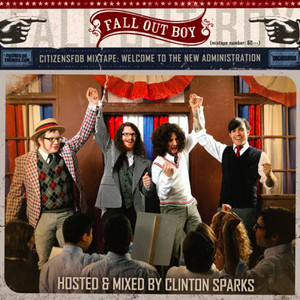
Two weeks later, the campaign for FOB’s mixtape, Welcome to the New Administration, was hijacked by another band. This prompted Montgomery to accuse them of “stealing thunder.” (Verbiage he would soon direct towards Ross… But we’re not quite there yet.) The mixtape–released August 25th– featured many appearances by FOB and their crew, including demos from Folie, and–tantalizingly–one of the Cricket and Clover demos. An intro by Ludacris stated FOB’s album would arrive on November 4th–something repeated throughout the campaign. Spoiler alert: Folie was not released on November 4th. So this is already a pretty big uh-oh.
To fans, little showed on the surface of the turmoil brewing within the band. But inside the studio, things were likely already dire. They may have been so dire, in fact, that Wentz might’ve resorted to some, um, unconventional methods to attempt to secure Folie’s success. In the first week of September, “I Don’t Care” was tested on the radio, and Montgomery would also be previewing the record. So, that Tuesday, Wentz bribed—sorry, BET—him $500.
But despite Wentz’s machinations, Montgomery’s coverage had… bizarre vibes. To start, Wentz was mysteriously missing, and his two BFFs had to hang without him. So, Stump and Montgomery “delv[ed] deep into” the “failings of society,” the “vapidness of the era,” and the “corrupt[ion]” of marriage. Seemingly, they spent more time talking about philosophy than music. Additionally, Stump made unsettling comments about how “Headfirst Slide…” was about “the prowl of chasing a woman,” “like [how] Hannibal Lecter” “doesn’t kill, he covets.” It was a little intense. And though most boardies were busy fanning themselves over how “hot ♥” this conversation was, one remarked things did not look good, as ”[FOB were] overthinking everything.”
However, Montgomery still did what he does best–cast smoke and mirrors around Wentz’s drama. Though he waxed about the “synergy” and “support” the band was sharing, and how any “detestable” behavior expressed on the record were just fictional alter egos, in reality, things were falling apart. Stump later said that while in the studio, he had a sense that “[FOB] might not keep going.”
And things did not get better. They got worse. (Almost around when “Pete Wentz gave birth.”) Three weeks later, Folie’s debut single “I Don’t Care” was released. Wentz almost immediately went on an internet rampage over unapproved Nokia product placement in the video, and accused his label of lacking “balls.” Shortly thereafter, Folie was postponed; publicly, the band claimed they were doing so out of respect for the seriousness of the election, but Montgomery reported that Def Jam may have “pulled the rug out from underneath them.”
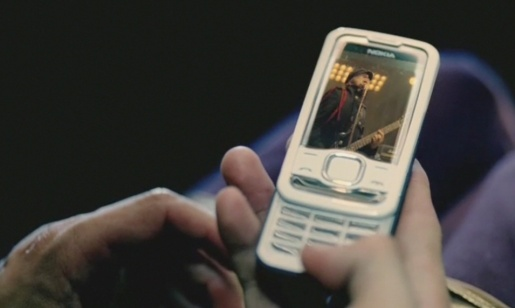
Then, decidedly “mid” reviews started trickling in. Ones that used words like “woeful,” “awkward,” and “misguided,” or described Wentz as “monomaniacal” and “not…clever.” And when the record actually came out, the band decided to host an impromptu concert in Washington Square to celebrate. This was immediately shut down by the NYPD, prompting Montgomery to write an article implying Wentz “wanted to spend a night in the clink” because he was enticed by other men. Oh, and FOB also started selling terrifying talking dolls.

Also that month, Blender reported that Wentz had “almost lost his band” leading up to Folie, and detailed Stump briefly storming out of FOB on an earlier tour. The story also noted Wentz’s well-established reputation as an “asshole, a sellout, a fucktard, a fame whore, a twat, a dick and a closeted gay douchebag,” amongst other things. But it also characterized Stump as an insecure geek, Hurley as having anger management issues, and Trohman as deeply unhappy with his place in the band.
And Fall Out Boy weren’t the only thing allegedly on the rocks. That spring, Wentz began battling rumors he and Simpson were poised to split. Nine days after Wentz and Montgomery had dismissed this rumored marital discord as “nonsense,” Wentz was photographed dancing with a stripper. The same night, Simpson allegedly tweeted, “I am beyond sad to leave my love… My heart is breaking as we drive home. I need my hubs.”

Soon after, the band made the unpopular decision to choose ATL and Metro Station to open the Believers Never Die Part Deux tour; Wentz subsequently went on a second internet rampage arguing with teenagers in comment sections over the matter. When the tour actually began, other opener 50 Cent was unable to appear on one of the five dates he was scheduled for. Another of the five had to be canceled entirely. The Vancouver Sun reported that FOB failed to fill even half of the arenas they’d booked–practically the same dismal numbers that Wentz had sneered at Ryan Ross over just five months prior.
And as the cherry on top, a Boca Raton concert was banned by the city, which led to Wentz going on a third all-caps internet rampage. Wentz claimed that the band’s concert—which had previously been called a “liberal homosexual rally”— was being censored by the government due to their support of gay rights. However, not much earlier, Montgomery had made quite the show of how the hordes of tweens chasing Fall Out Boy were so frightening they had rendered seven grown men shaking in their boots; this leads one to wonder if there were, in fact, “known disturbances” associated with the band.
Later, Wentz’s NYC bar, Angels and Kings, was issued its third citation for serving alcohol to minors just five days before Wentz’s 30th birthday; it was shut down shortly thereafter. It had opened only two years earlier, and had two and a half stars on Yelp. And since he could no longer sell “watery and overpriced” drinks, Wentz started peddling breakfast cereal. Or at least the boxes. Finally, on Wentz’s actual birthday, he reportedly spat in a photographer’s face.

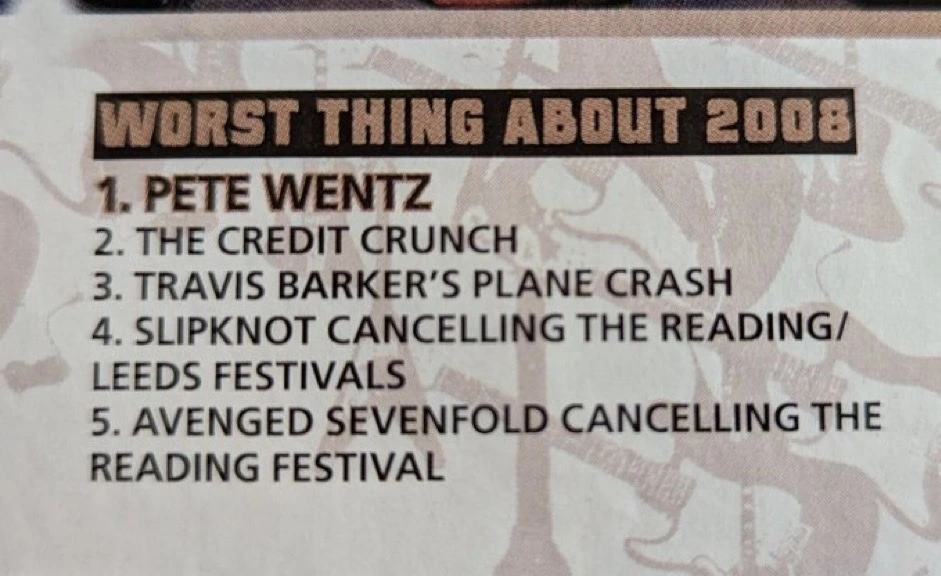
Stump later wrote that Folie was, “our most critically panned and audiences openly hated it. It was also our poorest selling… [We were] nearly booed off stages.” So, in short, Fall Out Boy was kind of toast. And alarm bells were certainly being sounded. That summer, not one, not two, not three, not four, not five, but SIX separate MTV articles (5 of which were by Montgomery) reported that “What a Catch, Donnie” was Fall Out Boy’s “swan song.” And in mid-August, the band claimed they accidentally released the “wrong” version of the video–one with awful CGI. They also claimed corrective measures screwed up their totally-legit plans of releasing future videos set in the “What A Catch” universe. To this, Montgomery rather flatly noted, “Abrupt changes in plans are nothing new for Fall Out Boy.” And just two weeks after the “What a Cat(ch)astrophe,” Stump got arrested. I could go on. But to sum things up in the words of Montgomery, the band had a lot of “bad ideas,” were pulling a lot of “stunt[s],” and “no one was telling them no.”
This isn’t to say everything the band was doing was bad. They did donate the money from the Nokia product placement debacle to fight Prop 8 (which sought to ban gay marriage in California) and “Headfirst Slide into Cooperstown on a Bad Bet” is also one of the greatest Fall Out Boy songs of all time. And whether or not all the drama caused the album’s failure—or was caused by it—is kind of a chicken-or-the-egg thing. And likely, the recession contributed to both. Either way though…things on Planet Pete in the years 2008-2009 were not so good either. In fact, they were pretty bad. Between being busy with a new kid and fronting a then-failing band, it’s no wonder Pete Wentz couldn’t babysit Ryan Ross anymore. Which brings us to the moment you’ve waited twenty pages for… the Panic! at the Disco split.
THE MAIN EVENT (AND ITS LEAD UP)
So, while Fall Out Boy were going up in flames, Panic! embarked on an international tour, followed by a US one sponsored by Honda Civic. During this, the band–assisted by Mark Hoppus and Pete Wentz– raffled off a truly incredible car, which screams “recession” more than anything else I’ve ever seen. This was followed by more dates in Europe, Asia, Australia, and New Zealand. Plus, they also drunkenly judged the “Rock Battle,” producing one of the most iconic “Ryden” moments of all time. Their final tour pre-split was sponsored by Rock Band, and took place throughout the US. Three of the final dates were canceled. (Timeline created by @prettyoddfever.)
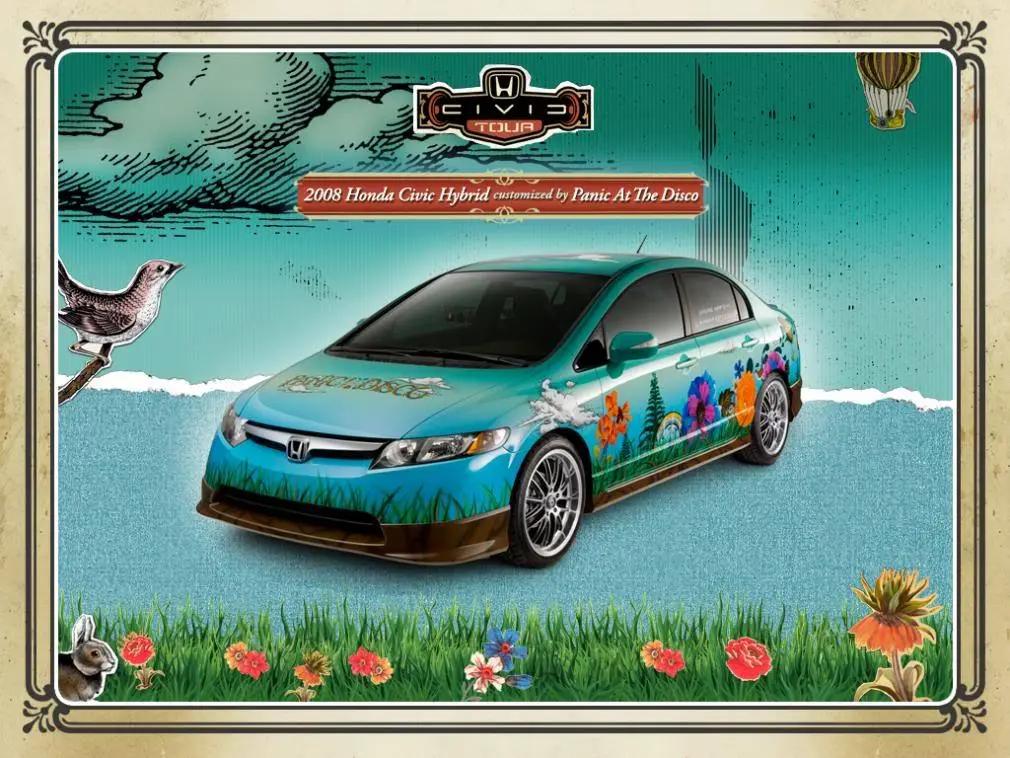
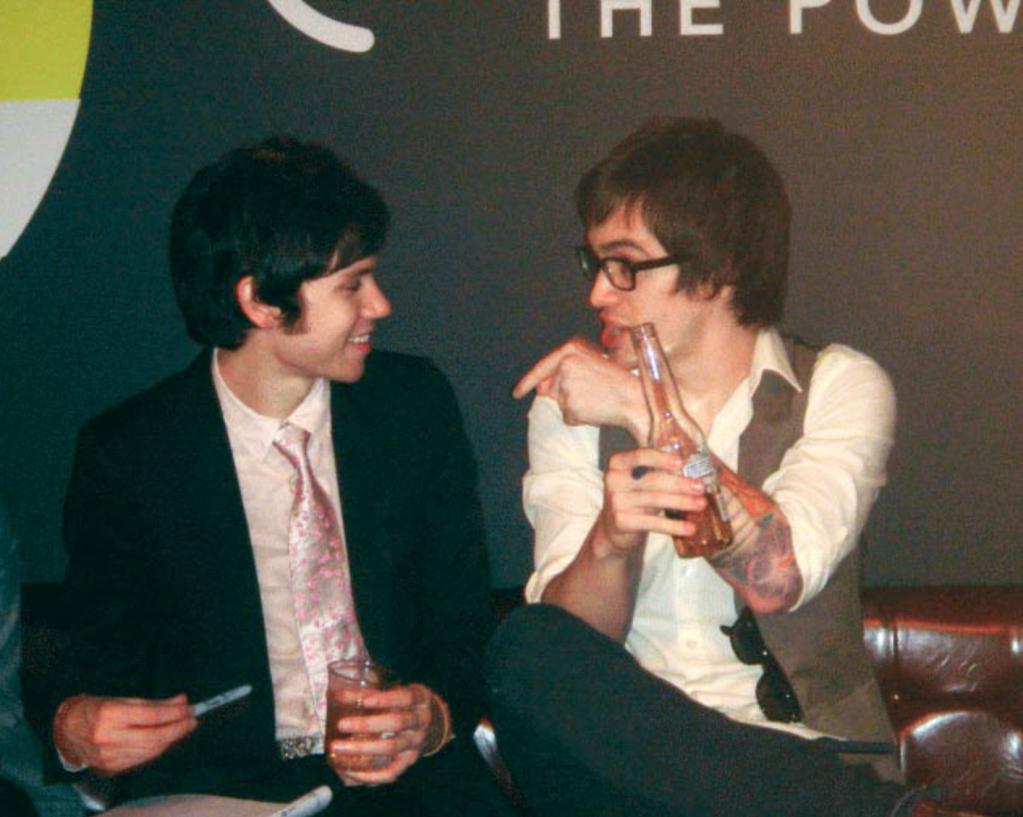
So, as 2008 drew to a close, Panic! seemed to be somewhat okay. At least at first–and at least in public. Ross said that summer they planned to complete album three soon; Urie echoed similar sentiments to Billboard. But one interview from that fall perhaps demonstrates what was actually brewing within the band. In this, Ross dominates the narrative around Panic!’s upcoming plans, while Urie broods and gives clipped answers. Their dress is also telling; while Ross is still wearing stripes and burgundy and Walker has a 70s-appropriate number of buttons undone, Smith and Urie have already begun veering towards the sleek, traditional suits that became their uniform on Vices. As @prettyoddfever extensively broke down, throughout 2008, the two halves of the band had slowly begun to separate.
Then in two late December interviews, Smith said that the band planned to start official work on the album soon–indicating that they were still technically “together.” But when 2009 actually rolled around, Panic!’s decay rapidly accelerated. Frighteningly, just two weeks into the new year, Wentz and his then-wife had dinner with just Urie and Smith. While innocuous at the time, in hindsight, this spelled that death was imminent. However, things were not over yet–in February, Ross allegedly stayed at Urie’s place–which still tracked with their recent plan to work on demos together. Later that same month, Ross seemingly told an interviewer that they were beginning work on their third album, though he was cagey about revealing any details.
However, a few days after the interview, at the end of February, a rather significant “Incident” occurred. This event was (obviously) Ryan Ross, Pete Wentz, and Ashlee Simpson’s wild night out, which was captured in a TMZ video of the trio drunkenly stumbling to a vehicle. In this video, Ross asks Wentz if he is aware he is groping him and not his wife. This “Incident” has been colloquially dubbed by Tumblr user @theblackparadeisdead as “The Threesome of Doom,” due to Panic!’s subsequent rapid implosion. And regardless of what actually happened that night, Panic fell apart very quickly afterwards.
A few weeks after The Incident (on March 13th), Wentz tweeted that he had heard a “new” Panic! song–which we can infer was possibly the “old” version of “New Perspective.” On the 19th, Thomas Dutton of Decaydance band Forgive Durden allegedly also said he heard demos, and apparently added that the album would be out in late 2009. However, two weeks later–and just one month after the “Incident”– Wentz issued a statement via his BlackBerry that he was meeting with Smith and Urie. Alone. And approximately three days after this, rumors officially surfaced that Ryan Ross had begun snorting tons of cocaine. (These rumors were not yet legitimate enough for Montgomery to get involved. That happens later.)
In July, Ross would retroactively discuss this time period with Montgomery. In this phone conversation, Ross said he and Walker had planned to leave for a “few months” prior to the July split, and added, “It became pretty apparent that we all weren’t wanting to go in the same direction.” He said, “[Walker and I] weren’t really talking to [Urie and Smith]…[We] were just living at my house and continuing to write. And we kind of realized we needed to get over not speaking…” During the call, Ross sounds cool, smooth, composed–there’s only a hint of breathiness in his voice that reveals his nerves. He explained that, “We all sat down and pretty much came to the conclusion that the best thing for everyone was to do what we did.”
Though Smith also spoke with Montgomery at the time, he revealed few details, save for the fact that the split had been planned for three or four months. However, in another interview, he elaborated on the content of this conversation more; he said, “It got to a point where Ryan wanted to sing the lyrics that he was writing…[We realized] the best thing was for Ryan to do a project that he was sort of the main songwriter on.” Finally Ross would provide even more details on the split timeline in a 2019 interview: “[We all] kind of decided that these festival shows in Africa were going to be the last ones. We actually had a really nice trip that time, because there was no reason to fight or whatever.”
These “festival shows” were the infamous Cape Town ones, at what was unfortunately dubbed the “My Coke” Festival. And I say “infamous” because for some fucking reason, everyone is convinced Brendon Urie and Ryan Ross tragically broke off their secret love affair and ended Panic! at the Disco in Cape Town. This “fucking reason” is some kind of conjecture involving a line on a Wikipedia page linking to an article insinuating that Ross and Urie had an “intimate relationship.” And this article was written by–you guessed it–James Montgomery of MTV News, who also felt that Ross and Urie shared “a unique dynamic.” But I digress.
Anyway, it’s unclear when exactly the decision to break up Panic! happened; however, on June 27th, Wentz would Tweet that he was listening to “Like a new version of the old [‘New Perspective’].” It is likely that the “old” version of this song was intended for the group to perform as a four-piece. Then later, it was rewritten for just Smith and Urie. Montgomery later wrote that, “According to the band’s publicist, neither Ross or Walker had any involvement in the track.”
While this is somewhat speculative, with all of this in mind, I feel it’s easy to infer that the breakup talk happened between Wentz and Dutton hearing the demos in the second week of March, and the Cape Town shows in Mid-April. After all, if Urie and Ross were supposedly staying together a month prior to Wentz hearing the demos, and Ross had seemingly told an interviewer they were working on a third Panic! record just weeks later, it only makes sense that any music composed during that time was intended for the full band. Of course, it is pretty clear that both Ross/Walker and Urie/Smith were writing music independently, but up until sometime in the second half of March, it seems that they intended whatever they wrote to ultimately be for everyone.
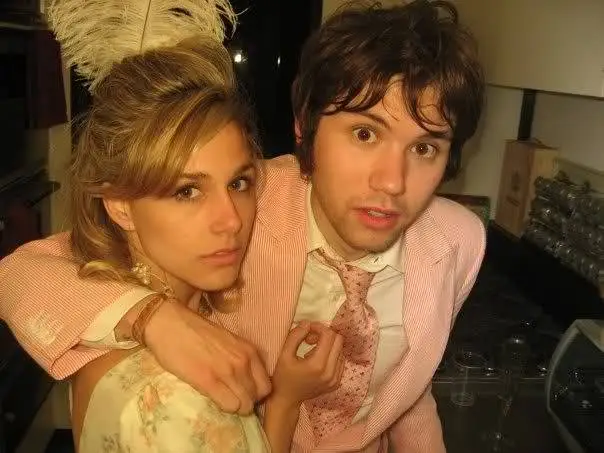
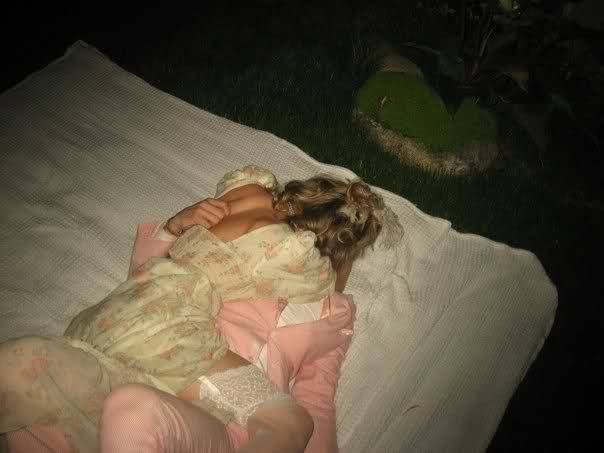
In any event, a few weeks after the Cape Town trip, Ross attended another party; one commenter observed he appeared to be “high as a fucking kite.” Around the same time, he tweeted that he was focused on “…having a good time, all of the time.” Later, on May 18th, Urie and Smith attended the launch party for Blink-182’s summer tour, without Walker or Ross. At this launch party, they kept Panic!’s true future plans under wraps; when Montgomery seemingly asked if they were planning to continue in the “retro” direction of Pretty. Odd., Urie made vague comments about loving The Beatles, which Montgomery interpreted as a ‘Yes.’ However, Urie alluded to his and Smith’s true intentions of taking Panic! in a glossy and future-forward direction, spending most of his time talking about “pop music.”
And as spring rolled into summer, Ross began hanging out with Walker and his new friends more and more, while Urie and Smith continued to get some quality time with Wentz. Then, in June, there was a final follow-up to the original breakup discussion. Ross told Montgomery that a month prior to the split, he and Smith had gotten lunch together and decided, “It might be best if we kind of do our own thing for a while,” to which Smith apparently responded, “I’m glad you said that, because I was going to say the same thing.” (Put a pin in this. It’s coming back soon.) Unsurprisingly, Urie and Walker were not present. And I say “unsurprisingly,” because when the band’s first bassist, Brent Wilson, was kicked out, Montgomery reported that Smith did the dirty work.
Then, late that June, rumors began to circulate that a new Panic! single entitled “New Perspective” would be released in mid-August. At around the same time, Wentz apparently posted a “jam sesh” between himself, his wife, Urie, and Smith. Subsequently, in the first week of July, Wentz tweeted a rather excessive three times that he was listening to new Panic! demos. Additionally, both Wentz and Urie were making thinly veiled references to everything behind the scenes. Wentz stated he was “Rally[ing] the troops” and Urie said, “Ride the tiger. You can see his stripes but you know he’s clean” and implied they were, “men working on the chain gang.”
The Panic! at the Disco split was officially announced on July 6th, 2009. According to a statement posted to the Panic! website, Ryan Ross and Jon Walker were “embark[ing] on a musical excursion of their own,” because the two halves of the band had “creatively evolved in different directions.” The top part of the statement–which pretty much just explained this–was signed “Ryan and Jon.” However, a second paragraph was appended to the statement, one that remained unsigned. This portion added a few more details, including, “Brendon and Spencer will continue on as Panic at the Disco.” It is not clear who wrote this part, but it was likely someone from the band’s management, as Urie and Smith posted their own statement later. This statement again reiterated that “Panic at The Disco is alive and very very well.”
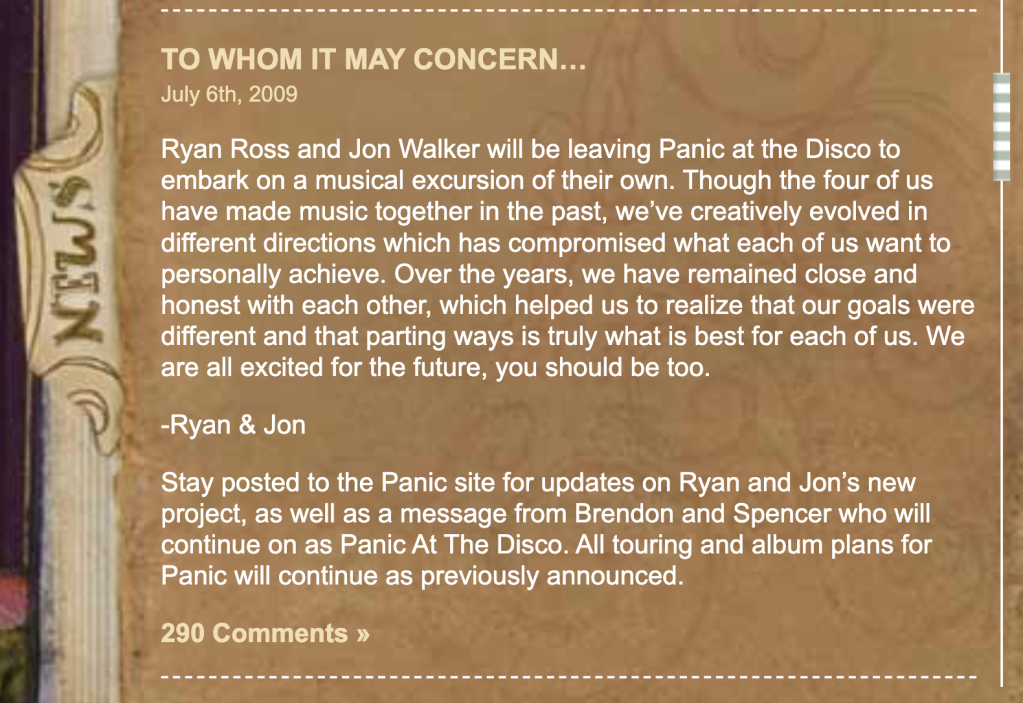
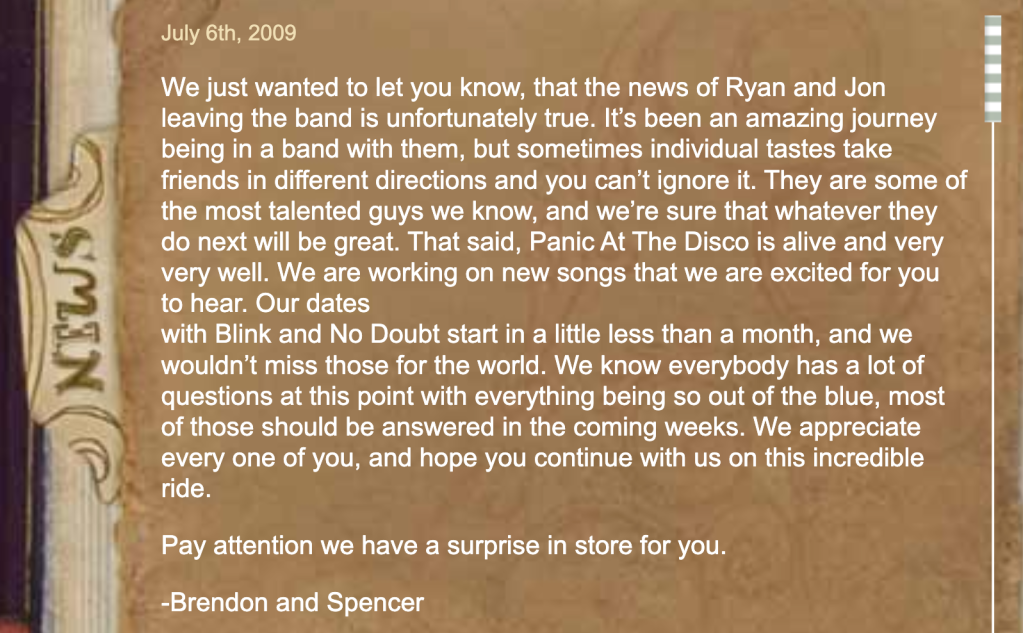
Following the formal announcement of the band’s split, Ross tweeted a link to The Beatles’ “I’m So Tired.” Some of the lyrics read, “I don’t know what to do…I wonder, should I call you? But I know what you would do…I’m so tired, I’m feeling so upset…” The next day, Wentz rather snottily tweeted that Panic! hadn’t “broken up,” and that he was meeting with Smith and Urie (yet again) later. Not long thereafter, Urie and Wentz shared a tell-tale Twitter exchange about the film Amadeus, which concerns the tumultuous relationship between Amadeus Mozart and Antonio Salieri.
FIVE QUESTIONS REMAIN
However, following their usual MO, drama, mystique, and uh, conflicting perspectives surround this chapter of Panic! drama. Throughout the month of July, said drama and mystique primarily surrounded five main issues. 1) Whether or not Ryan Ross was snorting tons of cocaine 2) The exact cause and terms of the Panic! breakup 3) The state of the relationship between Pete Wentz and Ryan Ross 4) The battle between Panic!’s post-split debut “New Perspective,” and The Young Veins’ first single of “Change” and 5) Whether or not Ross was aware Smith and Urie planned to keep the Panic! name. For the sake of (attempted) simplicity, I will explore these issues one at a time. They are roughly chronological, but there is quite a bit of overlap, too.
Issue #1: The cocaine
Immediately following Ross and Walker’s departure from Panic!, it became uncomfortably clear that Ross was not in a good place. These rumors had been a long time coming–overprotective fans had been expressing disgust for Ross’ pivot towards partying since at least 2007. Likewise, Montgomery eventually claimed Ross had long “earned a certain, uh, reputation among those in the industry.” However, this particular incident was so severe it brought this all out into the open, and caused many to doubt that Ross’ decision to “embark” with Walker was one made with sound mind.



On July 8th, just two days after the split, a photo of Ryan Ross, a pile of girls, and “one very prominently placed bowl of what appears to be cocaine” hit LiveJournal. During the ensuing fallout, Ross and Walker did not seem to be taking the incident seriously. Ross tweeted that it was his “evil twin” in the photo, and Walker merely stated, “Smooth.” Urie, however, said, “Real love amounts to withholding the truth, even when you’re offered the perfect opportunity to hurt someone’s feelings.” Meanwhile, Ross’ ex Keltie Colleen tweeted, “There’s a fine, fine line between a fairy tale, and a lie.”
And, as you may remember, this was not the first time rumors that Ross had a coke habit made the rounds on message boards. Three months prior, photos of Ross at a party circulated–including one where he had white powder smeared in his scruff. (To clarify, these were not the pink suit photos.) Additionally, on June 6th, he allegedly tweeted, “I’m so cloaked up right now” in the middle of the night. Finally, Colleen later claimed that towards the end of their relationship that winter, Ross had begun hanging out more and more with “a guy who had pockets full of powder.”
And according to Montgomery, it was not merely the cocaine that was a PR problem; the question of whether or not “the ladies [were] of age” quickly gripped gossip forums. Speaking with Montgomery over the phone, Ross claimed that he “didn’t even really know [the cocaine] was there.” He also identified one of the girls as The Like’s Z Berg, who is older than Ross; the other girls pictured were her similarly-aged friends.
And though Montgomery published Ross’ uh, questionable cover story, he did not drop the issue. He subsequently referred to Ross as “Scarface-in-training,” and later wrote that Ross’ grand exit from Panic! had taken place “posed precariously close to a plate of well-manicured cocaine in a now-infamous photo.”
And in 2019, Ross would publicly share that in the years surrounding his departure from Panic!, he had a “bit of a mental breakdown” that ultimately landed him in Alcoholics Anonymous. In short, regardless of what he was claiming at the time, it certainly appeared that Ross had–to borrow a lyric of Wentz’s–gotten “stuck on classic coke.”
Issue #2: The terms of the Panic! Breakup
The second–and perhaps most prominent–question surrounding the Panic! breakup concerns whether or not the band split on sour terms. Montgomery reported in 2011 that, “there has been speculation that any number of ‘Behind the Music’-type maladies (drugs, money, jealousy … you name it) had led to the [Panic!] split.” However, the band adamantly “den[ied there was any drama involved” in their decision to break up. Apparently, the breakup was nothing more than “those ol’ creative differences.” Urie often claimed things like, “any arguments we had were just purely about music and there wasn’t any weird tension,” and “the only reason [Ross and Walker] left was because they wanted to do something different musically.” He often stated that the split was “totally amicable, and there was no animosity,” and that it felt “natural.”
However, in 2011, the band changed their tune. Speaking with Montgomery on MTV, Smith admitted that more than musical issues led to the split. Specifically, towards the end of Pretty. Odd’s record cycle, “the stuff that was kind of happening with the relationships off the stage was starting to kind of affect” Panic!’s live performances.
Smith’s commentary is perhaps sharply exemplified in Panic’s taped performance on December 2nd, 2008, during their Pretty. Odd. record cycle. This was released as an album, under the name Live in Chicago. Urie seems incapable of taking the performance seriously, periodically breaking into ear-splitting wails and grunts. Ross also sounds unnatural, speaking in a strange, unplaceable affectation that may be “faux-British”. And true to their mission of ditching the “synth crap,” the band had also foregone any electronic elements, instead twisting tracks like “Time to Dance” into acoustic numbers. Putting all of this together, the performance just doesn’t sound very good, especially compared to their legendary Live in Denver concert. It’s pretty easy to see what Smith is talking about.
Anyway, Smith went on to tell Montgomery that the band was not always “on the best terms” with one another. Obviously, this indicated that it was not mere musical differences that led to the split, but also interpersonal conflict. Throughout the duration of this conversation, Urie seemed so frustrated with Montgomery’s line of questioning that he was–according to Tumblr user @your-sinclair– “exploding [Montgomery]’s brain with his mind.” When he spoke for the first time, Urie emphasized that they had “a really great personal relationship,” with their new backing band, implying this was missing from their relationship with Ross and Walker.
(These “new guys” consisted of touring guitarist Ian Crawford and then-touring bassist Dallon Weekes. Crawford has stated that during his time in Panic!, he was treated [by Urie’s longtime bodyguard Zack Hall] in ways that were “disgusting and belittling” and that it is “very hard to talk about.” Weekes has also repeatedly insinuated that he was bullied during his time in Panic!. He specified that on one occasion, Urie shot him in the hand with an Airsoft gun while he was performing, and “I had to pretend it was funny so I could keep my job.” [See: “The Curious Case of Brent Wilson…”].)
Additionally, Walker would eventually sing a similar tune as Smith–albeit a far more explicit one. In a 2010 interview, he said, “There were differences on more than a creative level. I think the idea of what it was like to be in a band and be a musician was completely different between all of us.” When asked to elaborate, he added that he meant they disagreed on, “The way you conduct your life, and your morals, and your values, and what’s important to you.” So, it seemed despite the band’s insistence that the split was only about music, that was not the full story. Whatever had been going on between Panic! was more than musical–it got personal.
Issue #3: Pete and Ryan
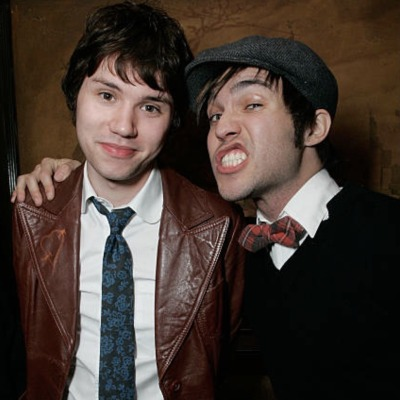
And there was not just drama between the original members of Panic!. There was–potentially–drama between Ryan Ross and Pete Wentz, too. On July 13th, Montgomery infamously wrote that, “[Ross] wishes Urie and Smith well and still considers them both to be his friends. The same cannot be said, however, about his former boss — Decaydance Records honcho / Fall Out Boy bassist Pete Wentz — who seems to have clearly aligned himself with the Urie/Smith camp following the split.”
To elaborate on this discussion further, Ross told Montgomery he and Wentz hadn’t spoken “since this happened.” Wentz had allegedly called Ross, and Ross had “been meaning to call him back.” Ross stated he was unsure if Wentz was going to sign his next band, but that “I’ll have to talk to him.”
Seemingly on the subject of Urie and Smith’s standing with Wentz, Ross said, “From what’s happening online, I think he’s … he’s written a lot about them. I don’t know if they’re working together on their stuff.” Based on Ross’ phrasing, it does seem like Montgomery directly asked if Wentz had picked a side. Ross ended his statement with, “It’s been awhile since [Wentz and I have] spoken. It’s strange. It’s kind of weird.” Wentz supposedly did not respond to Montgomery’s requests for comment. Despite this, Montgomery concluded that “Ross’ relationship with Wentz might be finished.” This seems like quite the conclusion to jump to, as Wentz had not spoken at all on the matter and Ross was merely ambiguous.
Wentz, however, told Popeater a very different story. He claimed that things between him and Ross were fine, and that he had offered to sign Ross to Decaydance. Conveniently, he failed to specify how Ross responded, and even more conveniently implied that he “d[id]n’t know” if Atlantic Records would’ve been okay with this. Wentz also added that he had spoken to Ross on the phone “the other day,” and insisted, “Everyone likes the controversy, everyone likes for it to be big and weird, and honestly, it’s not like that.” This interview was conducted in November 2009.
Four years later, in a series of unethically leaked text messages, Ross allegedly told a story more aligned with what Montgomery originally wrote in July 2009: “Pete thinks I’m a has been… I thought we were friends. Instead he acted like I never existed… Cold.” It’s unclear what actually happened here, and which story is the truth. After all, Montgomery— a notorious “drama queen”— apparently “never let a little thing like ‘irrefutable facts’ get in the way” of his stories about Panic! at the Disco. Plus, while writing this, I couldn’t help but notice he tended to play a little fast and loose with quotes. So this article could just be more creative writing. However, Montgomery also wrote that his status as Wentz’s BFF “basically br[oke] every guideline in the ‘Ethical Journalist’ handbook.”
In short, it’s possible Montgomery knew more than he was letting on. Especially considering that during the prior summer, Wentz and Montgomery were doing their whole beach cabana thing. So, we can reasonably conclude they were hanging out a lot, right around the time that Panic! started going downhill–and specifically, the period of time when Walker and Ross were making snotty comments in interviews referring to FOB as their “uncle in rehab” and saying they didn’t look up to Wentz anymore. Taken in context, all of this information certainly raises questions.
Issue #4: The fight over the “first single”
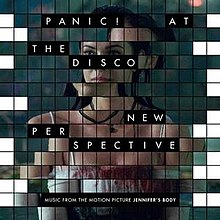
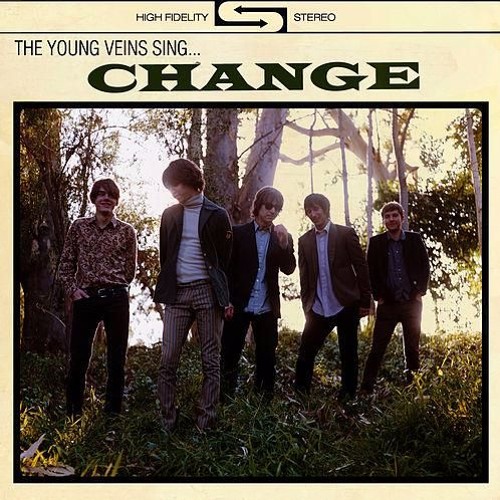
But regardless of who was still friends with who, the weeks following Panic!’s split quickly devolved into a full-blown “battle of the bands” between Urie/Smith and Ross/Walker. One could even call it a goddamn arms race. But, as Wentz said in the song he named after Montgomery: “The bulls are sedated, and this fight’s fixed.”
Specifically, this spat was over who got to deliver Panic! fans the first post-split musical statement. Would it be The Young Veins’ “Change,” a track about karma and how some people “just stay the same”? Or would it be Panic!’s “New Perspective,” a euphoric ode to newfound freedom? Denis Simms of Review, Rinse, Repeat speculated that “Change” was “an obvious slur towards [Ross and Walker’s] old bandmates.” Meanwhile, Montgomery focused on the “sexy lyrics” of “New Perspective;” it featured the line “Go down on me” as well as talk of “salty waves… crash[ing] against skin” and “heavy loads.” But regardless of various interpretations of the lyrical content, the road to the double release of the tracks was a dramatic one.
Montgomery (more or less) reported that Urie and Smith were always planning to be first to the finish line, and Ross and Walker engaged in an embarrassing last-minute scramble to ride the coattails of Panic!’s hard-earned hype. And while this may be–like many of the things Montgomery implied about Panic!–true, it also was a little more complicated than that.
On July 10th, just four days after the split, Smith posted a statement to Panic!’s website stating that, among other things, “Check back soon for more updates and our new single ‘New Perspective.’” You may recall that in late June of 2009– just about a week and a half prior to the official split announcement– rumors circulated that a new Panic! track entitled “New Perspective” would be debuting on August 17th.
Then, on July 15th, Montgomery ran a story concerning Ross’ musical plans post-Panic!. He wrote that, “Ross and Walker are preparing to release their first-ever single, a tune they’re tentatively calling ‘Change.’” However, the fact that Ross was still under contract with Fueled by Ramen complicated their plans. Ross said, “We’re not sure how this will all play out… We’re trying to figure out whether or not they’re gonna kind of end the contract or not.” So, Ross—and, by extension, his new band’s first single—were caught in “legal limbo.”
Ross continued, “It doesn’t seem like [Decaydance] is going to be the right place for [my new] stuff, and I think everybody knows that, on both sides, [FBR President] John Janick included. It’s just been taking some time to get worked out.” For context on who Janick is, and how the business stuff relates to emo band conspiracy theories, here we go.
As you might remember from my introduction to Wentz’s favorite henchman, in a 2010 interview, Wentz revealed some inner machinations of Decaydance, and the details of some of the ways Panic! gummed up the works. Wentz spent a good portion of this talking about how, “I do [my label] with John from Fueled By Ramen… because I’m the idea guy, and he’s the business guy.” My point being, John Janick wasn’t just some distant, faceless suit from a corporate label that Ross needed to take care of technicalities with before Wentz could let him go. He was Wentz’s friend and business partner. And in fact, if you listen to everything Wentz had to say, one might even suggest that Montgomery, Wentz, and Janick may have been in what might be referred to as “cahoots,” something that I imagine is not really allowed.
But wild speculation aside, though Montgomery had just identified Janick as the “FBR President,” Janick was also a part of Decaydance. This meant that this was likely a Decaydance issue, not a Fueled By Ramen issue. So Wentz was likely also implicated in whatever issues Ross faced, and might’ve been part of the “everyone” who agreed that Ross needed to leave.
Anyway, in spite of this “very special” (and very hypothetical) legal issue, Ross insisted that, “‘Change’ will be heard soon.” And while this interview was posted on the 15th, it seemed that Ross and Montgomery had spoken on the 13th. Besides, Ross had seemingly already been caught up in exit negotiations for some time–and presumably, these negotiations began before Smith and Urie teased “New Perspective”’s impending release on the 10th. Then, on July 21st, Smith and Urie announced on their website that “New Perspective” would be coming out seven days later, on July 28th. This was nearly three weeks earlier than rumors had initially indicated.
One week later, Montgomery reported that very late on the 27th, The Young Veins had unexpectedly told him their new band name via email, and then they frantically dropped their first single in the morning–the same day as “New Perspective.” This seemed, to say the least, a little abrupt and ill-prepared. Seemingly, the move was to try and take attention away from Smith and Urie; Montgomery reported that, “Panic! had announced the date in advance; the Veins, well, didn’t” and accused Ross of “attempting to steal [Panic!’s] thunder.”

But it seems Panic! were also guilty of trying to beat their ex-bandmates to the punch. Despite the fact that the single was supposed to come out on the 28th—and Montgomery had reported this occurred—fans mysteriously began streaming the song on Panic!’s MySpace page the night prior. Surrounding the double-release, Wentz also tweeted about “New Perspective” three times, and gushed that Brendon Urie was “one of the people I’d love to hear from most.” He didn’t care to mention The Young Veins; I wasn’t able to find much from Montgomery, either.
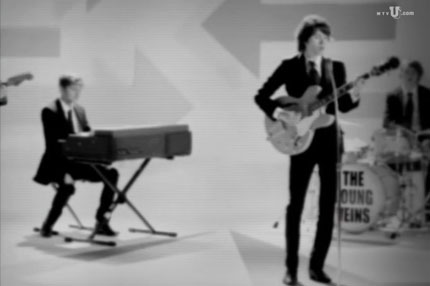
So, to conclude, while it did appear that The Young Veins weren’t quite ready to debut their single, and definitely seemed to be rushing into things half-cocked, Panic! weren’t as above-it-all as Montgomery made them out to be. In fact, they might’ve even bumped up the release date of “New Perspective” by almost three weeks (and then an extra twelve hours), just to ensure they were locked and loaded before Ross could even finish extracting himself from Decaydance’s web. And, it even seems Ross had begun planning to put out ‘Change’ a little earlier than Wentz’s bestie implied.
Plus, for as ill-prepared as The Young Veins were, Panic! had the massive jump start of sticking with their former team, while Ross was starting fresh. And while “New Perspective” is a way better song than “Change,” and is one of the greatest Panic! songs of all time–Smith and Urie did have one more big advantage. They got to keep the name.
Issue #5: The name
As with everything that has ever happened with Panic! at the Disco ever, no one seems to be on the same page over this very important aspect of the split. In a recent emo history book, statements that “Ryan left Panic!” were leveraged. This would imply that Ross departed alone, and knew exactly what he was signing up for. Putting aside the fact that Walker also “left” Panic! (making this a “split” and not merely “Ryan leaving”), in 2011, magazines–specifically Alt Press– were printing a very different story.
Ross told the publication that upon finding out that Smith and Urie were continuing to perform under the Panic! name, “I was shocked…[We] were just under the assumption that we’d all start fresh. Maybe in some way, it was like they were hiding it from us or something. It was just like, ‘Wow, we’re doing this new thing from the ground up and you guys are gonna go play the songs we wrote?’” Ross reiterated the “shock” sentiment again in an interview with NME, and a third time in a separate interview with The Chicago Music Industry Examiner. In this interview, he added, “I figured doing your own thing meant doing your own thing.” Walker also said to Alt Press that Smith and Urie’s decision went “hand in hand with their mentality and work ethic and their idea of actually being in a band.” Then, he added, “They would rather play someone else’s songs than try to write their own.”
Regarding this issue, Ross also told Alt Press something that initially appears to be false. He said, “We didn’t know anything about [Smith and Urie] carrying on [as Panic!] until they were on tour.” In fact, Panic! posted to their website that Smith and Urie were continuing on under the Panic! name on July 6th, the very same day that Ross and Walker announced their departure. The Blink tour did not begin until July 23rd. This, of course, casts doubt on the entire story that Walker and Ross are telling here.
What Ross is saying seems like a blatant lie, and might lead some to wonder if perhaps they simply regretted their decision to split from a multi-platinum rock outfit, and re-invented history out of regret. However, things are a little more nuanced. Smith and Urie played River Riot alongside Blink-182 and FOB on July 9th, just three days after the split, and played another show with just FOB days later. While the tour had not strictly begun, the remaining members of Panic! did head out on the road with FOB and Blink immediately post-split. And while the split was publicly announced on the 6th, the quartet had privately made up their minds much earlier.
So, this takes us back to that final breakup conversation that Ross and Smith had in June. (Remember when I said to put a pin in that?) This came presumably two months after the full band “decided that [the Cape Town shows in April] were going to be the last ones.” Anyway, you may recall that Ross told Montgomery that during this talk, he and Smith had hashed out the terms of the breakup. Ross apparently said, “It might be best if we kind of do our own thing for a while,” and Smith allegedly replied, “I’m glad you said that, because I was going to say the same thing.”
Obviously, this is A) Hearsay and B) A horrible game of telephone. But assuming this version of the discussion is accurate, it is certainly open to interpretation. Who is “we”? Does that mean everyone? Or just Ross and Walker? By “the same thing,” did Smith mean he and Urie wanted to “do [their] own thing” too? Or that he simply wanted to throw Ross and Walker out of Panic!? This ambiguity might lead one to believe this was an initial misunderstanding. After all, a longtime Panic! fan claimed that Panic!’s management said in May 2009 that “Ryan didn’t know what was going on most of the time, anyways.”
However, the context of this alleged comment makes this a bit more nuanced. This fan said that when Panic! announced a show with No Doubt later that summer, Ross and Walker tweeted that they’d been “left out of a decision, again.” If this is true, then it would seem to support the idea that during the original, pre-Cape Town breakup convo, Ross was not under the impression that Panic! would continue on without him.
Additionally, it seems that Urie and Ross–as much as they butted heads on seemingly everything–are actually in agreement on this. Urie told Music Choice, “When Ryan and Jon had left, there was a small amount of time that stuff was kind of up in the air of whether or not we wanted to keep the name.” However, Smith contradicted this; in a 2009 interview, he stated that during their discussion, they all agreed he and Urie would continue on as Panic!. In 2011, he also insisted to Montgomery that there was “never any doubt that [Brendon and I] were going to carry on as Panic!.”
But it’s worth noting that Smith told at least one other little white lie in that last interview. He claimed that Ross and Walker’s replacements–then Ian Crawford and Dallon Weekes–had been chosen because they were “friends.” Weekes, however, has said that he had “actually had never met [Urie and Smith],” and instead received an email from John Janick asking him to audition prior to the Blink-182 tour. This inconsistency casts doubt over Smith’s story–and, besides, his version does seem to be a bit outvoted by Walker, Ross, and Urie.
“PANIC! IS ALIVE AND VERY, VERY WELL”
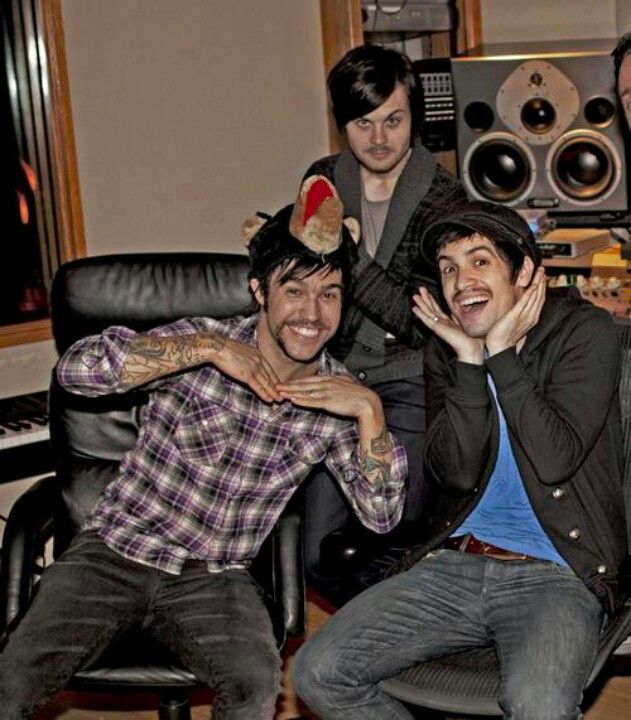
And so, Urie and Smith returned to the studio under the same name as always—and unlike Ross and Walker, they were backed by some pretty serious muscle. This came in the form of Butch Walker, who Rolling Stone called, “one of America’s best singer-songwriters;” Goldfinger frontman John Feldmann; nine-time Grammy winner Greg Kurstin; and, of course, Pete Wentz.
First, though, it’s worth noting there is a pervasive perception within bandom that Vices and Virtues is only good because it was built off the uncredited labor of Ross and then-touring bassist Dallon Weekes. But things aren’t really that simple. Ross is only credited on one track–”Nearly Witches (Ever Since We Met),” and at the time, Weekes said that “This is totally a Brendon/Spencer record.” But even if Urie and Smith didn’t rely on Ross and Weekes; they still had plenty of help. And the team they picked is certainly interesting.
Prior to securing Walker and Feldmann, Urie and Smith had tried to bag Blink-182’s Mark Hoppus as the producer for Vices and Virtues. For those who are not aware, the only musician Ross obsessed over harder than Wentz was Hoppus. Panic! began as a Blink-182 cover band, and Ross’ personal email address was blinkexists@aol.com; Wentz himself told Hoppus that Panic! began as a bunch of “little Blink clones,” and referred to Panic! as “[Ryan’s] favorite band of all time.”
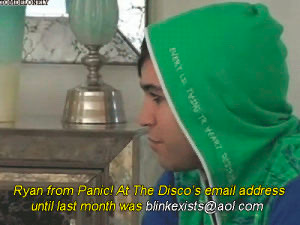
And what better way to crush Ross than have his personal god say how much better Panic! is without him. In an interview with MTV News, Hoppus told Montgomery that he had committed to producing at least one track, as the demos he heard were “really strong” and he could tell the songs were going to be “gigantic.” However, it appeared this fell through. So, Urie and Smith ultimately turned to Walker and Feldmann to produce Vices.
Walker is a natural fit; at the time, he had recently provided guest vocals and did production work on Fall Out Boy’s 2007 album Infinity on High, as well as appearing in the music video for “This Ain’t a Scene…” Additionally, in 2008, he collaborated with Michael Chislett of The Academy Is… (also on Decaydance) under the name 1969. Production and songwriting chops aside, it’s pretty obvious why Panic would choose Walker.
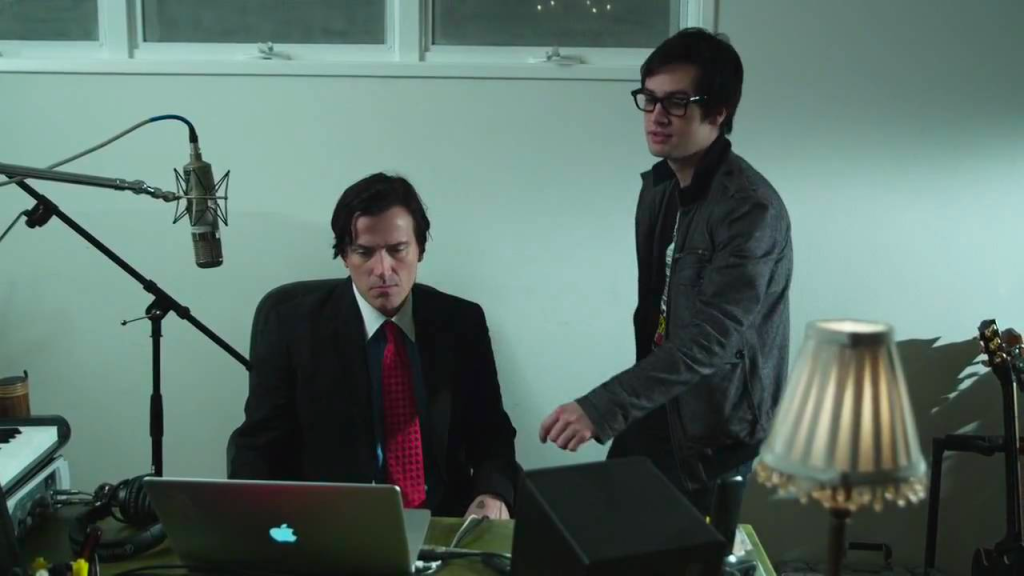
Feldmann, however, is a more interesting decision; notably, his production catalog includes Mest. And Feldmann didn’t just produce for Mest. The story between Mest and John Feldmann strikingly parallels that of Pete Wentz and Panic! at the Disco. Mest–a band composed entirely of inexperienced teenagers– sent demos to Feldmann, which ultimately led to them getting signed. Exactly like how Panic! had won the affections of Wentz (and a subsequent record deal) when their careers were still in infancy.

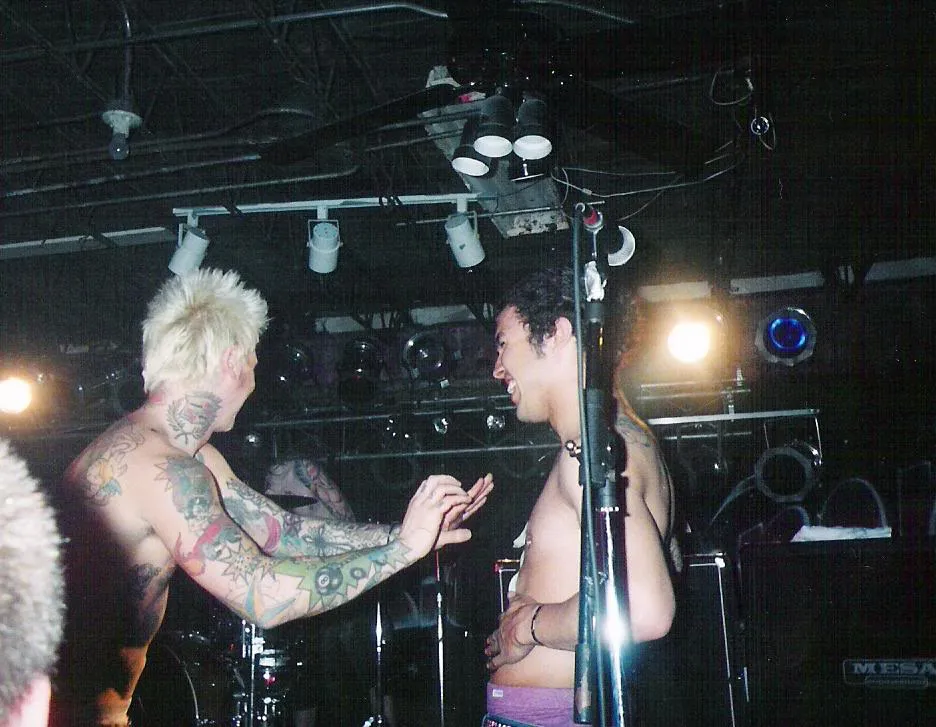
And Mest was not just any band. Ryan Ross hated Mest more than anything in the world. He spent much of his time on falloutboylove griping about how “effing rediculous” and “terrible” Mest and their fangirls were. To Ross, Mest and their fans embodied everything wrong with modern music–you know, “if this scene were a parish, you’d all be condemned.” It certainly seems like Urie and Smith’s decision to bring Feldmann on board for Vices is not coincidental; it may have been intended to send a very specific message.
In conclusion, when Urie and Smith were unable to convince Ryan’s childhood hero to produce the next Panic! record, they turned to a different strategy. And Feldmann was the perfect second choice. If Urie and Smith couldn’t rub in Ross’ face that his hero was helping Panic! thrive without him, they would do the next best thing. In the ultimate display of their newfound creative control, they got John Feldmann–the man who engineered the career of the band Ross despised most–behind the dials for Vices and Virtues. And while Wentz insists that the Panic! split was amicable, and that anyone who thinks there was some “big controversy” is just looking for drama, these choices certainly seem personal. Panic! wasn’t Ryan’s brainchild anymore, and Smith and Urie were going to make sure he understood that.
And this wasn’t the only sucker punch Urie and Smith had up their sleeves. Though Urie smugly told Artisan News that going into writing Vices and Virtues they “didn’t have any ideas [from] Ryan or Jon sitting around,” this wasn’t strictly true. You may recall that in the section titled “Cricket and Clover,” I mentioned that in a 2008 interview with Alt Press, Ross said each track on Cricket was originally intended to embody one of the seven deadly sins–otherwise known as “vices.”
This is a concept that likely sounds familiar to many Panic! fans; specifically, because of Vices and Virtues. Urie told Montgomery that the record got its name because “Virtues or vices are represented in every song.” However, he did not mention the idea’s prior history within the group; instead, he said noticing this through-line was mere “luck.” However, back in the original 2008 interview, Smith rather ominously added, “The idea is still good. It just wasn’t the right time to do it.” Obviously, this implied Panic! had earmarked that whole seven deadly sins thing for the future.
So while the remaining half of Panic! may not have stolen Ross’ music or lyrics, the bandom mythos that Vices was carried by Ross’ earlier contributions does have a tiny seed of truth in it. Urie and Smith had, in fact, “borrowed” a core idea from Panic!’s scrapped LP to use as the thesis of Vices and Virtues, and, as I covered earlier, Ross was the primary driver behind the “concept” part of the concept album. Likewise, the track that Ross gets writing credits on, AKA “Nearly Witches,” was also originally intended for the cabin album.
So, it didn’t just seem that Smith and Urie got to keep the name, or the label, or the managers, or Wentz’s connections, or MTV’s favor. It also seemed they got to keep the early material. And, as Ross has stated he wasn’t cool with Panic! keeping the name, this kind of begs the question–was Ryan okay with all of this? And was Ryan okay even, you know, in general?
RYAN ROSS TAKES A VACATION: PART ONE
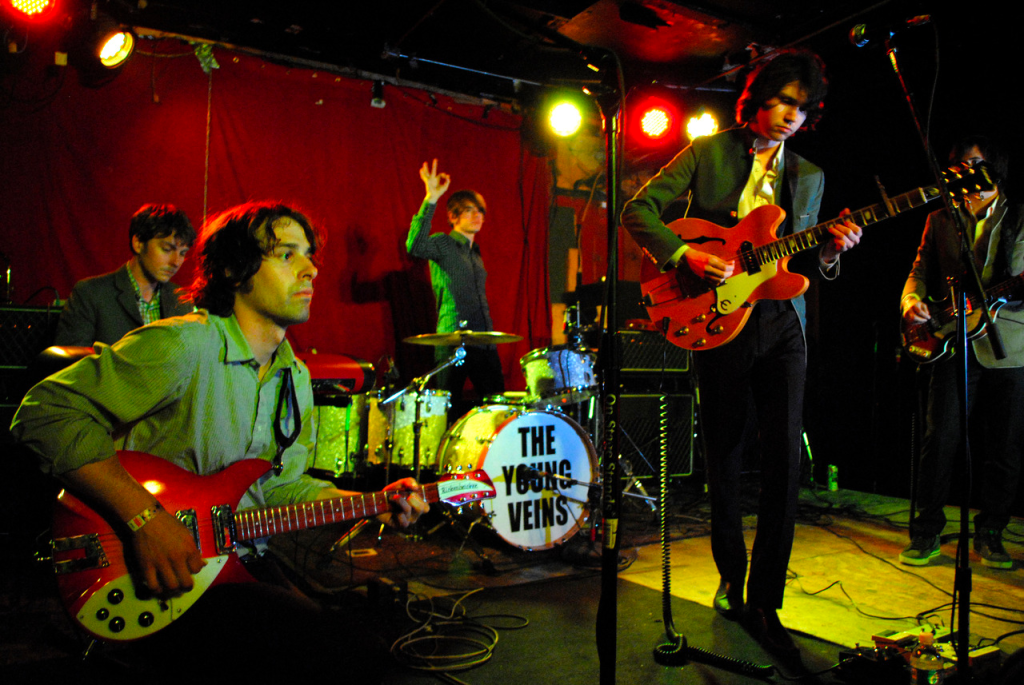
The short answer is no. But more on that later. At about the same time Urie and Smith began writing Vices, Ross and Walker began creating their only post-split album. While Montgomery commented that Ross generally “made a point of working as unofficially as possible,” the Young Veins did manage to put out their record almost a year before Panic! at the Disco. Reportedly, “half” of this album–titled Take a Vacation!–was originally intended to be for Panic!. In an interview with MTV, Ross—greasy-haired, glassy-eyed, jittering, talking in circles—desperately plead with Montgomery that his new band wasn’t trying to be “cooler than cool” and that they were just writing “pop songs.” In fact, Ross thought he was writing “better pop songs” than he ever had while in Panic!.
While Urie and Smith would later tenderly labor over Vices for well over a year, Take a Vacation! was finished by mid-October of 2009, just three months after the Panic! split. (Curiously though, it would not be released for another 10 months, causing one to wonder what all the rush was about.) Montgomery wrote that the album was recorded, “on the fly, on the cheap and practically on the lam,” and that, “the songs pop and hiss and are totally free of today’s studio sheen.” Ross also told Montgomery that at one point during the album’s recording, he had gotten so drunk (or high), that “To be honest, I don’t remember much.”
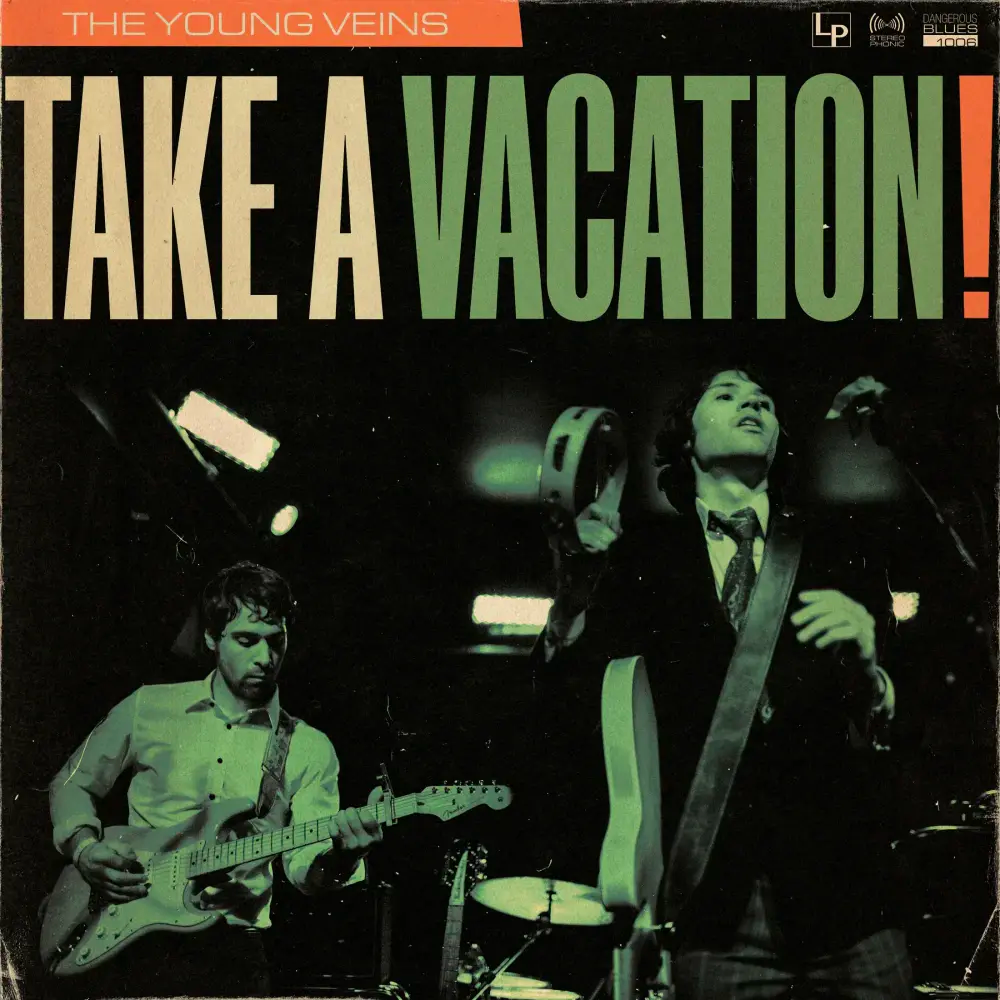
When Take a Vacation! finally came out the following summer, the response was rather lackluster. This was something Montgomery had anticipated, writing that the record had “positively no chance of getting played on modern rock radio” and that it was “made for…a very select group of retro-rock fanatics.” It wasn’t all too bad, though. MTV was airing the video for “Change,” and reviewers praised the album’s sincerity. Montgomery also wrote that Take a Vacation was “everything I could ask for in a rock record, and then some,” and likened the album to a “strummy, sunny, really excellent…. psychedelic reel.”
However, the band only peaked at #40 on the Heatseekers chart, and almost no one showed up to the album’s Angels & Kings listening party (the place would later be “jam-packed” when Vices debuted). Some critics were exceptionally harsh; Review, Rinse, Repeat called Take a Vacation! “futile and vain,” “lethargic and uninspired,” and “moton[ous] and unimaginative.” Longtime Panic! fan @prettyoddfever also stated that during this time period, journalists–particularly Montgomery–spoke of Ross “condescending[ly]” and “like he was an incompetent child who was falling apart.”
In any case, it seemed Ross and Walker had “sabotag[ed] their teen success.” And, given all of this–in combination with Panic!’s continued glory– one might wonder how Ross was handling the split. Looking at the content of Take a Vacation!, however, gives us some hints at his initial feelings. One reviewer said he felt that “Change” was “an obvious slur” towards Urie and Smith, and dismissed the rest of the album as merely odes to girls and “excessively riddled with clichés.” However, I think this reading is a bit superficial.
From his very beginning on Fever–and, as I will explore later, on Pretty. Odd.– Ross’ lyrics always slathered his heart in a thick veneer of fantasy. “I Constantly Thank God for Esteban,” for example, cloaked Ross’ vitriol towards vapid fangirls within a vision of a preacher pounding a pulpit; similarly, he told Montgomery that “But it’s Better If You Do,” was “not completely fiction,” explaining that he mixed his real strip-club experience with an imagined character of a “fat business guy with a cigar.” And the same is likely true with The Young Veins.
One interpretation of Take a Vacation! is that Ross–as he’d always done before– concealed his feelings within a daydream. This time, though, Ross’ fictional world isn’t a Palahniuk novel or a forest fairy tale. It’s the salt-soaked, simplistic, and wistful “naive pop songs” you would expect to hear crooning through a car stereo in 1962. As such, this is the world that Ross expresses himself through. And, of course, the biggest thing going on in Ross’ life in the late summer of 2009 was the aftermath of the split. Not everything on the album is like this, of course. Three tracks however, feel obvious–and I will outline each one. These would be “Lie to the Truth,” “Defiance,” and “Dangerous Blues.”
“Lie to the Truth”
The first track we will look at is, “Lie to the Truth,” which explores a love long gone cold, as the narrator’s muse is hung up on another guy. In Ross’ own words, the song is about “a bad relationship,” and is the “saddest song” on the record. Though, when pressed, he clarified he meant “getting screwed around by a girl.” However, it does not take much subtextual analysis to infer that the song may be exploring Ross’ feelings regarding his divorce from Urie and Smith. And indeed, Ross did liken Panic!’s split to “breaking up with a girlfriend.”
Ross begins, “When I started out writing you this song, I was heels over head in love.” Likewise, Ross and Walker had begun writing many Take a Vacation! tracks while on tour with Panic! for Pretty. Odd., a era in which Ross claimed they were all, “in pretty good places,” and Urie echoed that they were “really focused on what made us happy.” Given this context, this may be a track that Ross and Walker originally intended for Panic!–and later reworked. And in the second verse, Ross says that someone once said, “the best part about you was me.” Many–especially Montgomery–had previously viewed Ross as the clear “mastermind” in Panic! instead of Urie; critics of Panic!’s next record would also highlight Urie’s inferior lyrical ability. Already, we’re already seeing some pretty strong parallels.
In the chorus, Ross laments how “I tried to love you, but you still love him.” Perhaps the song isn’t entirely literal, but if this part still belongs in the Panic! metaphor, it’s pretty easy to guess who. And on the third of the choruses, Ross brings in a line about “playing the fool.” Before a 2010 interview, he cryptically introduced himself with, “I’m Ryan. I play the fool.” This could, possibly, demonstrate how Ryan’s role as “the fool” in the song was not merely referring to getting played by a girl, but instead his broader post-Panic! arc.
But–at least to me–it’s the final chorus that cements the possibility that this track includes Ross reflecting on his experience in Panic! at the Disco. His voice–unmelodic as always–reaches its full force on the bridge: “I guess that I have had enough—I think that I have had enough—I know that I have had enough—of you.” (Though, it’s still nearly drowned out by the guitar, previously his primary way of sonic expression.) Likewise, when Ross had left Panic! at the Disco, his relationships with his former bandmates were done and dusted; similarly, in 2019, Ross said, “I felt like some of the stuff we were doing [in Panic!], I don’t really think is cool anymore.” An edge of viscera creeping into his voice, he continued, “I don’t like any of that…I’m completely different now.” By the time Panic! split, it seems Ryan really, truly had enough.
“Defiance”
But even though Ross felt secure in his decision to depart from Panic!, as it turned out, the pastures were not actually greener in The Veins. Ross later said in 2019 that the failure of his second band resulted in a “mental breakdown.” “Defiance,” is perhaps the track that comes closest to exploring these feelings. On the surface, the song seems to concern the narrator’s heartbreak regarding his desire for a “defiant” girl who rejects his advances. However, this is likely a metaphor for something deeper.
The song’s first verse includes, “And ever since I was a kid, they said just stay away from there—‘Boy, don’t you ever live in defiance’.” This is establishing that Ross–or maybe his narrator– is used to hearing “Do what you’re told” a lot. This might be going a bridge too far, but you could probably guess that when Ross was little, this sentiment likely came from his abusive alcoholic father.
And, as with “Lie to the Truth,” it’s the way Ross’ voice—strained as ever—breaks on the final chorus that reveals the rawness of the emotion behind the song: “This kind of thing always happens, I fell in love again, with defiance.” And this is certainly true; Ross’ legacy is one of perplexing noncompliance, defying pretty much all logic.
Obviously–as I have already covered–he rejected any sonic compromise with Smith and, in particular, Urie. But he also flouted the demands of the industry and the “record-buying public,” with Gabe Saporta explaining Panic!’s management felt Ross was taking the band in a direction that “didn’t make sense.” He also spurned his fans, proudly telling Montgomery, “I would say my main goal is to be one of the top 20 most-hated people on the Internet. I’m well on my way.” He derided journalists too, saying they were “the worst of anything.” And he even publicly scorned his former hero, asserting to an interviewer that he didn’t look up to Wentz at all anymore. In short–as suggested by James Montgomery–it was Ryan Ross and his bandmates against the world.
As such, Ross’ defiance was something Wentz felt was a problem. He sneered to the New Zealand Herald that Ross and his former bandmates did the “opposite [of] everyone else. You say up, they say down. They don’t like to play ball…”. Or, in the words of Montgomery, Ross was willing to “fl[y] in the face of most modern rock axioms” and spend the rest of his life “fumbling and stumbling to the beat of his own drummer” “repercussions and public opinion be damned.” And Ryan’s refusal to do what he was told—his repudiation of his bandmates, his label, his management, his fans, journalist(s), and yeah, Pete Wentz—ultimately ended his career and sent him spiraling into Alcoholics Anonymous.
“Dangerous Blues”
Finally, I’ll note one last track: “Dangerous Blues,” the one that Ross’ voice is perhaps clearest on. Its flimsy veneer of being about the ocean and love just barely covers the song’s true subject: Ross “get[ting] high” as “crowd[s] turn away from [his] tune.” Commenters under a video of a July 2010 performance of the song speculated that Ross was on ecstasy due to his eyes continually twitching and rolling back into his head. As I have already covered, Ross began struggling with substance abuse while in Panic!; he later said that his issues worsened after leaving.
As the song unfolds, it paints a picture of a downtrodden, drifting narrator describing how his love is “all that’s left for [him].” It’s sometimes unclear if his love is the drug, or a girl he’s doing them with, or both. Double entendres like “All I do is lie,” continue a dual narrative, referring to the narrator lounging despondent by the seaside or the deception that often comes with addiction. Lines like, “Even the tide gets high at night,” however, are a little more on-the-nose.
The song ends so abruptly it’s like Ross is cut off; on this final verse, he croons, “I know now love is a beautiful drug, I know that drug is a dangerous love.” This is, again, something of a double entendre; a cursory listen might lead you to the conclusion that this is just another one of those “excessive cliches.” You know, in the words of Ke$ha, “Your love is my drug.” But, given the context, it’s actually the other way around. This theme is one that’s also heavily explored in Wentz and Montgomery’s Gray. The novel proclaims, “Love exists in pills. We are all addicts,” and tenderly describes how each “little, blue miracle worker” is “beautiful” and as “pulse-quicken[ing]” as “Playboy.” Likewise, Ross ends with, “I know now love is a dangerous blues.” While the grammar is a little clumsy, you get the point.
“A VERY DARK CHAPTER”
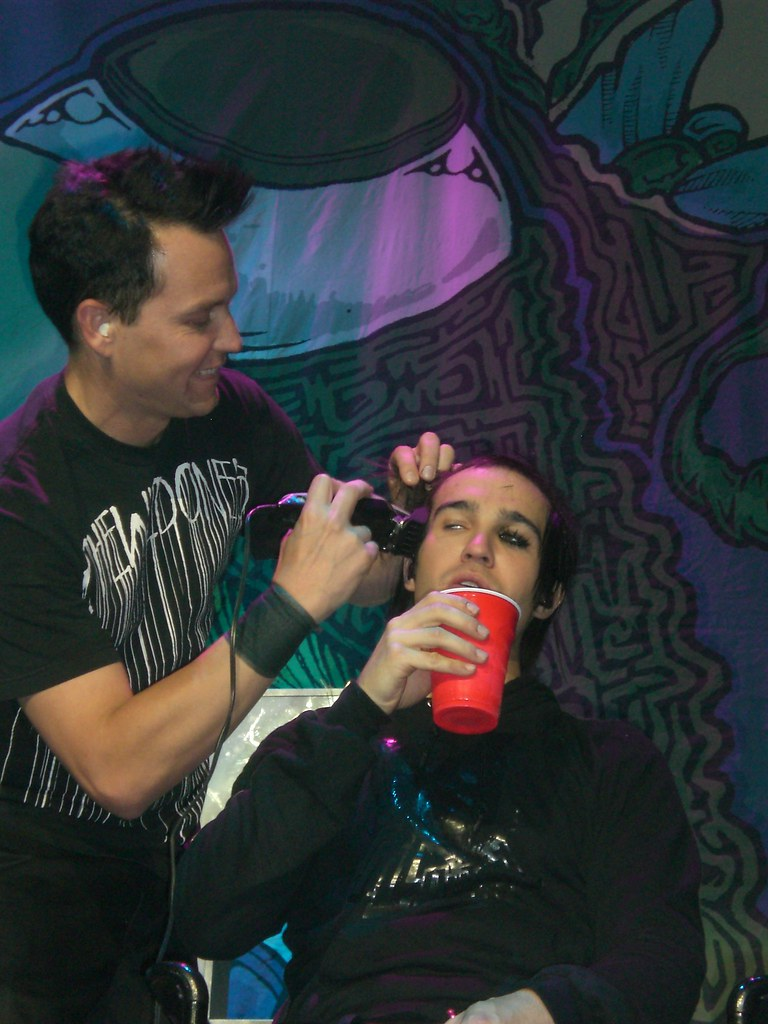
But before I finish Ross’ post-Panic! arc, we need to check in with Pete Wentz again. Because at this point, he was still doing pretty bad. You may recall that when we last left off with FOB, it was late summer 2009, FOB had just released their final video, and Montgomery was practically screaming from the rooftops that a breakup was imminent.
Anyway, on October 4th, Fall Out Boy performed their last show, alongside Blink-182 in Madison Square Garden. Shortly afterwards, Wentz—fidgeting, choked up, and wearing a too-big suit—made a very unconvincing case to MTV that their greatest hits album Believers Never Die was not just “the label trying to push something out.” A month later, the band went on hiatus, something that Wentz was “very resistant to,” though Stump insisted it was necessary for the survival of FOB. Shortly after the announcement, Montgomery quoted Wentz,: “We’re on a break that doesn’t have a definite ending…[Fall Out Boy] was going to imminently implode.” Wentz took the hiatus hard; he later said he began abusing pills again, and that “I felt like a loser…I didn’t see how I’d ever come out on the other side.”
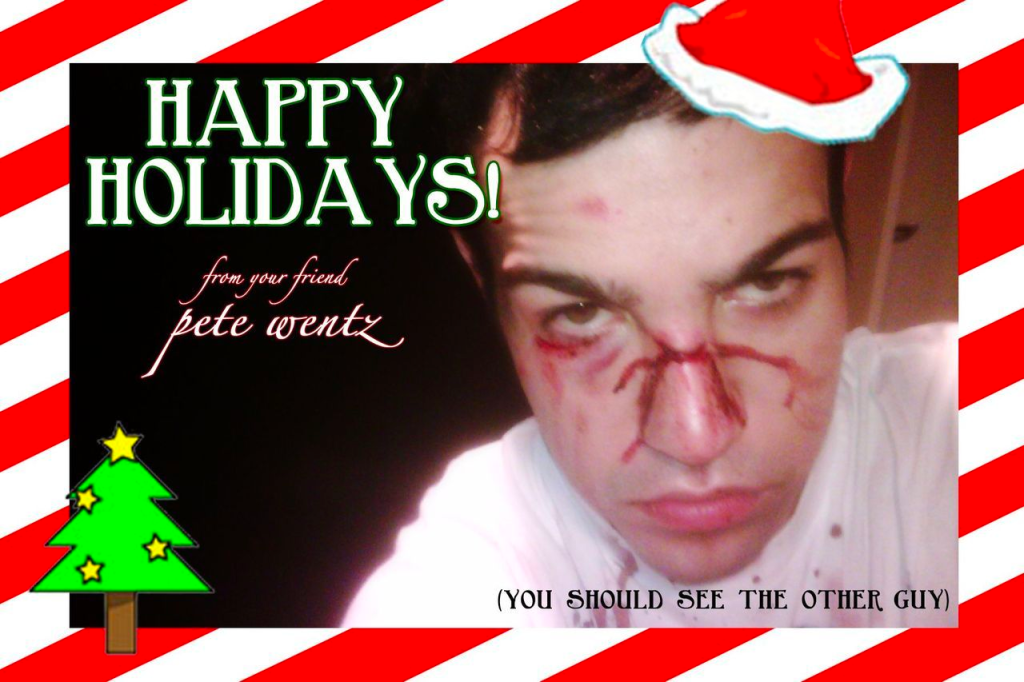
In the years following, Wentz’s mental health continued to worsen. Later that winter, Montgomery wrote that Wentz suffered severe and unexplained injuries to his face. While Montgomery implied his injuries occurred in Seattle, Kerrang! reported they happened at “a New York City nightclub” and he was “not at liberty to divulge” details. On Tumblr, Wentz suggested, “I was wasted. You should see the other guy,” and was advised by his lawyer to remove a post implying he had knocked a guy unconscious—and taken out a couple teeth. Kerrang reported that after the incident, Wentz was at “rock bottom,” “listless and drifting,” and desperate for an “outlet” for his emotions.

While Montgomery’s article came in very late January, Wentz’s injuries had actually occurred in mid-late December, shortly after the one-year anniversary of Folie a Deux. Surrounding the anniversary, Wentz listed reasons why Folie had gone so wrong, including, “MTV basically evaporated on us.” Concerningly, he also reposted a famous quote about holding an–albeit metaphorical– gun in your mouth, and wrote (in part), “For what feels like forever, Fall Out Boy…was a part of everything I felt…. Without it now, I feel like I am unraveling.”

Then, on the morning of February 1st, Montgomery reported on several alarming posts from Wentz, which appeared to follow some kind of “decision” made by the band. Wentz tweeted that “[FOB] might happen without me,” and alluded to plans of dying young. In a separate blog post, Wentz said that in losing FOB, he “lost a part of [himself.]” Finally, as reported by Montgomery, Wentz “signed off [a final post] with a Latin phrase, ‘Acta est fabula,’ which translates loosely to, ‘The play is over.’” Montgomery–sounding desperate–wrote that, “e-mails to the members of Fall Out Boy, their label, Island Records, and their management team went unanswered,” a stark contrast to his usual line of merely “a spokesperson.”
And just hours later, Stump conducted a prearranged interview with Spin. When asked about Wentz’s tweets, Stump gave a detailed response including, “Steven Tyler isn’t in Aerosmith anymore, but his gravestone will probably say something about Aerosmith. Whether we play again or not, I don’t know.” Though the band subsequently tried to play the whole scene off as no big deal, things looked more dire than ever.
Speaking about this time period, Wentz told Kerrang, “It was hard to go from every waking hour thinking about the band to nothing. I needed to do something or I’d go totally crazy.” While he said this triggered electropop side project the Black Cards, the band wasn’t founded until six months later in July of 2010. Montgomery, though, wrote that Wentz “was actively searching for a new project to re-energize himself.” Subsequently, throughout the hiatus–possibly because of the incident–Wentz and “[his] friend” wrote Gray. Later, throughout 2011 and into 2012, the Black Cards released a number of songs online and ultimately an EP, entitled Use Your Disillusion.
However, despite both of Wentz’s creative outlets, he continued to struggle. In February 2011, Simpson filed for divorce; TMZ reported this was due to Wentz’s “erratic behavior” and that Wentz “begged her not to leave.” Wentz told Howard Stern that following the divorce, he dropped to only 95 pounds; he also told Rolling Stone he began abusing Xanax and Klonopin, and suffered from paranoia so extreme he believed microphones were hidden in his home.

Things with his former bandmates were not going well, either. Tumblr user @omegalomania outlined that in 2011, a member of the band performed on a diss track by an Illinois based hardcore band. Lyrics included, “You suck…It’s over…The band broke up…Get fucked.“ Stump provided guest vocals on another track on the album. Wentz later told RS, “Patrick was still my best friend…At the same time, I felt like he needed to get some of that Pete Wentz stink off of him.” It’s beyond evident that–in the words of Andy Greene–this was “a very dark chapter for the band.”
VICES AND VIRTUES
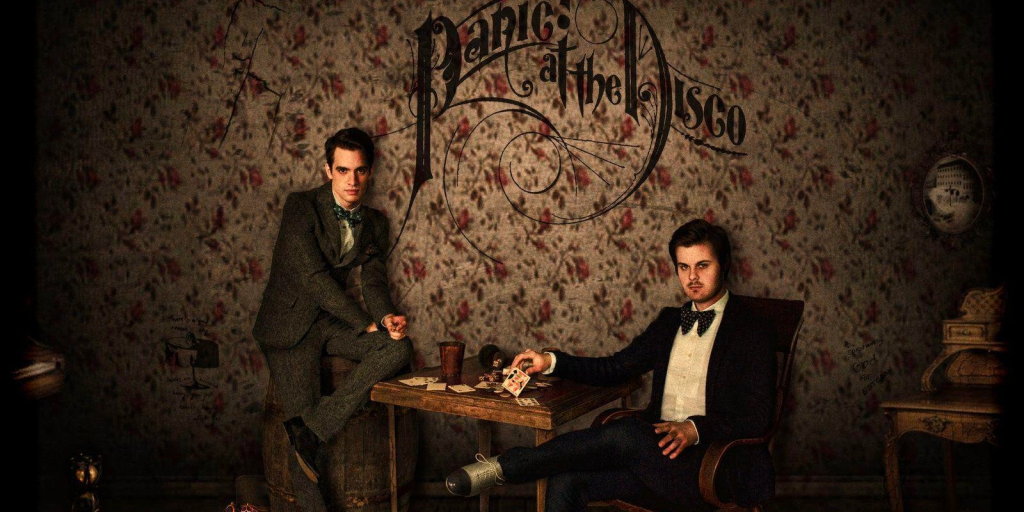
Meanwhile, on February 1st, 2011, Panic! At the Disco came back with a vengeance, this time in the form of Vices’ first single. And while Pretty. Odd. had received little to no fanfare, this track– entitled “The Ballad of Mona Lisa”–immediately “entered heavy rotation across MTV Networks.” The next day, the band performed their first show in about two years. Reportedly, Urie began crying during “Northern Downpour,” and then said, “Oh fuck, I just cried. I should stop crying like a little boy.”
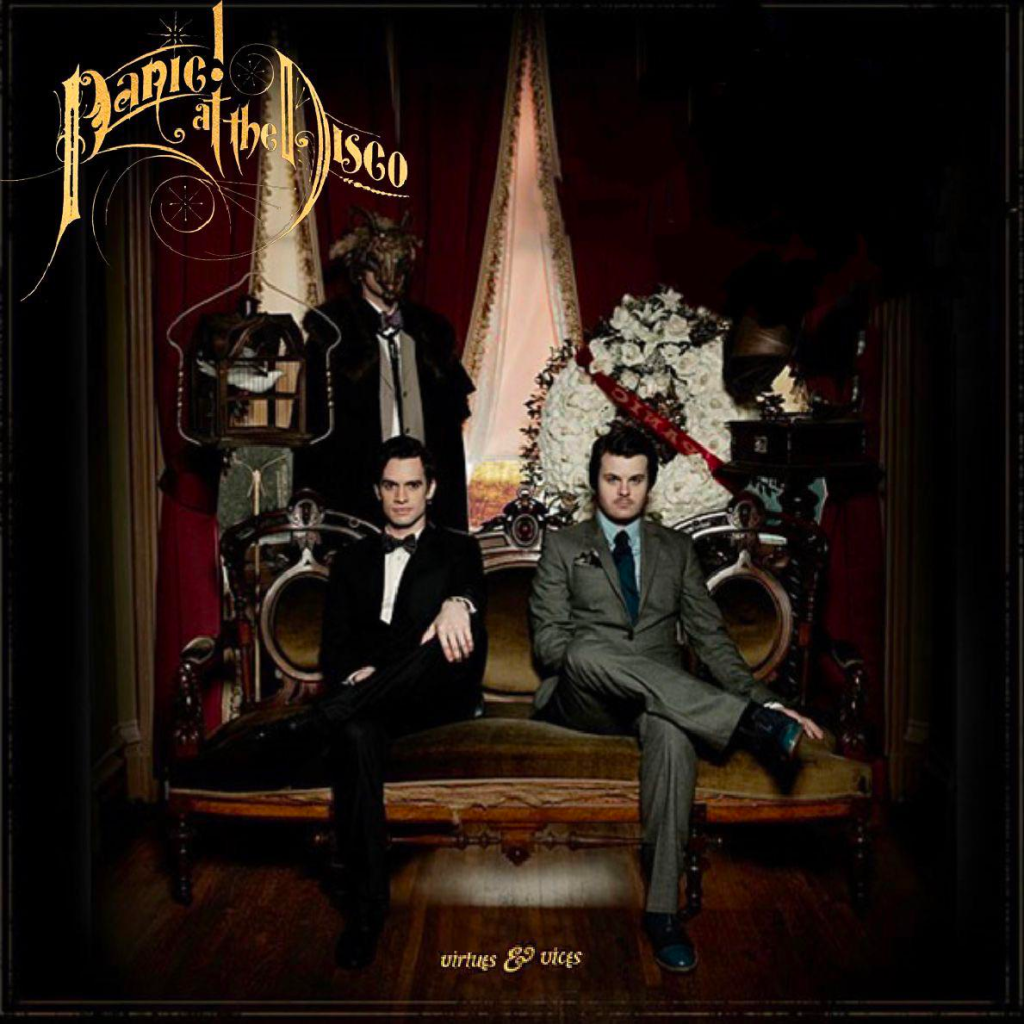
Vices and Virtues itself came out shortly afterward, on March 22nd, and debuted at #7 on the Billboard 200. Alt Press’ Evan Lucy described Vices as “bombast[ic],” and said that Panic! could’ve written it “in place of Fever had they been a little more skilled….” And, of course, Montgomery–who reviewed the album first– spoke at length about it on MTV, calling it “Very big.,” and said, “It’s almost as if, in some way, Pretty. Odd. never happened, and that’s very interesting to consider…” And his statements were certainly quite ominous.
Meanwhile, Urie–never known for his subtlety– emphasized twice to MTV that his character in the “Mona Lisa” MV desperately sought “closure for the wrongs that have been done to him,” and pointedly said in a separate interview that he and Smith “didn’t compromise any of [their] opinions” on Vices. Similarly, he asserted that the band’s Vices-era short film, entitled The Overture, was about learning how to “drop your baggage and just keep pressing forward.” Montgomery explained that the video begins with Urie speaking to “two shadowy specters” that “it’s safe to speculate are, in fact, Ross and Walker.” Urie tells the pair, “I’m gonna miss you guys … looks like we’re going to have to part ways.’” But it wasn’t just the videos that alluded to Smith and Urie’s ex-bandmates.
Kyle Anderson wrote that Vices and Virtues itself “focuses on the split with Ross and Walker,” and Montgomery specifically reported that “The Calendar” was “very much about the departure of Ross and bassist Jon Walker.” Urie told him that the song was originally intended to be about a girl, but he and Smith felt it “really tied into the experience of Ryan and Jon leaving” and the “intimate relationship” the two halves of the band shared. He further elaborated that the whole thing was “kind of weird.”
This awkwardness may be due to the fact that the track’s bridge contains the line “At night your body is a symphony, and I’m conducting.” So of course, it’s only natural that this is one of the three tracks off Vices that Pete Wentz helped write. It was also one of Montgomery’s least favorites; this may be due to how–according to icecreamhdaches–he was in the habit of “weep[ing] like a girl [and] consol[ing] himself with chocolate because Pete will never be his.” Panic! fans, however, interpreted the situation differently; one observed that, “Srsly, [J-Mont] is so in love with [RyRo] it’s sick.”
And though reception of Vices and Virtues was “overall positive,” the criticism of the album often focused around what Panic! lacked without their other half. In particular, Spin reporter William Goodman described Urie’s lyrics as “bitch[y],” and wrote that, “Without Ross, the group’s main songwriter, who drew on his own scarred youth (including the early death of his alcoholic father), Urie steps in to pen the lyrics, and the result is verbose and generic diary-entry romance.” Also notable is the “stark contrast” between the sales of Vices and their prior releases; in its first week, it sold only about 40% of what its “semi-flop” of a predecessor had. And while Fever was a “slow-burner,” it ultimately went quadruple-platinum; Vices, meanwhile, only went gold in 2018. Even so, Panic! were–in the words of Pretty. Odd. producer Rob Mathes–”thriving” without Ross. What they accomplished with Vices–and subsequently went on to do– made Ross’ earlier stint in The Young Veins pale in comparison.
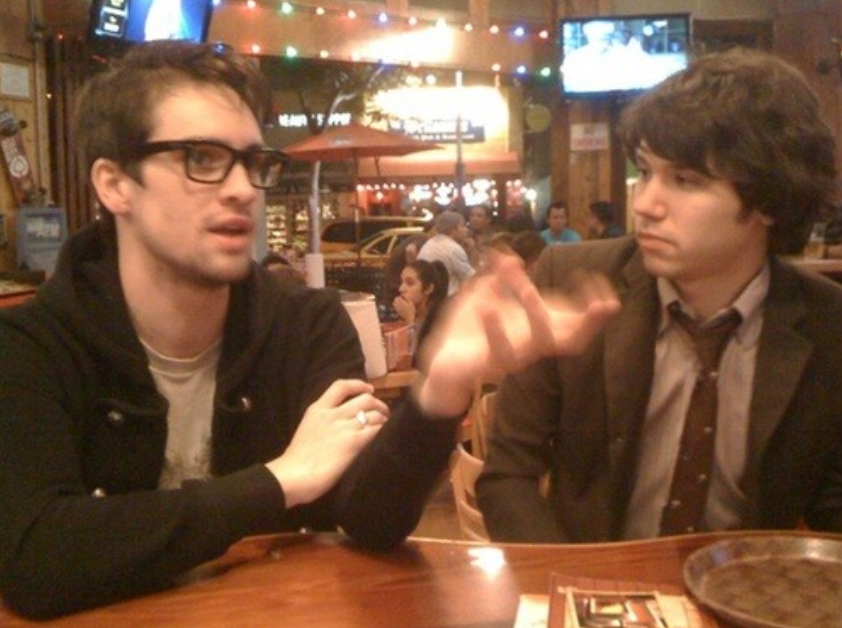
“THE PHOENIX”

Anyway, shortly after Panic!’s comeback, Fall Out Boy had a similarly “bombastic” return. In February of 2012, Stump posted an open letter to his personal blog, in which he mourned being a “27-year-old has-been.” Wentz said that he had phoned Stump several times after the post, which he likened to “calling an ex-girlfriend,” and he joked that he only got a text back saying “What do U want.” Wentz also said that like Stump, he was in a “dark place,” and wanted to write with his best friend again. While he said the first attempt was “kind of a wash,” they kept trying.
The pair ultimately wrote “Where Did The Party Go,” which is one of the best songs off Save Rock and Roll and the first that I remember loving. And with that, Fall Out Boy formed again. The reunion was kept completely under wraps; the Chicago Tribune and Rolling Stone reported that when FOB got back together, it involved an “eight hour” “secret meeting” at their manager’s house, in which the band “aired a lot of dirty laundry.”
Then, as written by Andy Greene, “On the morning of February 4th, [2013], they announced everything: the single, the album and the tour,” and were met with massive success. Their first post-hiatus release, “My Songs Know What You Did in The Dark,” went quintuple-platinum, and their subsequent album, Save Rock and Roll, debuted at number one. It’s my favorite.
Surrounding the explosive news, a few of Montgomery’s hoes returned to newly-defunct platform LiveJournal to discuss his glaring absence from the situation. When he finally appeared, the moderator of the community made an all-caps post stating, “It’s about damn time, James.” Presumably, he must’ve been dealing with book drama. Wentz–who may have been exaggerating– later claimed Gray was basically finished in “a day,” and only because he was threatened with a lawsuit. It had already been continually delayed for seven years, and was postponed again leading up to FOB’s reunion; it was finally released on February 19th, just fifteen days after the comeback. Consequently, at least one of the early signings was postponed. While Gray was panned by critics, it is my favorite.
Fall Out Boy went on to release three more albums since then; their eighth and most recent, So Much (for) Stardust, debuted at #6, and was named one of the best albums of 2023 by Alternative Press. Wentz once stated that FOB’s continued legacy, “proves to us that this band did mean something.”
RYAN ROSS TAKES A VACATION: PART TWO
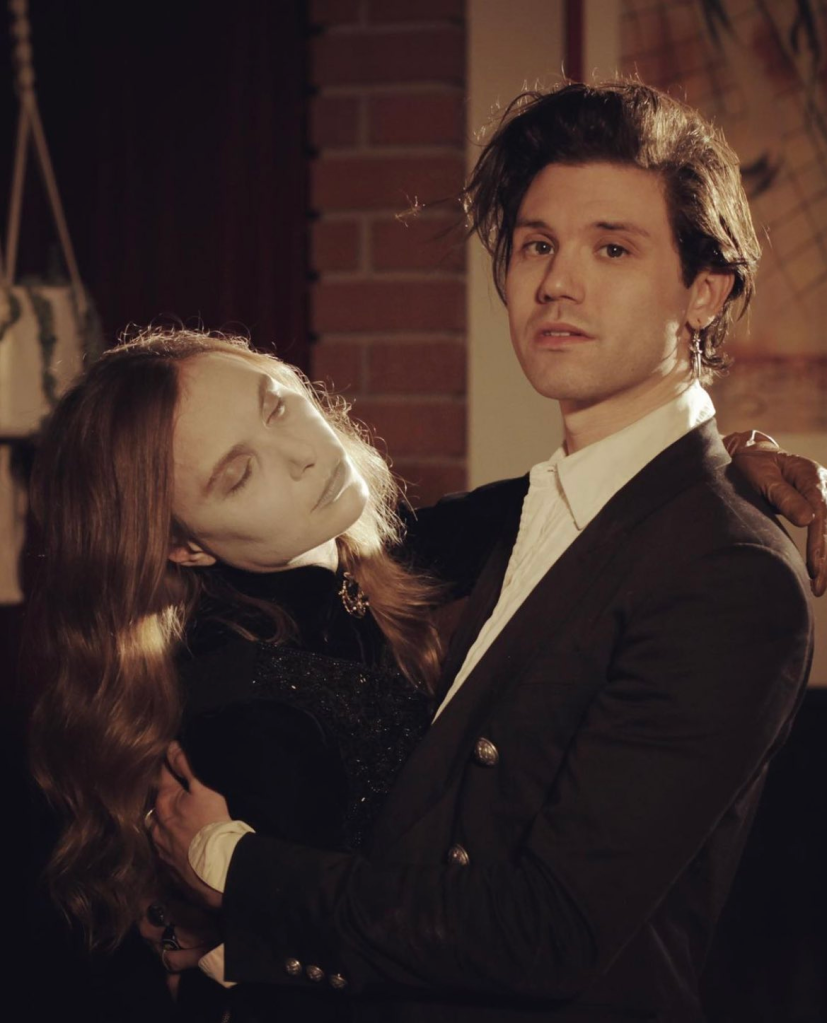
But while Fall Out Boy and Panic! ripped back with a vengeance, The Young Veins never amounted to much. Take a Vacation! was their only record. On Ryan’s 24th birthday—August 30th, 2010—the band posted on social media that the night before, their trailer and van had been stolen from Echo Park. This included all of their equipment—four guitars, two basses, a keyboard, and a drum kit, among many other things.
The van and trailer were eventually recovered, but the instruments were not. Ross later said in an interview, “Now I don’t have anything…Everything you saw us playing with on tour is now gone with the wind.” As a testament to his overall mental state, Ross–for seemingly no reason at all– had completely forgotten to show up for this interview, and left the host waiting for over 24 hours. The interviewer joked “You don’t know what day of the week it is,” and Ross agreed. Just three months later, Jon Walker announced the band would go on an indefinite hiatus. The Young Veins would never play together again.
And with the dissolution of his second band, Ross’ issues grew worse. Ross later said that The Young Veins was “The first thing in [his] career that didn’t go right” and having the band “fall through so quickly” caused him to spiral. He elaborated that at the time, his “perspective was totally fucked,” and he “needed to check [his] ego.” By the age of 24, Ross had won–and then lost–the masses, and he was learning that “not everything [he] touch[es] turns to gold.”
Subsequently, he spent a couple of years “just wandering around” and was “a little iffy for awhile.” This “iffyness” was painfully public. In 2012, Ross fell in with a “”manager”” named Shane Morris. Morris was known for extreme cyberbullying, lying constantly, impersonating Ross online, and outright scamming vulnerable teens orbiting Ross. Honestly, Morris lied so much his status as Ross’ manager seemed questionable; however, Alt Press did report this was the case.
The pair’s involvement eventually culminated in Morris saying “All FOB fans should be sent to death camps” and threatening Wentz’s five-year-old son. After continued escalation on Morris’ part, Wentz called him an “attention seeking whore,” told him to “squeal piggy,” and threatened a physical altercation. Stump added that “None of [Morris’] insults have contextual substance” and called him “transparently sad.”
To be extraordinarily charitable, Ross seemed to be in a vulnerable position, and was being taken advantage of by bad actors. And this was not the only extreme incident. In 2013, Ross began allegedly exchanging text messages with a fan impersonating Brendon Urie; this apparently continued for nine months. In short, Ross was really struggling, and seemed to have few left in his court looking out for him. His ex-girlfriend Keltie Colleen wrote that, “I sat back quietly and watched [Ryan]’s life fall apart,” and said that Ross was in such a bad place that “his family reached out to [her] for help.” Later, she added, “The history of rock music is littered with bodies of incredibly talented people who thought they could deal with the alcohol, drugs, and everything else the lifestyle offered without it changing them. [Ryan Ross], who despised everything about the music industry, let it eat him alive…”
In what appears to be some of his final words on Ryan Ross, Montgomery wrote in summer 2010, “I had such high hopes for him… [But Ross] had fallen victim to the same thing that had snared so many before him: ego…[He had] squandered all that potential…It was, for all intents and purposes, over for him…Ross is fumbling and stumbling to the beat of his own drummer now. Who cares about the future when you’ve got the past?”. But I can’t imagine Ross was too upset about this–after all, he never thought very highly of MTV, anyway.
And even now, Ross is still adamant he–mostly–went down the right path. When asked if he ever felt he made the wrong decision in leaving Panic!, he answered a resounding “No.” Then elaborated, “A lot of other people did. I mean, if you look at it on paper, it’s insane…. [But I] wouldn’t change my mind today.” Similarly, producer Rob Mathes said, “If you gave [Ross] truth serum, I think he would say it makes him sad that this thing he created is still thriving without him. But I don’t think it’s who he is now.” On the subject of his decision to leave, Ross said, “Even if you’re young, you’re tired, you’re exhausted. I think it caught up to me.” And so, Ryan took his permanent vacation.
“DO IT TO DEATH”
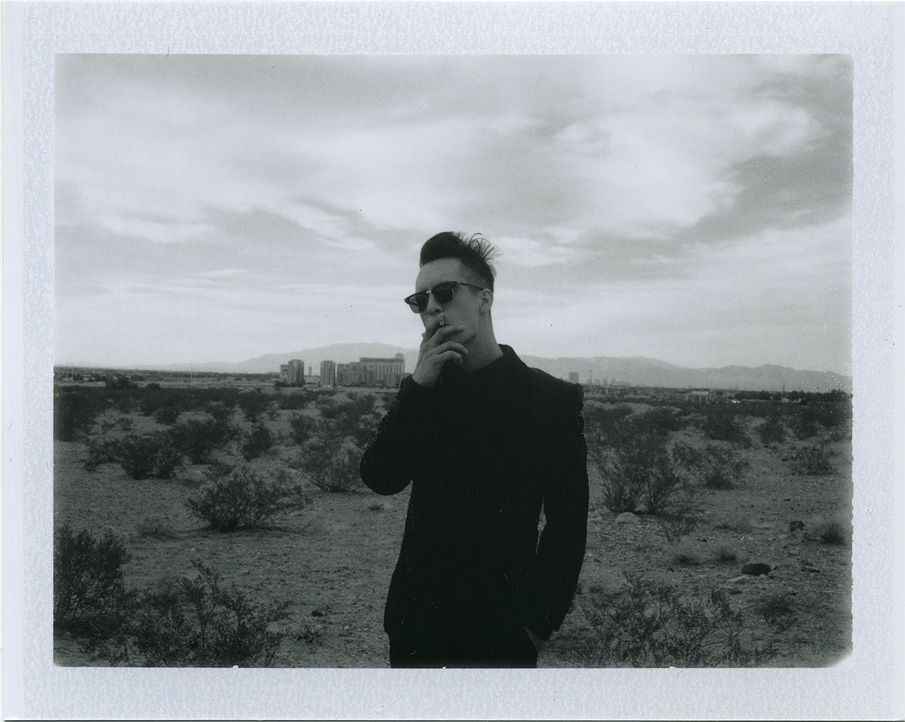
Two years following the release of Vices and Virtues, Panic! at the Disco released their fourth studio album, Too Weird to Live, Too Rare to Die. In a taped interview, Montgomery asked Urie if this record “meant the most to [him] of any Panic! record.” Urie replied that he felt “much more proud” of this release, because with every passing Panic! album, he became “much more involved” in the creative process. In this clip–which is only forty-one seconds long–Urie used the words “I / Me / My” twelve times, and did not refer to then-official bandmates Dallon Weekes and Spencer Smith even once. Also in response to Montgomery’s original question about what the record meant to him, Urie added that his enhanced creative control kept things “exciting for me.”
Though the video is undated, it was likely filmed sometime around the release of Too Weird. Shortly after the record came out, Urie threw drummer Spencer Smith–who, in all honesty, has always seemed a little “too sweet for rock ‘n’ roll”– out of the band. He said Smith was “holding me down.” Two and a half weeks before the release date of Panic!’s next album, 2016’s Death of a Bachelor, their (third official) bassist Dallon Weekes was demoted to a touring-only member. He would completely part ways with Urie two years later. When a fan asked Urie if he would ever leave Panic!, he scoffed, “I am Panic!. Why the fuck would I ever leave?”. Finally, echoing his earlier comments to Montgomery, Urie triumphantly told Gigwise that Death of a Bachelor was “number one” to him “Because I did it. Me. Left alone–here I am.”
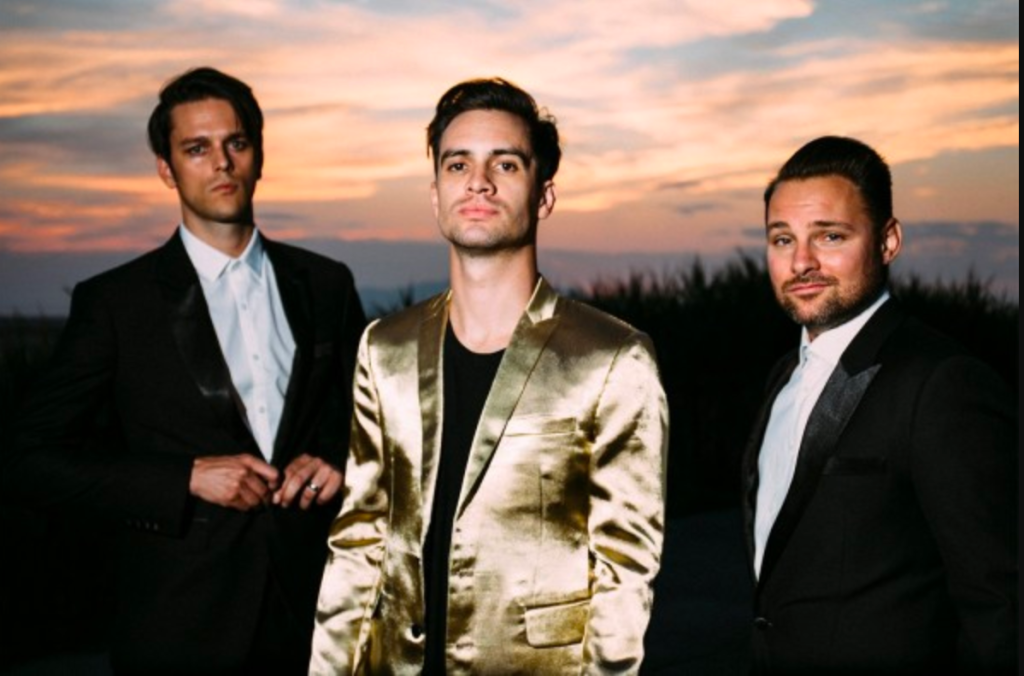
Fittingly, in 2019, Urie featured on “ME!”, which YouTuber Kayla Says defines as “Taylor Swift’s worst song.” On this feature, Urie sings, “I know I tend to make it about me…” and duets with Swift, “Girl, there ain’t no “I” in team. But, you know, there is a ‘me.’” Likewise, Panic! at the Disco had certainly become all about Brendon Urie. When asked why he continued performing under the name Panic! despite being the only original member, he answered, “[Panic!] gives me a world where I have no rules–I can do whatever I want and no one can tell me what to do.” Somehow, within its lifetime, Panic! had gone from being referred to as “Ross and company” to “Brendon! at the Disco.”
Urie released two albums as a one-man band: 2018’s Pray for the Wicked and 2022’s Viva Las Vengeance. On January 24th, 2023, Brendon Urie announced the end of his “band.” This was–rather mystifyingly–referred to as a “split” by the press. And with that, Panic! At the Disco came to an end.
(See: “The Curious Case of Brent Wilson…”)
WHERE DID IT ALL GO WRONG?
So, forty or so pages later, it’s time for the million-dollar question. What happened to split up Panic!? Was it really just musical differences? Is this simply the story of young people who grew up and grew apart? And yes, this is true. It is glaringly obvious that Urie and Ross were no longer meshing creatively, and drifted as friends. Similarly, Smith and Ross–best friends since childhood–were no longer close.
But this wasn’t the only thing going on. Some may say I’m overthinking things. As one Paramore fan said in a comment originally directed towards Montgomery, “OMG This is [a band,] not the Kennedy assassination. We do not need to analyze every aspect of this.” And this may also be true. But I believe that with a little literary context, the full picture of what went so wrong with Panic! grows clear. In Part II of this essay, I will argue that looking back at Pretty. Odd. –the album the band wrote when they were already “on the verge of breaking up”– illuminates something deeper.
So, let’s begin.
PART II: A LITERARY ANALYSIS OF PRETTY. ODD.
Borrowed disclaimer: “[This] is based almost entirely on uninformed opinion, wildly inaccurate speculation and blatant conjecture. No attempt was made to verify the, ahem, ‘evidence’ I am presenting here…” –James Montgomery, regarding Panic! at the Disco
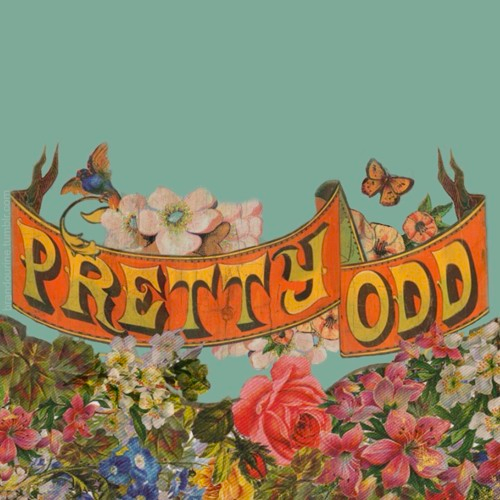
So, I’ll admit–the idea that there is any kind of meaning in the lyrics of Pretty. Odd.–let alone a secret one–sounds very “Paul is Dead.” After all, the lyrical body of the record is usually seen as nothing more than pretty absurdities concerning planetary tea parties and clams in casinos; NME noted the album’s lyrics are “dismissed as pure nonsense” by most. This is an interpretation that is also perpetuated by Panic! at the Disco’s “sole survivor,” Brendon Urie. He argues that the lyrics on the record mean nothing, and were merely the product of copious drug consumption. When specifically asked about the “watermelon smiles” lyric in “Behind the Sea,” Urie said: “We were doing a lot of drugs. We had to be on mushrooms when we wrote that!… When you’re on mushrooms, … [your] smile looks like half a watermelon, it’s like a slice, and you’re just like “Hnngggg”…. We were just like, “Whooooo!”. Tripping out, it was crazy.”
Unsurprisingly, though, Urie was not the primary lyricist behind the album; former guitarist Ryan Ross was. Though he seems to be unaware of it, Urie is not describing drug-fueled nonsense, but rather the literary device of metaphor, which is defined as “a figure of speech that describes an object or action in a way that isn’t literally true, but helps explain an idea or make a comparison.” (Also unsurprisingly, Urie would later pen the lyric: “Don’t think I ever used a day of my education.”) Moreover, metaphors were especially important to one specific artistic movement: Symbolism in 19th century France. The Symbolist movement sought to “represent absolute truths symbolically through language and metaphorical images.” This is what Ross is trying to do, too.
As Urie inadvertently explained, much of the nonsense on the record is metaphorical, simultaneously conjuring up fantastical mental pictures while conveying a double meaning. And these choices were very deliberate. Symbolist literature informed a lot of Pretty. Odd., and specifically, the album contains several quotations from one of the most famous Symbolist poets: Arthur Rimbaud. Rimbaud known for his surreal works, libertine lifestyle, extreme youth, and–as I will explore–especially his tumultuous personal life.
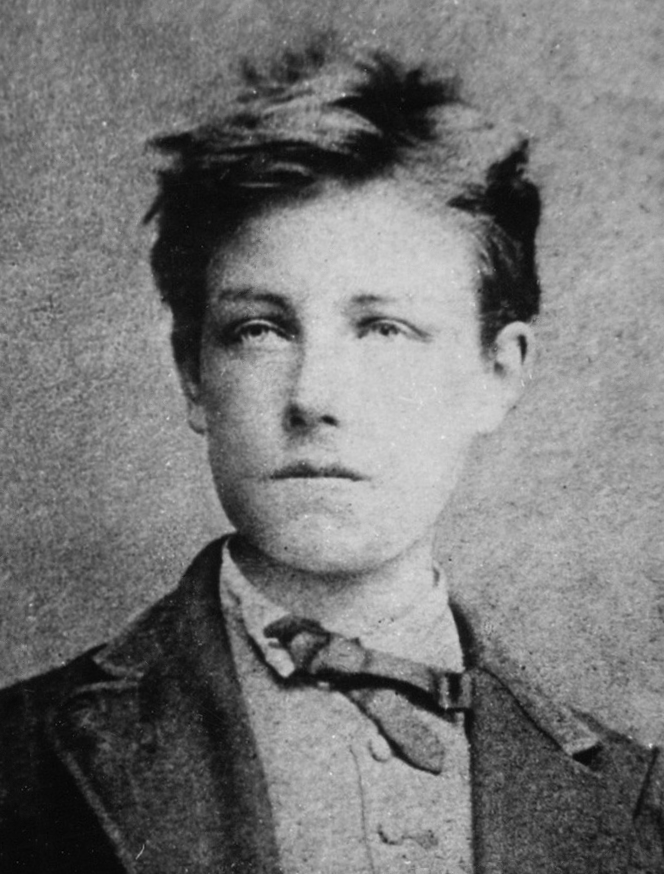
There are five (known) Rimbaud references in Pretty. Odd.. One comes from an early poem Rimbaud wrote called “The Drunken Boat,” or “Le Beateau ivre.” The other four of these quotations come from Rimbaud’s extended poem in prose, A Season In Hell, or Une Saison en Enfer. One of these four is from the section titled “Night in Hell,” which “highlights the narrator’s death and descent into hell.” The other three come from the following chapter, “The Infernal Bridegroom,” which describes the story of a “Foolish Virgin” that the narrator meets in hell. So is Ross just “borrowing” the individual, scattered metaphors of another poet, to hide amongst his own? I argue no. Placed back into their original context, the story these lines are borrowed from serve as a secret metaphor nested within the others, Russian-doll style. This hidden metaphor seeks to convey an “absolute truth” about Ross’ life: the deterioration of one relationship central to his life during Pretty. Odd.’s record cycle.
A FAMILIAR DREAM
To begin with some backstory. Rimbaud was born “Jean Nicolas Arthur Rimbaud,” though he simply went by “Arthur.” Likewise, Ross’ legal name is “George Ryan Ross III,” though he has always gone by Ryan. Rimbaud had a difficult childhood; his father abandoned Rimbaud, his two sisters, and mother when Rimbaud was just six years old; likewise, Ross’ parents divorced when he was just three. His mother was abusive and raised her children completely devoid of affection; Rimbaud referred to her as “Mouth of Darkness.” And, as I covered earlier, Ross’ mother abandoned him when he was young, leaving him to be raised by his abusive father.
As Bill Barnhart explains in a 1947 edition of literary journal Tennessean, Rimbaud’s traumatic upbringing infused him with a sense of deep rebellion, and he resolved to “fight life, rather than cooperate with it.” Verlaine agreed; as written by Betsy Reed of The Guardian, “Verlaine felt that Rimbaud possessed ‘the kind of ‘high disdain’ that never compromises or adheres to any system not of its own choosing,” and Verlaine’s poem “Crimen Amoris” (Crime of Love), described Rimbaud as “rebellious one.” This, too, was another parallel with Ross, who “fell in love…with defiance” at a young age. Rimbaud even resented himself and his own art, often metaphorically “slough[ing] off one skin and put[ting] on another;” likewise, Ross dramatically flipped through extreme aesthetics during his time as a musician. In Rimbaud’s eyes, his recalcitrance at seemingly everything was necessary to “becom[e] a visionary.” Likewise, Fever producer Matt Squire and Crush founder Jonathan Daniel felt Ross was “one of the biggest visionaries” they’d ever seen.
Rimbaud, growing increasingly frustrated by the confines of school and his abusive home, repeatedly attempted to run away. He desperately longed to join Parisian literary circles and pursue his passion of poetry, however authorities returned him to his mother each time he attempted escape. This led him to seek sponsorship from a mentor, and after several failed attempts at obtaining patronage, Rimbaud’s friend advised him to write to Paul Verlaine. Likewise, around the time of Ross’ father kicking him out of the house due to failing his exams and losing a scholarship, Ross began living in Panic!’s practice space and established contact with Wentz.
At the time, Verlaine was the rising leader of the Symbolist movement in France, but had not yet fully risen to prominence. Similarly, at the time of Wentz and Ross making contact, Fall Out Boy were quickly gaining momentum but had not yet exploded onto MTV. Verlaine was also a decade older than Rimbaud–just as Ross is seven years younger than Wentz. And, just as Wentz is oft-argued to be the “King of Emo,” Verlaine was crowned “Prince of Poets.” Verlaine’s poetry often focused on “sex,” “the city,” “narcotics,” “fatality,” and “delirium,” just as Wentz’s lyrics often center around girls, Chicago, pills, suicide, and hallucinations. Only a limited number of Verlaines works have been translated into English, and are often difficult to find. However, one of his most famous poems–“My Familiar Dream”–bears a resemblance to Gray.
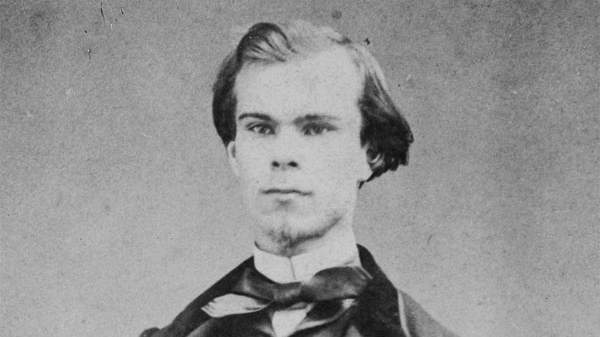
In it, Verlaine describes a girl who is “never, each time, the same exactly.” He can’t remember her eye color, or her name; he especially wonders, “Is she dark, blonde, or auburn? – I’ve no idea.” Meanwhile, Gray centers around “Her,” a character “too nebulous to seem real.” Her appearance shifts too, with the narrator once describing her as “look[ing] different;” her hair especially changes, explained as “jagged dye-jobs on top of one another.” The girl in Verlaine’s “familiar dream” is only consistent in that “she alone understands” how to calm him, and how her voice sounds “dear” and comforts him. Similarly, the narrator of Gray says “Her voice is warm and comforting, like a blanket or the gentle hiss of the radiator on a cold morning. She sounded just like my mom,” and she is the only one able to “nurture [the narrator]’s fears and massage his neurosis.” In short, it seems there are already some strong literary parallels.
THE DRUNKEN BOAT
Anyway, Rimbaud wrote to Verlaine and enclosed some of his poetry, which included “The Drunken Boat,” Verlaine responded in a letter to Rimbaud, “Come, dear great soul. We await you. We desire you.” Likewise, in a leaked AIM conversation, Wentz elucidated to Ross, “I absolutely love the [demos]… I think I may come see you in californaia…You guys are awesome and if its what I think it is I want ti to be thenext academy.”
The first allusion to Rimbaud is from The Drunken Boat, and appears on the Pretty. Odd. track “Behind the Sea.” In it, Ross likens himself to a cork bobbing amongst the waves just as the voice in Rimbaud’s poem does. Rimbaud wrote, “Lighter than a cork I danced on the waves” while Ross penned, “A daydream spills from my corked head / Breaks free of my wooden neck / Left to nod over sleeping waves / Like bobbing bait for bathing cod…”. Though the poem was one of the first Rimbaud wrote, it in many ways mirrors his short artistic career. And, as we’ve already established, Rimbaud’s life holds a lot of parallels to Ross’.
The poem is told from the perspective of a boat adrift at sea after its crew is massacred. Initially, it revels in its newfound liberation and the beauty of the sea. However, this does not last, and the boat is soon driven mad by desperation, regret, loneliness, the grisliness of the ocean, and homesickness. The boat capsizes, and knows it will never be saved. It begins to long for death to bring an end to its misery, feeling “fragile as a May butterfly,” though it ultimately decides it is glad it will die having tasted freedom.
Similarly, Rimbaud initially delighted in escaping his emotionally abusive mother and experiencing the beauty of Paris under Verlaine’s wing. However, he replaced one unhappy home with another; he and Verlaine were constantly drunk and high and prone to arguments that led to mutual violence. Rimbaud soon realized his new life as a “vagabond” was riddled with suffering, too– albeit a different kind. And like the boat became miserable in its travels, Rimbaud and Verlaine’s relationship ultimately soured.
Obviously, some parallels can be found here with Ryan Ross’ career, which we covered in great detail earlier. Though Ross achieved his dream of getting out of his hometown and away from his father, he found the reality of life on the road surrounded by drugs and alcohol “exhausting.” His relationships with his bandmates soured, and ultimately, Ross longed to leave the limelight and the pressures of fame.
To return to Rimbaud, after falling out with Verlaine, Rimbaud then wandered throughout Europe and Africa, cycling through a variety of careers that left him “bored and dismayed” before dying young. Prior to his death, Rimbaud felt “easily disillusioned” with his past poetry, which he dismissed as little more than “slops from the kitchen sink.” Likewise, Ross stated recently, “I felt like some of the stuff we were doing [in Panic!], I don’t really think is cool anymore…I don’t like any of that…I’m completely different now.” Even after leaving, though, Ross continued to be unhappy, falling into a “mental breakdown.”
And what became of Ross and Rimbaud after their careers ended bears parallels, too. Just three years before he died, Rimbaud received a letter telling him, ”You have become, among a little coterie, a sort of legendary figure. . . . This little group, who claim you as their Master, do not know what has become of you, but hope you will one day reappear.” Rimbaud did not reply. Similarly, Ross is worshiped by emo devotees, who desperately long for his return but understand their desire is futile, as “you may as well be a fan of the guy who works at your local pizza hut.” Ross has made a few brief, half-hearted stabs at touring and releasing music again, but they have amounted to little; he effectively abandoned the scene at just twenty-four. Likewise, after his relationship with Verlaine ended, Rimbaud composed a few final works before he “amputated himself, alive, from poetry” forever. He was just twenty-one years old.
NIGHT IN HELL
The answer to why Rimbaud abandoned his poetry perhaps lies in one of his final major works, A Season in Hell. Likewise, the same may be true of Pretty. Odd. and Ryan Ross. On Pretty. Odd., Ross only begins quoting from A Season in Hell starting in the second chapter, entitled Night in Hell. But in order to understand this work fully, we have to start at the beginning. Bear with me here, because it’ll help you get an understanding of who Rimbaud is, who his unnamed narrator is, and the parallels they have with Ryan Ross. A Season in Hell is in first person, and The Introduction begins with our narrator introducing himself with “Once, if I remember rightly, my life was feast…”. He explains that there was a time where he had it all—food, wine, girls, opulence, whatever. Then suddenly, with “Beauty” sitting in his lap, he suddenly becomes disgusted by her and, by extension, everything around him.
In the words of Shmoop, this is “a move that would rival even the most angst-ridden 21st century emo teen.” You know, like Ryan Ross. The same Ryan Ross who–even though he “won the lottery”–discovered that he was “disappointed and disgusted” by the reality of fame. Then Rimbaud’s narrator storms out, saying he then “entrusted” his good fortune to misery and hate instead. He vows to make himself miserable, proclaiming “Misfortune was my god.” However, just as the narrator’s suffering is peaking, he realizes that maybe “charity” towards others might be the way to get back into the happiness he abandoned.
Suddenly, though, a “demon” enters the scene—one that crowned him with “poppies.” (Likely a reference to opium, though they also historically symbolize death.) This demon tells him to give in to death, via indulging in the “deadly sins.” Interestingly, as we’ve already covered, Panic!’s scrapped LP Cricket and Clover was originally meant to be built around each of the deadly sins, a concept that later carried over to Vices and Virtues. Also interestingly, Verlaine’s “Crime of Love” portrayed Rimbaud as the “evil seraphic host” of “that feast of the sins which are seven.” Anyway, Rimbaud’s narrator responds to the demon by saying that before he does so, he will write for him—even though he accuses the demon of only valuing writers who lack talent.
This is the end of “The Introduction.” Then, the piece moves into the first chapter: “Bad Blood.” Throughout this chapter, Rimbaud’s narrator wanders, going around in circles between the narrator’s stream-of-consciousness fantasies, his internal struggle with his unhappiness, and telling the audience personal details about himself. One such detail is that he is “always alone, without a family.” Likewise, in the words of Wentz, Ross “doesn’t have any family…he’s so unloved.” Right out the gate, it’s becoming apparent why Ross might relate to this piece, and this character, deeply enough to quote it four times on his sophomore album.
Rimbaud also tells us his profession—or lack thereof. He is a traveler, and “idler than a toad.” In fact, he resents those employed in any profession at all. Instead, he has his “vice” of opium addiction. This is another potential parallel with Ross’ life—the band traveled on tour nearly nonstop, and it was well-documented that during the writing for Pretty. Odd., the band was on a lot of drugs; Gabe Saporta claimed that in the early stages, they were also “not fucking writing shit.” Just like Rimbaud, Ross was spending much of his time partying, and “working as unofficially as possible.”
“Bad Blood” also makes the narrator’s unstable mental state clear. He is not quite connected with reality; he slips into vivid daydreams about lives he might’ve lived long ago—a leper, a peasant, a mercenary, an adventurer, a criminal being executed, et cetera. These visions, alongside metaphors conjured by the narrator, feel far more visceral than any actual events described to us. This intense imagination is another parallel with Ross. Colleen wrote, “[Ryan] existed in the present but didn’t actually live here with the rest of us. He was a starry-eyed dreamer who created an entire world in his head.” Similarly, Urie commented, “Ryan’s imagination is pretty out there…”. Throughout his lyricism, Ross vividly imagined worlds, like Palahniuk novels, the seedy Vegas strip, and fairy tales.
Additionally, the narrator’s dramatic imaginings of past lives shows his obsession with “primeval” society. Similarly, Ross grew very obsessed with the music of the good ol’ days, and said of the 1960s: “I think a lot of things were better back then. All the way around.” Both Ross and Rimbaud’s narrator show a deep longing for the past, and a desire to abandon their current life and return to simpler times.
These dramatic imaginings are so vivid that Rimbaud’s narrator seems as unsure what’s real as he is unsure of what he wants; he waffles between a desperate craving to redeem himself via “divine love,” or to simply “get used to” drifting along in torment. Eventually, rather than decide, the narrator says he’s going to drink himself to sleep. The chapter ends on an ambiguous note, and then we move on to our next section: “Night in Hell.” This is the one Ross actually first quotes from on Pretty. Odd..
“Night in Hell” begins with the narrator committing suicide painfully via poison. He is in incredible agony, first because of the poison, and then because he ends up in hell. Briefly, his life on earth flashes before his eyes, including seeing the moon at midnight; however, the reminder of midnight jolts him back to his torment with the thought of the demon: “But the devil’s in the belfry, at that hour.” (This line is directly quoted on Panic!’s “Mad as Rabbits.”) Rimbaud then cries out for Mother Mary, cursing his own stupidity.
Anyway, as he dies, Rimbaud’s narrator continues to have intense visions, describing himself as “a master of phantasmagoria.” He then ends up in hell, which is more boredom than actual torture, and he begins to regret his suicide and his actions on earth. He also can’t let go of the memories that haunt him—and with this, we move on to our next section: The Foolish Virgin, which is widely considered to be “a transparent allegory for [Rimbaud’s] relation with Verlaine.”
THE FOOLISH VIRGIN
Before we begin, it’s important for us to note that “The Foolish Virgin” is quoted by Ross three times, across three separate tracks on Pretty. Odd. While there are many literary references on the album, such as to William Burrough’s Naked Lunch, this is quite a lot. Even for Ross. Even Panic!’s heavily Palahniuk-inspired first record did not draw so much from one source. Instead, it limited its references to one book each—“Time to Dance” and Invisible Monsters; “The Only Difference…,” and Survivor; “Build God…,” and Choke; finally, “London Beckoned…” and Diary. In two of these instances, only the title came from the book—not the actual lyrical content. This, on the other hand, is three quotations from one chapter of Rimbaud’s A Season in Hell. Thus, it may be safe to say that something about this piece resonated with Ross.
This section takes the form of a “confession.” Rimbaud divorces the confession from his own narrator, very briefly noting that it does not come from him, but rather from “an old friend in Hell.” This caveat is only a few words–quite literally blink-and-you-miss-it–and the rest of the chapter is told completely from her perspective. Anyway, the introduction of another character does not change the fact that this is still about Arthur Rimbaud and Paul Verlaine. Like I said earlier, most literary scholars are in agreement that the work serves as an exploration of Rimbaud and Verlaine’s relationship.
Anyway, this “friend”– a “handmaiden”–begins her soliloquy with a string of hysterical ramblings: “O Lord… I am lost. I’m drunk… Pardon all these tears!…I’ve never gone through anything like this, delirium, torments, anything… I’m suffering, I really am suffering.” Our sudden new narrator is beside herself with grief, weeping in a drunken stupor over whatever has happened.
Once she has calmed down enough to begin her “confession,” she explains, “I am a slave of the Infernal Bridegroom, the one who seduced the foolish virgins. That’s exactly the devil he is…How can I describe him to you?… I can’t even talk anymore.” And so, it becomes clear to the audience that all of her suffering is because of a guy. In this passage, you can see the first Pretty. Odd. quote; she says, “I wasn’t born to be a skeleton!”. This phrase also appears in the Pretty. Odd. track “She’s a Handsome Woman.” In the context of Rimbaud’s work, the handmaiden means that she was once “respectable,” but after this, she has been essentially reduced to nothing.
After another fit of hysteria, she composes herself and explains that the man she encountered was, “Like a child, or almost…His delicate, mysterious ways enchanted me.” Wentz is well-known for his diminutive stature; TMZ once referred to him as “Tiny Rocker Wentz,” and his debatably former associate Chris “Hey Chris” Gutierrez wrote that Wentz, “is like four foot three and even when wet only weighs about 100 pounds.” Wentz also frequently likens himself to “Mr. Peter Pan,” the boy who could never grow up; this is a comparison echoed by everyone from James Montgomery to Brian Hiatt of Rolling Stone to Pat Monahan of Train to slash fiction authors. He also has a tattoo referencing the quote, “second star to the right and straight on ‘til morning.”
To continue, throughout “A Season in Hell,” the handmaiden describes herself as “lost;” and “blind.” Likewise, Wentz expressed through the sardonic jeers of Black Cards singer Bebe Rexha: “They’re so blind, so lost, so naive, They’re so sad, so caught up, that they don’t see… That I’m playing them…” Similarly, Ross said of his mindset when he dropped out of school and gave up a scholarship to get signed by Wentz, “I was so naive.” The handmaiden continues, “I forgot all my duties in order to follow him…I go where he goes, I have to.” And in Gray, the narrator confesses, “Sometimes I feel like the fucking pied piper, only I’m leading them down a vermin hole. I never meant to be like this.” Like with Rimbaud’s life and works in general, we’re already seeing that this “confession” contains many notable parallels with Ryan’ life–and specifically, his relationship with Pete.
Anyway, as the handmaiden attempts to describe him, she grows upset again, and curses him, wailing, “That Devil! He really is a Devil, you know, and not a man.” Wentz is often seen as a devil, usually in how he is “demonize[d]” by the media. But, he characterizes himself this way, too. In a 2007 journal entry, Wentz quoted the ruthless villain of the movie Blood Diamond, “You think I am the devil. But only because I have lived in hell. I want to get out,” and the Black Cards track “Two of Them” references a character who has “got the devil in him.” What little we know about this character–his delicate stature, his boyish nature, and his dark side–already pretty closely mirror Pete Wentz.
The handmaiden then explains that this “Infernal Bridegroom” was of the opinion that “I don’t love women. Love must be reinvented.” He continues to rant about how women are incapable of truly loving men, and rather enter into unions with them solely for financial security. Obviously, given the relationship Rimbaud and Verlaine shared, this line holds a meaning beyond the misogyny.
The phrase “Reinvent love” is also a lyric on Panic!’s “Mad as Rabbits,” the final track on Pretty. Odd., and is the second Rimbaud reference on that specific song (the first being, as I mentioned earlier, “the devil in the belfry” line). Ross introduced this song on tour by saying it was, “a love song. It’s about universal love. And, uh, friendship, hugs and kisses, and all kinds of things like that.” “Reinvent love” appeared on t-shirts, and Ross frequently wore a vest with “Reinvent love” on the back while performing.
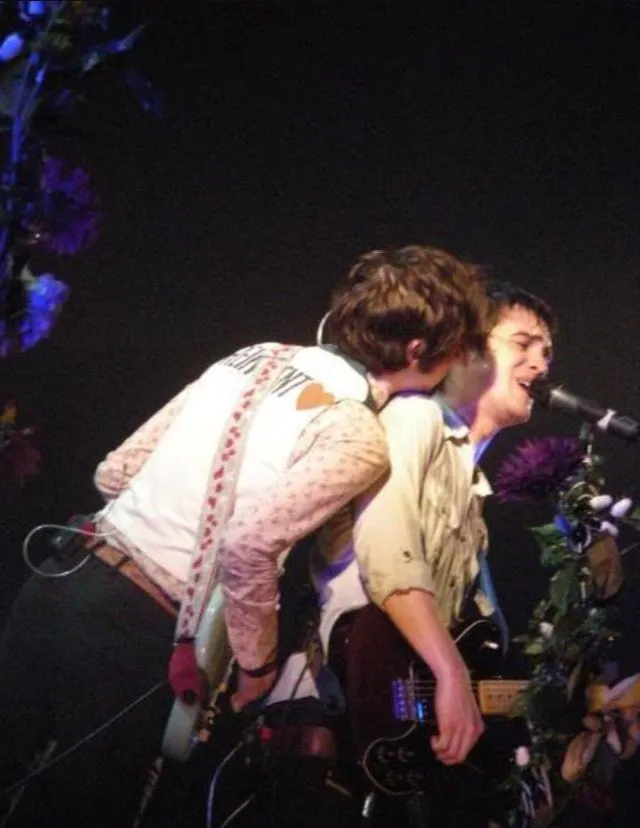
Ross’ girlfriend at the time said it was more than just a lyric, but also Ross’ “personal mantra.” However, she was not aware of the line’s context; she believed he wrote the lyric himself, and that it was “One of the most important things he ever created.” However, Shana Naomi Krochmal, who conducted several interviews with Decaydance artists for Out Magazine, pointedly made note of the “slogan” in her 2008 interview with Spencer Smith. This indicates that at least some were aware of its origins. Speaking with Krochmal, Smith explained that the band chose “Reinvent love,” because, “It goes along with everything we want to represent and the way that we feel.“
As added context, Burroughs and Rimbaud were, possibly, not the only queer literary figures nodded to on Pretty. Odd. “That Green Gentleman,” could be another, though it is often taken as a reference to pot; Montgomery referred to Pretty. Odd. as “stony” on several occasions, and MTV reporter John Norris ran a story called “Panic At The Disco Get (Cough) ‘Green,’” in which he complained that the band would not “cop to” being in the “4:20 club.” Apparently, Urie began to say, “Green can be so many things,” and was shortly interrupted by Ross, who added, “You’ll never know!”. This coyness was taken as the band refusing to admit they were massive stoners. However, there is another interpretation; this could be taken as a reference to Oscar Wilde, who made the green carnation a symbol of him and his followers. Notably, The Collected Works of Oscar Wilde is one of the books namedropped in Gray, and on the night of the “Incident,” Wentz tweeted that Ross was quoting Oscar Wilde.
Additionally, “Mad as Rabbits” also references Paul Cates, which is either referring to a famous LGBTQ+ activist or a missionary who advocates for the sanctity of marriage. Finally, Brendon Urie–quite admirably, and I mean that sincerely–has spoken candidly about his own sexuality in the years since Pretty. Odd.. In 2013, he said, “I have had similar experience with homosexuality, with bisexuality, and that’s something I feel comfortable talking about. It’s not something anyone should have to hide.” Later, he said, “I’m definitely attracted to men. It’s just people that I am attracted to…I guess this is me coming out as pansexual.” While the interpretation of “Mad as Rabbits,” and the “Reinvent love” line as a pride anthem is subtextual, that is obviously one intended meaning.

As for the rest of the lyrics of “Mad as Rabbits,” Ross said it was about “a character who is in the calendar business, and business was bad.” As I covered earlier, Montgomery reported that the Vices and Virtues track “The Calendar” was about the “intimate relationship” that the two halves of Panic! shared, and how that relationship ended. It is also one of the three tracks on Vices that Pete Wentz has songwriting credits on. While much of “Mad as Rabbits” is open to interpretation, these loose concepts–the calendar as a symbol, the fact that “business was bad” in Panic!, the whole Rimbaud / “Reinvent love” thing, and Pete being involved somehow–are kind of entwined.
To (finally) return to “The Foolish Virgin,” the handmaiden continues, “I listened to him turn infamy into glory, cruelty into charm…. [He said] “I’ll slash my body all over, I’ll tattoo myself… you’ll see, I’ll scream in the streets.” In just a few lines, there are already a ton of resemblances between Wentz and the handmaiden’s “Infernal Bridegroom.”
The opening line “turn infamy into glory” obviously holds many parallels with lines from Fall Out Boy, such as “Fame<Infamy” and “Hell or glory, I don’t want anything in between,” et cetera. To continue the obvious, Wentz has a lot of tattoos. And though he stated on Fuse that “Cutters aren’t cool, man,” there are a lot of thinly veiled references to cutting in Wentz’s writing. There’s the “ribbon on my wrist says ‘Do not open’” line in “Our Lawyer…”, which is not to be confused with the “wrists intact” mention in “I’m Like A Lawyer…”. Additionally, the narrator in Gray speaks of “warring against [his brain]” with “razor blades,” and “thinking about the blood pooling in [his] wrists, just below a thin layer of skin, just waiting to be taken up into the light.” And as for the whole “scream in the streets” thing, Wentz was often known for public spectacles; he once told Playboy that on one occasion, he smashed his car into two parked vehicles, then got out and started punching out car windows; when a cop arrived on the scene, Wentz attempted to punch him as well.
The handmaiden also talks at length of how the bridegroom is prone to depressive spells where he weeps about various causes of misery. This is something that Wentz is affected by, too; he told MTV that he had always struggled with “underlying depression” combined with anxiety, and that it affected him so much he sometimes could not leave the house. He said, “[My] depression… felt like nothing I did mattered…It was paralyzing. It was to the point where I felt immobilized by it.” The handmaiden also explains that the bridegroom is particularly distraught by those suffering in the world. Likewise, Leslie Simon’s 2005 Alternative Press cover story–which concerned Wentz’s overdose on Ativan–highlighted how he became obsessed with the Boxing Day Tsunami leading up to his hospitalization, and described him as “no longer able to function or take care of himself.”
The handmaiden continues to describe how while she could understand some of the inner workings of his mind, she could “never be a part of his world.” She professes her concerns that this man is going to become a “serious menace to society.” Like everything else Rimbaud’s character has told us so far about the bridegroom, this all bears parallels to Wentz’s characterization of his former self as “Young and a menace,” and in a 2007 journal entry, he wrote, “There was a moment when the last good part of me died…Cursed. If anyone ever really knew me, they’d string me up and leave me as a sign of what not to become.”
Next, the handmaiden explains how she cannot leave him, as “his charity is under a spell, and I am its prisoner. No one else could have the strength– the strength of despair! – to stand it, to stand being cared for and loved by him.” Likewise, Wentz’s impulsive decision to sign Panic! pulled Ross out of his “fucking hellish” home life and gave him the music career he always dreamed of; however, it ended up being something that Ross resented being a part of, and he ultimately felt (albeit briefly) “caught” in his contractual obligations.
Rimbaud’s “handmaiden” continues in the same passage, “We all have eyes for our own Dark Angel… At least I think so…I used to depend on him terribly. But what did he want with my dull, my cowardly existence?…I get so sad and disappointed; sometimes I say to him: “I understand you.” He just shrugs his shoulders…” This, too, bears a lot of parallels. As I said in “The True* Origins…,” prior to being signed, “a teenage fanboy [Ross] felt like [Wentz was] more of a friend to him than a band… He felt a closeness with Wentz and an understanding of his words, something he believed was unique to a select few and couldn’t be achieved by just anyone.” Ross described “Tell That Mick..”–which was one of only two songs off Take This To Your Grave that Wentz wrote all the lyrics for–as more than just a song, but something that “kept him company” when he was alone. Wentz, meanwhile, told Heather Adler that he felt unable to talk out his problems with others, and that no one could understand him, saying “I really wish there was someone that did get me, just for the record.”
Returning to Rimbaud’s poem, it is then revealed that the relationship between the handmaiden and the man began to dissolve. The handmaiden says, “And so my heartaches kept growing and growing, and I saw myself going more and more to pieces.” She describes him as “a dark heaven that I could go into, and where I wanted only to be left–poor, deaf, dumb, and blind.” Then, the “Infernal Bridegroom” tells her, “I will have to go away someday, far away. Besides, I’ve got to help out others too: that’s what I’m here for. Although I won’t really like it, dear heart.” The handmaiden then tells Rimbaud’s narrator: “And in that instant I could feel myself, with him gone, dizzy with fear, sinking down into the most horrible blackness: into death.”
Ross was not the only young luminary that Wentz mentored; obviously, many other bands beyond Panic! got their start on Decaydance. But the most striking parallel to Ross doesn’t come from an emo boy at all. In 2010, following Panic!’s split and FOB’s hiatus, Wentz began electropop side project the Black Cards. He chose Bebe Rexha–who was twenty at the time–as the vocalist. While the band put out several songs online, “Dr. Jekyll and Mr. Fame” was the only officially released track featuring Rexha.

However, her involvement was short-lived; a reported Black Cards album was continually postponed, and ultimately scrapped. The band later released an EP titled, “Use Your Disillusion,” which did not feature Rexha; they got another female vocalist (Amba Shepherd) to sing on one track, entitled “Talk Dirty.” Much later, Rolling Stone reported that Rexha had “quietly left the group.” But this was not really the full picture.
In an interview with the LA Times years later, Rexha explained: “I got a call from the management. They were like, ‘Pete no longer wants you in the band.’ He didn’t even have the balls to call me. I never heard from him. That was a really tough moment for me. I was depressed for years…” In another interview with NME, she added, “I have a love/hate relationship with Pete,” and that “I respect him. I wouldn’t be here if it wasn’t for him.” It is unclear why Wentz called for her removal, especially considering that they needed female vocals on an upcoming release. In any case, the two are on good terms now. In 2017, Wentz referred to himself as her “mother bird,” and a few years later, they began collaborating on music again.
It should also come at no surprise to anyone that at the time of Rexha’s departure, Wentz’s propaganda machine pushed an alternate version of events. After her ejection, Montgomery quickly dispelled any rumors that Rexha’s removal from the band was “acrimonious,” and he quoted Wentz: “‘Fact checking isn’t really a priority for internet message boards. [It was] a mutual decision’.” (Also unsurprisingly, Gray is about gaslighting a girl until she dies.)
Rexha now has twice as many Instagram followers as Wentz, and three times as many monthly listeners on Spotify than Fall Out Boy. One of her latest releases includes the mega-viral “I’m Good (Blue).” Shortly after being kicked out of the Black Cards, she helped write Rihanna and Eminem’s octuple-platinum single “The Monster,” and alluded to how the depression she was in helped inspire the lyrics. Speaking with the LA Times, Rexha cited her father’s support as pulling her out of that dark place, saying that he “forced” her out of the house. But unlike Bebe, Ryan’s father was dead, and he did not have a mother.
Anyway, to return to Rimbaud, upon hearing that he means to leave her someday, the handmaiden says, “I made him promise that he would never leave me. And he promised, twenty times; promised like a lover.” Likewise, in Gray, the narrator lies to his girlfriend, promising not to leave her: “I can see she is coming around now. I am pulling the wool over Her eyes. I am not the wolf or the sheep. I am another animal altogether… ‘However long it is, I promise that when I come back, you and I will get a place together,’ I lie… ‘We’ll go. Together. I promise.'” The wolf/sheep thing appears two other times in the Decaydance literary canon; though this is a popular phrase, it’s also used on Panic!’s “Hurricane.” Wentz helped Urie with many lyrics on Vices and Virtues, though he does not have explicit credits on “Hurricane.” It’s also used in “She’s a Handsome Woman” on Pretty. Odd., which describes an affair between “sheepish wolves.” And, as mentioned earlier, this track also references one of the first lines in “The Foolish Virgin,” via the lyric “I wasn’t born to be a skeleton.”
Meanwhile, Rimbaud’s handmaiden is so upset her story is becoming even more disjointed. She rambles, “There were days when all men of action seemed to him like the toys of some grotesque raving: he would laugh, horribly, on and on. Then he would go back to acting like a young mother, or an older sister. If he were not such a wild thing, we would be saved!”. Fall Out Boy’s Rolling Stone cover story characterized Wentz as volatile, blinding charismatic, unstable, and swinging wildly between “ebullien[ce]” and “black mood[s]” that makes the room go cold; the piece quoted the director of one of FOB’s music videos as saying, “Pete is the nicest, most loyal, most giving dude in the world,” and says. “And he’s also got a dark side that really makes him charismatic.”
As the chapter is ending, the handmaiden proclaims, “There is a woman who has spent her life loving that evil creature: she died. I’m sure she’s a saint in heaven right now…That’s what’s in store for all of us who have unselfish hearts…”. In Wentz’s fictional novel, the narrator’s (ex) girlfriend dies in a car accident while drunk driving shortly after the last time he sees her. During the course of her last night alive, the narrator gets jealous of her new boyfriend; later, he gets wasted and calls her repeatedly until they end up having sex, and then he leaves her with no explanation. In the book, the narrator admits his behavior probably ruined her life, and he doesn’t go to the funeral because he is a “coward.” The book ends with Her appearing before the narrator as an angel.
THE END
Taken in full, the parallels between Pete Wentz and the “Dark Angel” described in A Season in Hell are striking. You kind of have to wonder if this is what Ryan Ross found so moving about the poem, too, and why it was important enough to him to quote again and again on his sophomore record. Especially considering the biographical parallels between himself and the author, Arthur Rimbaud.
Except, things might be a little more complicated than that. This whole time we’ve probably been assuming that Rimbaud was writing from his own perspective and cursing Verlaine. And obviously, in the analogy that I’ve painstaking laid out, Wentz is the “Infernal Bridegroom” / Verlaine, and Ross is the handmaiden / Rimbaud. And this might still be the case. There are undeniable parallels; Ross could’ve related to both Rimbaud and the handmaiden character a great deal. Or maybe not. It’s open to interpretation–and it could mean nothing at all. But either way, essentially all literary scholars are in agreement that Verlaine is “portrayed as the Foolish Virgin who is corrupted by the Infernal Bridegroom,” AKA Rimbaud himself. In actuality, Rimbaud–one of literature’s greatest enfant terribles– is writing about himself, from the perspective of his mentor.
Due to being “pretty-faced,” Rimbaud was often seen as innocent. He was described by Verlaine’s wife Mathilde as “beautiful,” and Verlaine himself said there was a “kind of sweetness” in him. Likewise, Paul Claudel called him “an angelic mind that was certainly illuminated by heavenly light.” However, he was also described by those who knew him as “acrimonious,” “sly,” “cruel,” and “a little toad.” Together, these dual narratives created the persona of a “satanic angel,” exactly as portrayed in A Season in Hell.
Likewise, Ross’ ex-girlfriend, Keltie Colleen, explained that “[Ross] seemed innocent, but he was still capable of deceit.” She explained that Ross told her he was such a successful liar because, “he spent his entire life sneaking around behind his father’s strict, Catholic back.” She said that Ross, “dislodg[ed] everyone from his life when they got too close. If you started to know he wasn’t as perfect, innocent, or ideal as his public persona made him out to be, he slowly pushed you out of his life and moved on to someone else to start fresh with.” And–though I haven’t mentioned it until now–Ross’ deceit plays a pretty significant role in the timeline of the Panic! split.
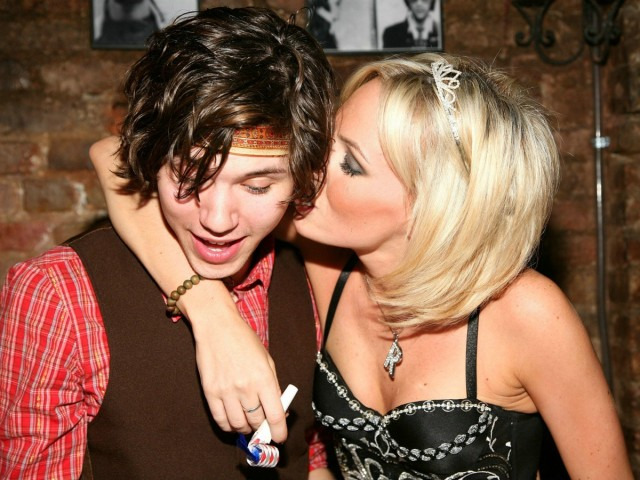
For three of his five years in Panic!, Ryan Ross had a girlfriend: a Rockette named Keltie Colleen. Colleen wrote that it was her responsibility to keep Ross barely above water, as he was so overwhelmed by fame that he was unable to care for himself. She wrote that she did his laundry, paid his bills, managed his schedule, fixed his clothes, hired him a maid, and kept his family updated. She explained, “I did [all of] this because I loved him and he needed help.” But even Colleen’s intervention wasn’t enough; Ross’ “hot water, [cell phone] and electricity were [regularly] shut off” due to his failure to pay bills.
And (as I mentioned earlier) at the start of 2009, Ryan Ross was reportedly crashing with Urie and Smith. This preceded his moving into an apartment with Colleen. However, in a memoir published by Chris Gutierrez, Colleen explains that mere days into living together, things went south. On Valentine’s Day, Colleen discovered that Ross was having an ongoing affair with a waitress, one he told her “mean[t] nothing to [him].” According to Colleen, she later learned Ross had been cheating on her with other women throughout the duration of their relationship. She broke up with him.
And given that he no longer shared an apartment with his girlfriend, Ross subsequently moved in with Walker. And, right after Panic! split, Ross pinpointed this decision as a major factor leading to the dissolution of the band. He told Montgomery, “There was a period of time where we weren’t really talking to each other that much. Jon and I were just living at my house, and continuing to write and stuff… [Eventually] we all sat down and came to the conclusion that the best thing to do was to [split].”
It was not long at all after Ross and Colleen’s breakup that Panic! fell apart. Less than two months later, before their trip to South Africa, Panic would split for good. And right after Cape Town, a second woman Ross was rumored to have cheated on Colleen with was seen partying with Ross–you know, the party where Ross was “as high as a fucking kite.” A third woman Ross became romantically involved with was in both coke scandal photos; Colleen implied she had also flirted with Wentz in front of his “very pregnant” wife months earlier.
And while Ross was (allegedly) having affairs with other women, Urie had entered a new relationship with his now-wife and the mother of his child, Sarah Urie, who he was immediately “infatuated” with. So, perhaps Ross’ extracurricular activities played a role in the breakup; after all, Walker did say in a 2010 interview that the Panic! split boiled down to disagreements over, “The way you conduct your life, and your morals, and your values.”
And as for Ross’ subsequent disappearance from the scene, there’s not really a mystery there. Perhaps the final track on Take a Vacation!—a cover of The Everly Brothers’ love song “Nothing Matters But You”—explains it best. In it, Ross croons, “I don’t do the things I ought to do… I let the world go by me…Most folks need a world to conquer, something big to do… Let them all go chasing after rainbows… Nothing matters…Nothing matters…”
In the end, there’s likely no single factor that led to the end of Panic! and (essentially) the end of Ryan Ross’ career. Possibly, Ross’ own bad decisions and questionable company permanently pushed him away from his bandmates, including lifelong best friend Spencer Smith. But alternately, as Crush founder Jonathan Daniel suggested, Ryan never wanted any of this, anyway; Daniel claimed Ross told him, “I didn’t sign up for any of this shit. I didn’t know what I was doing. I don’t want to be forced into wearing eyeliner and shit.”
Ross himself told Frank Gioia in 2019, “I didn’t think about [music] as a career…To me, making it would’ve been to tour in a van and leave my hometown. That was the big goal.” And perhaps, after Panic! achieved so much more than this, Ross quickly found himself “disappointed and disgusted” by the industry and the reality of fame.
Or, it’s simply what they’ve implied all along: that after Urie grew into his voice and developed a craving for creative control, Panic! had “too many cooks in the kitchen.” But it also could’ve been Ross and Walker’s determination to thumb their noses at basically everyone and “d[o] their own thing. Repercussions and public opinion be damned.” Or maybe Ryan had simply always been “a fawn separated from [his] mother, spindly and unsure, waiting to be hit by the car called” Wentz. And yet still–in the words of Brendon Urie– perhaps ”people assume the story is way bigger than it is. Maybe the story’s just not there.” So much deception, half-truth, and ambiguity surrounds each minutiae of Panic! lore that the reality of anything is impossible to interpret, too smeared to explicate, and too cloudy to explain. But it doesn’t really matter now: the disco is dead.
“Panic! at the Disco are ruining my life. There is really no better way of putting it. They make me angry. They haunt me. They are the bane of my existence. I want to fly to Las Vegas, grab Ryan Ross by his cravat and scream, ‘Stop! For the love of God!’ into his tiny little face, only I know that doing so is pointless…They will never stop, at least not until they’ve killed me. This cannot end any other way.”
By Sarah

impeccable post, this was such an informative read and really fed my ryro hyperfixation!!
LikeLike
Thank you for reading!!
LikeLike
This is one hell of an essay. So engaging and witty. Awesome work!
LikeLike
Thank you Alecia!
LikeLike